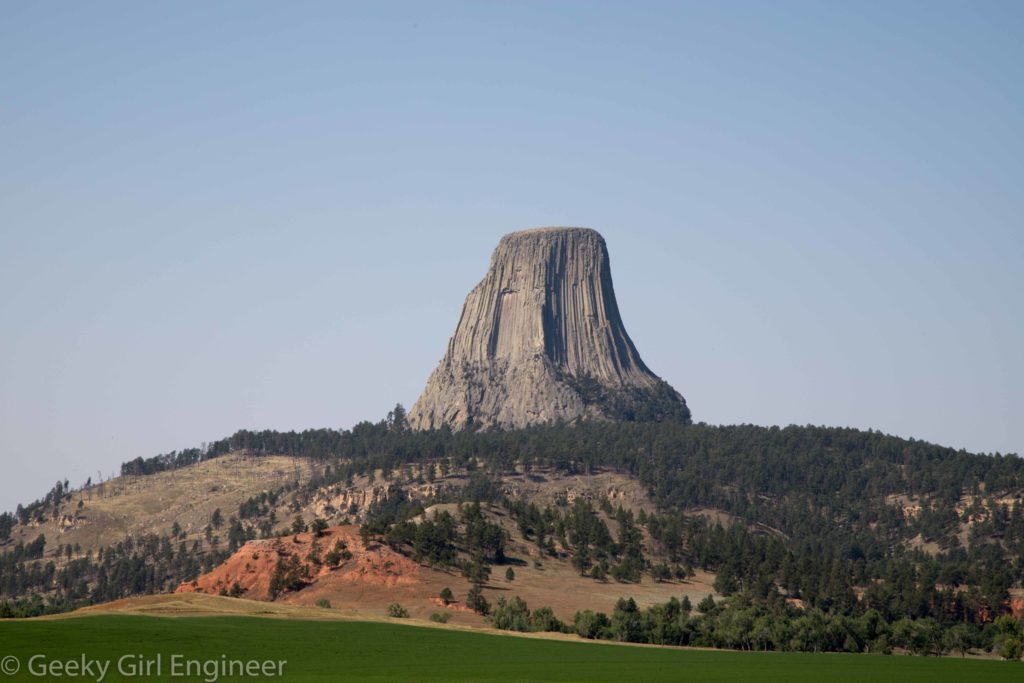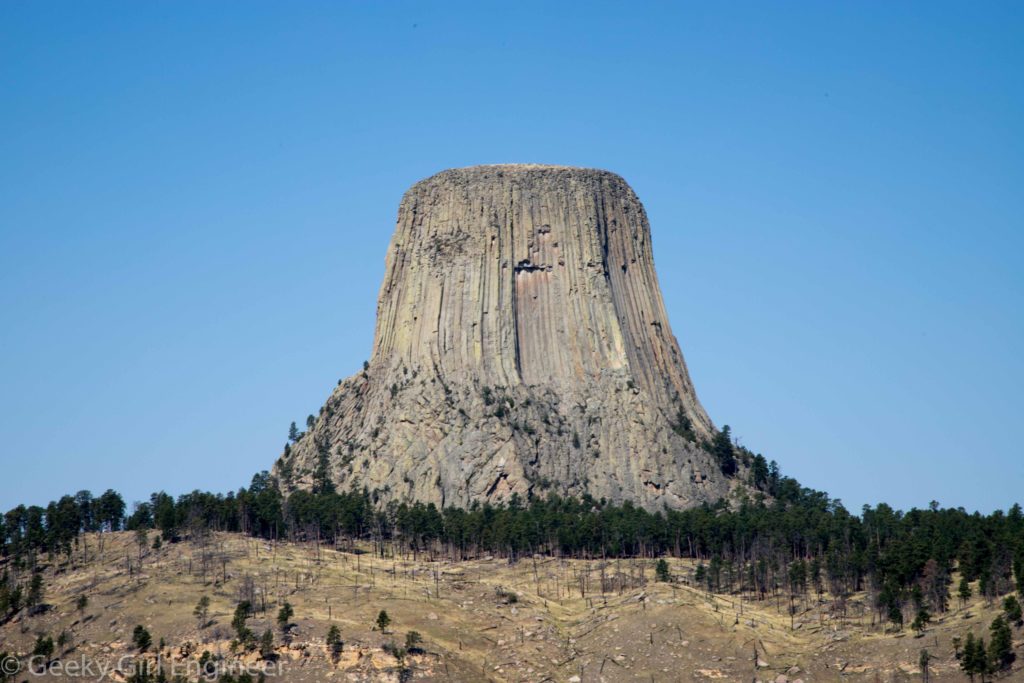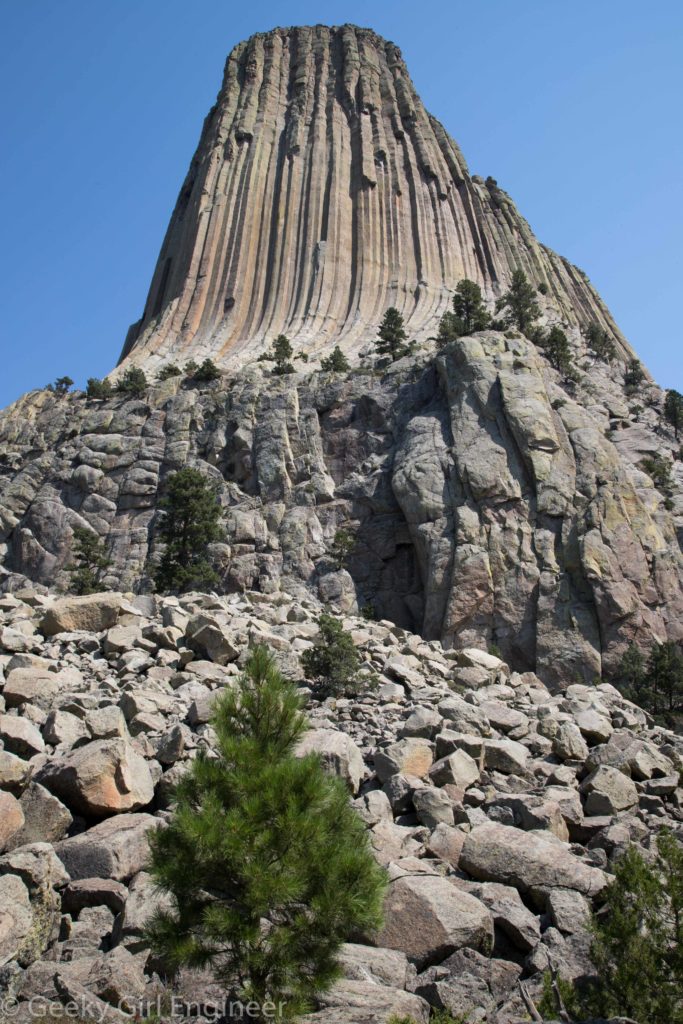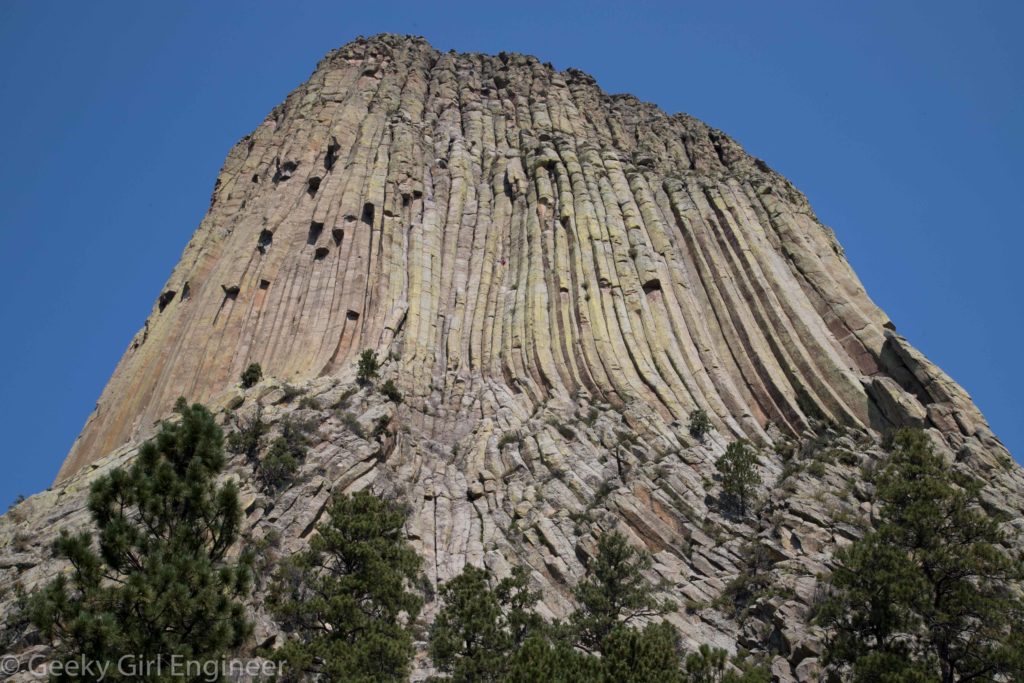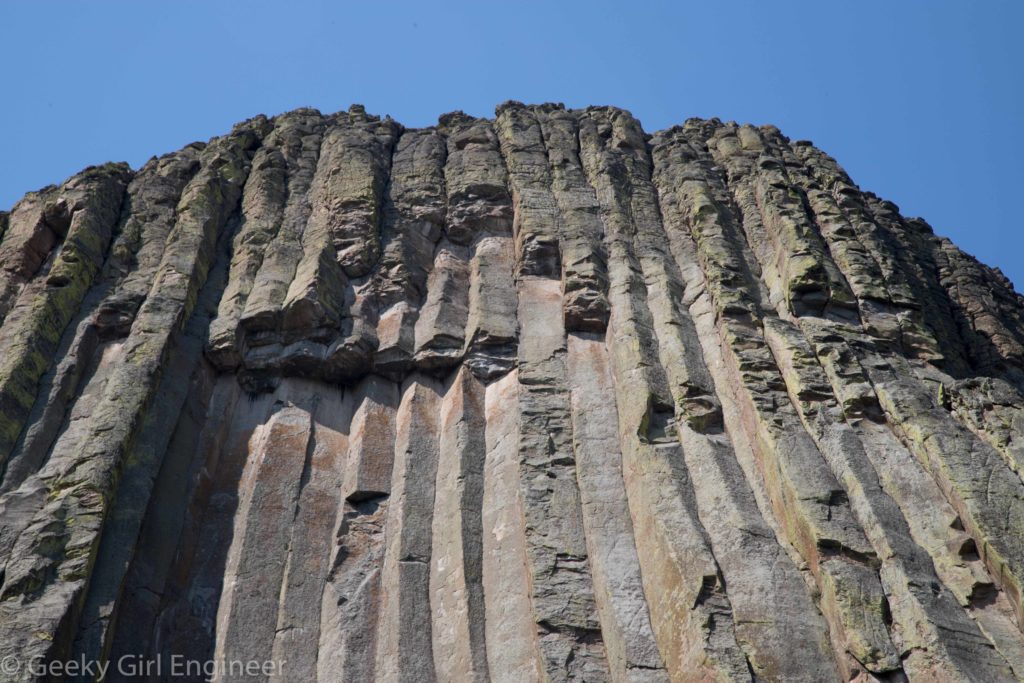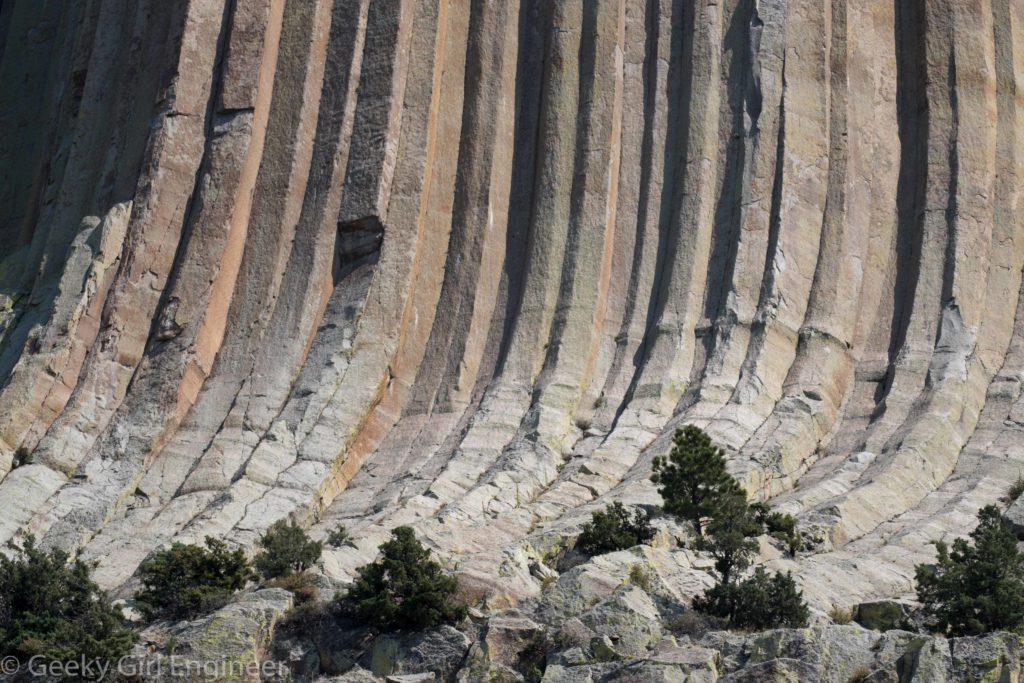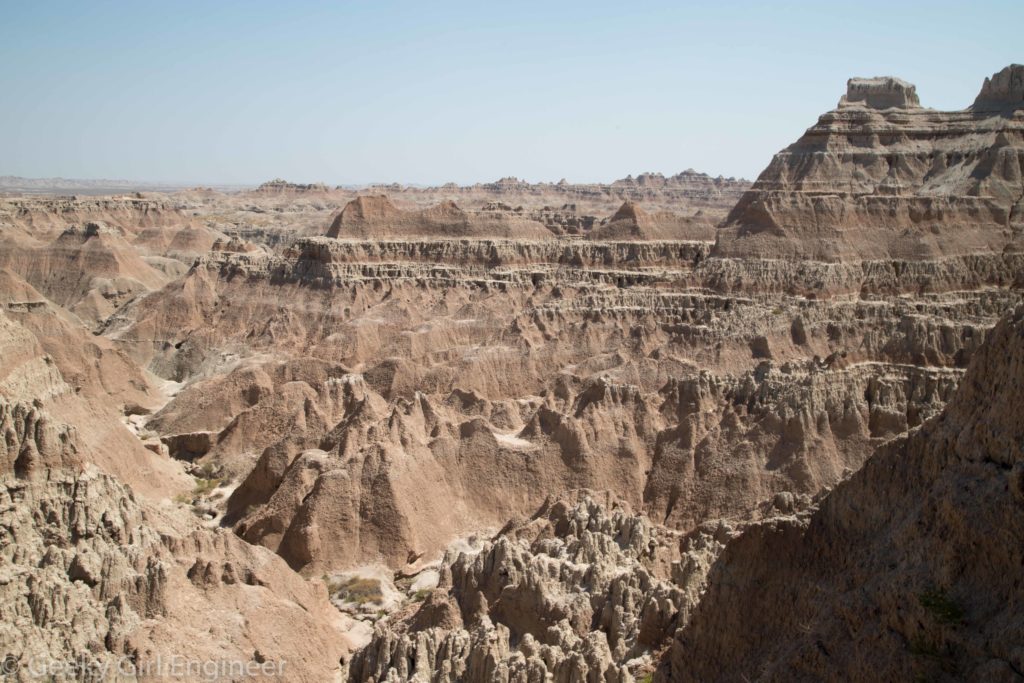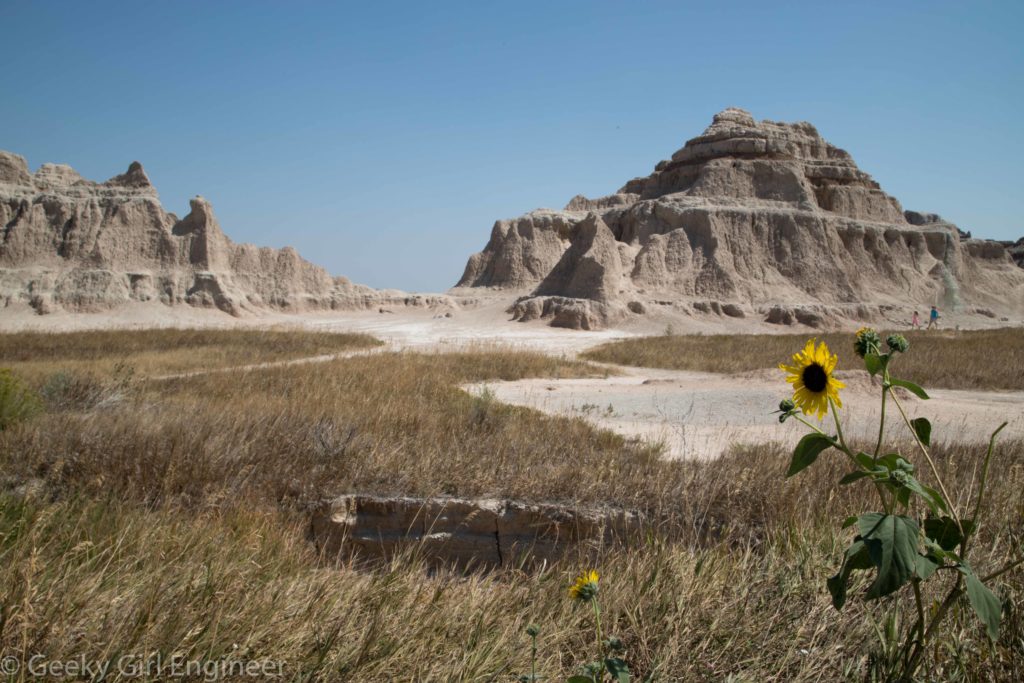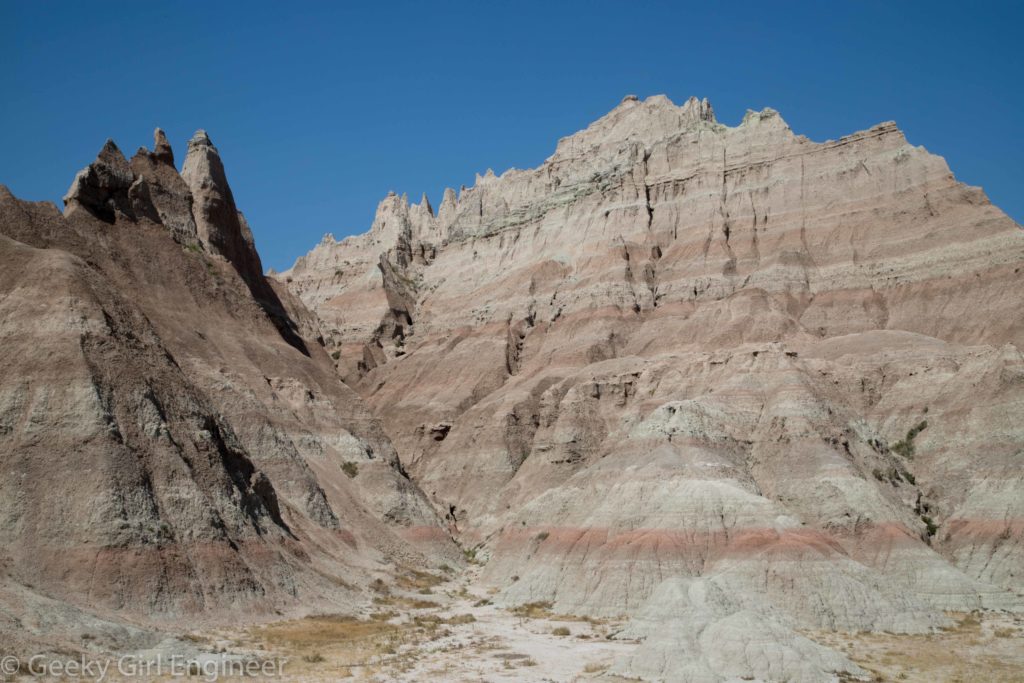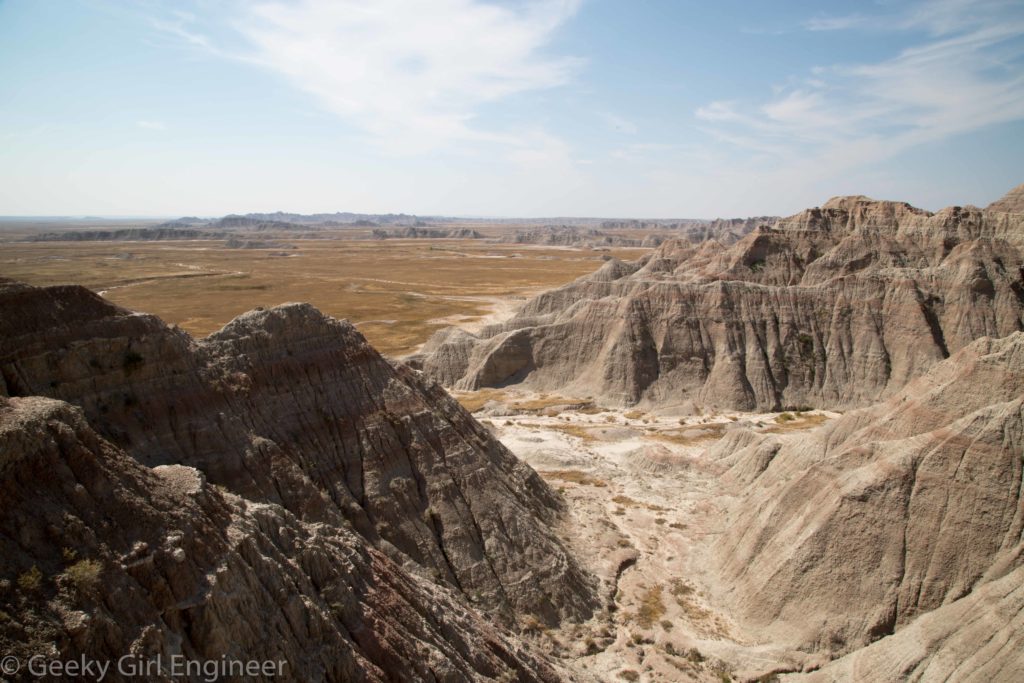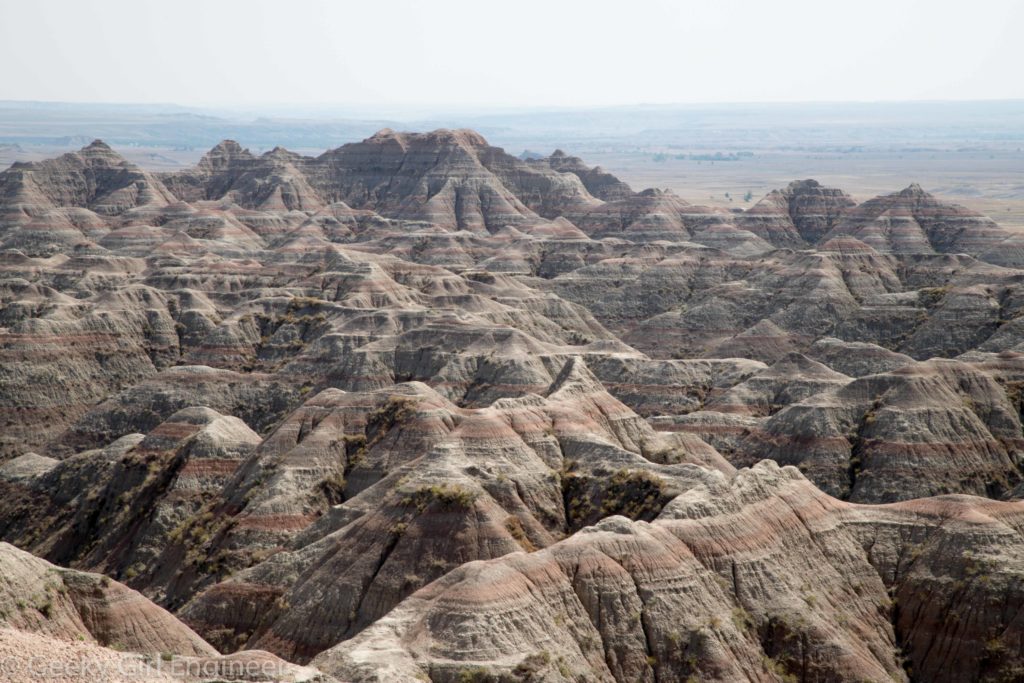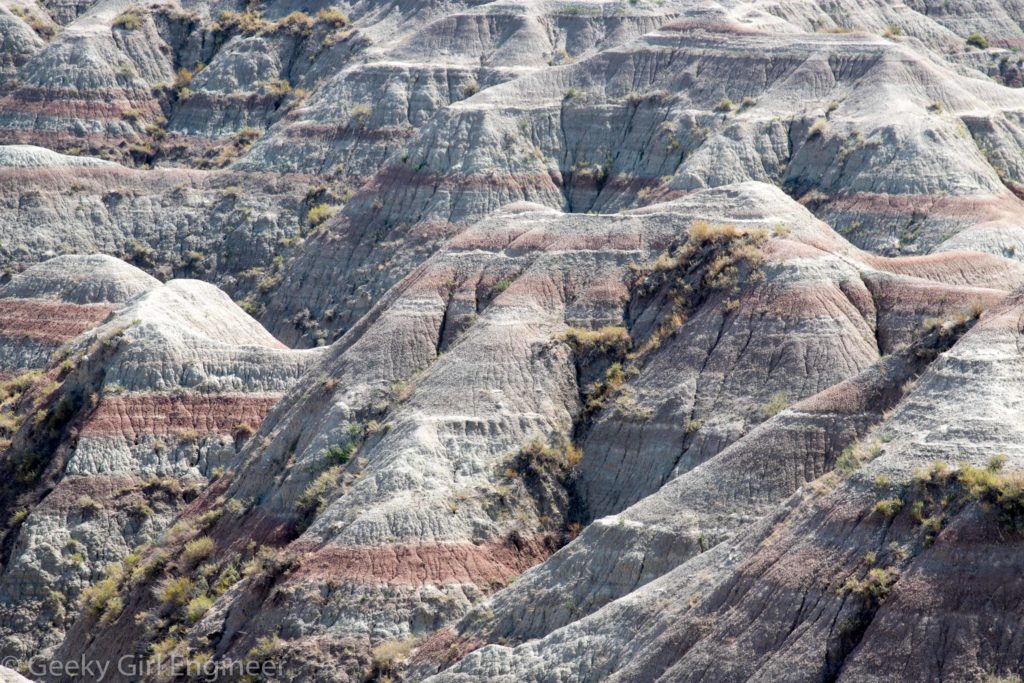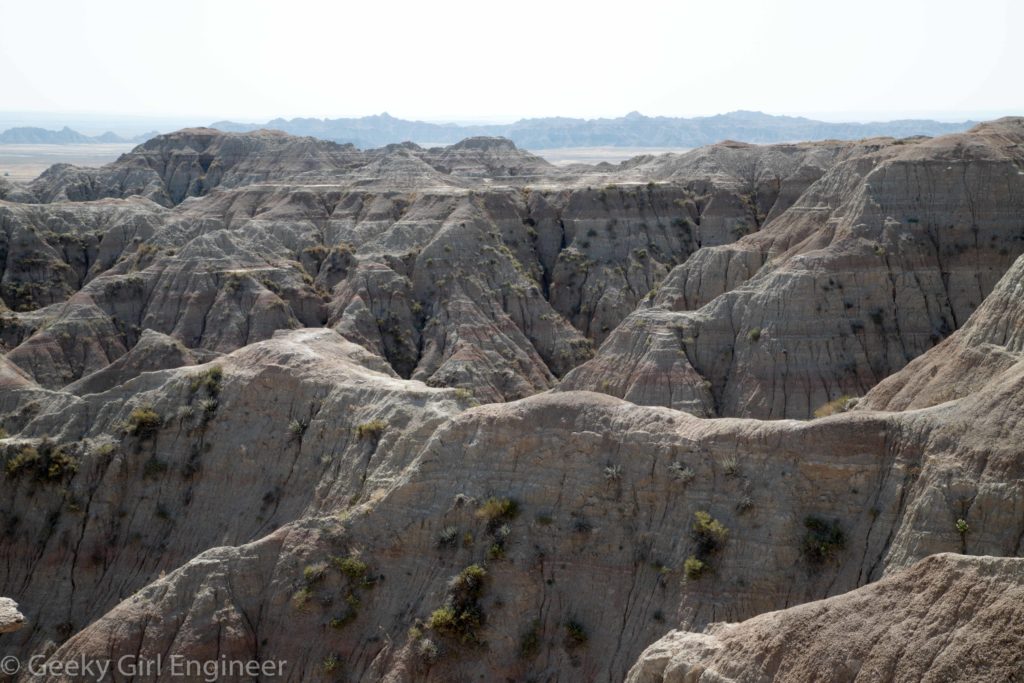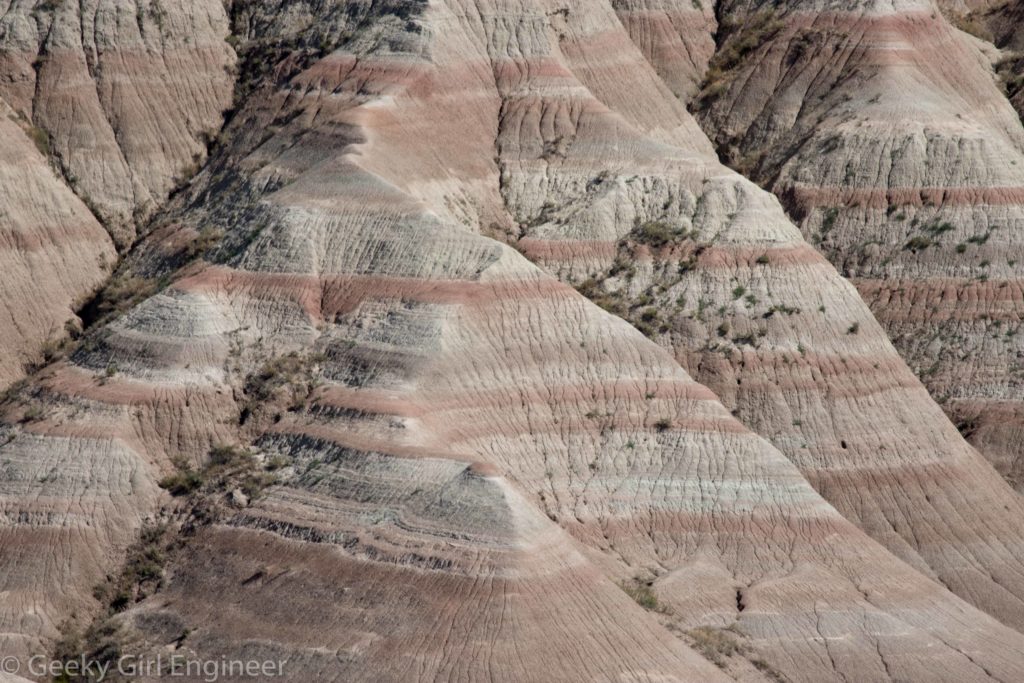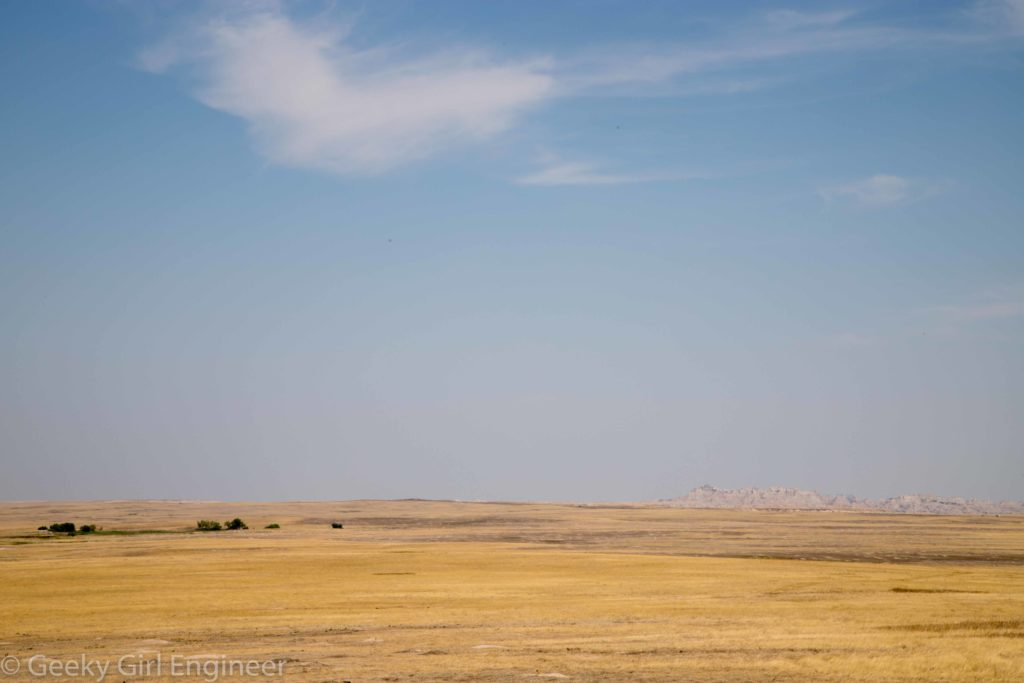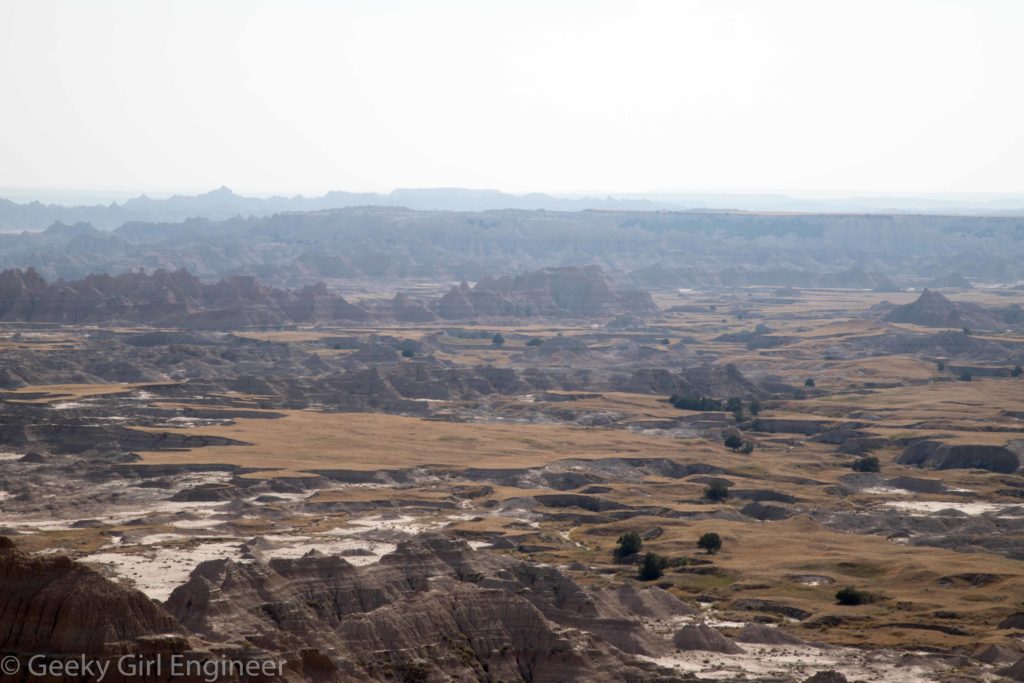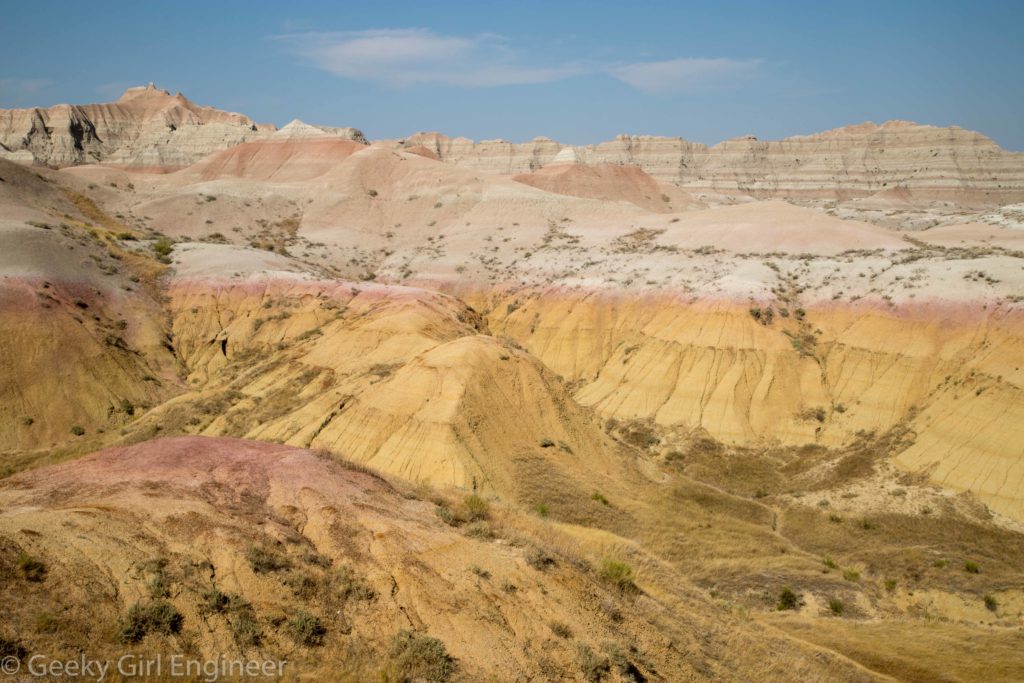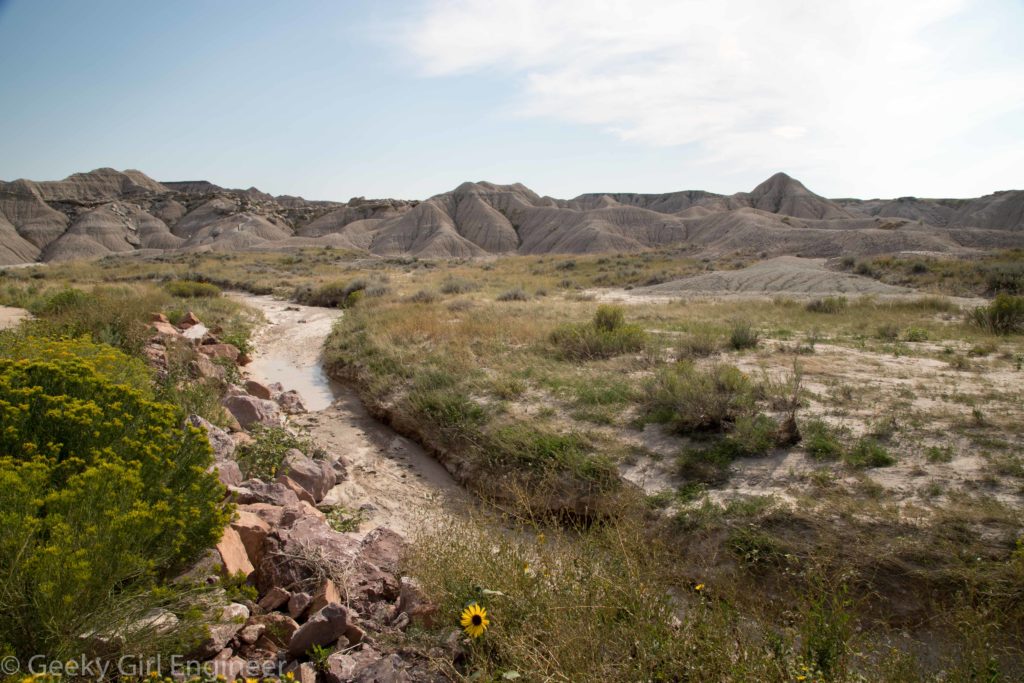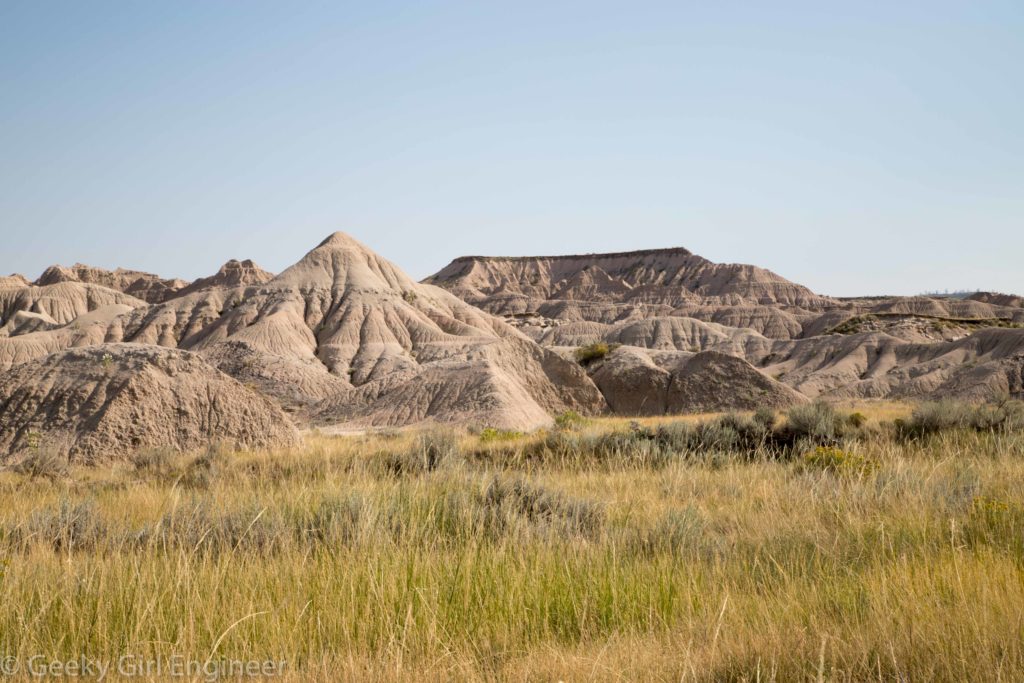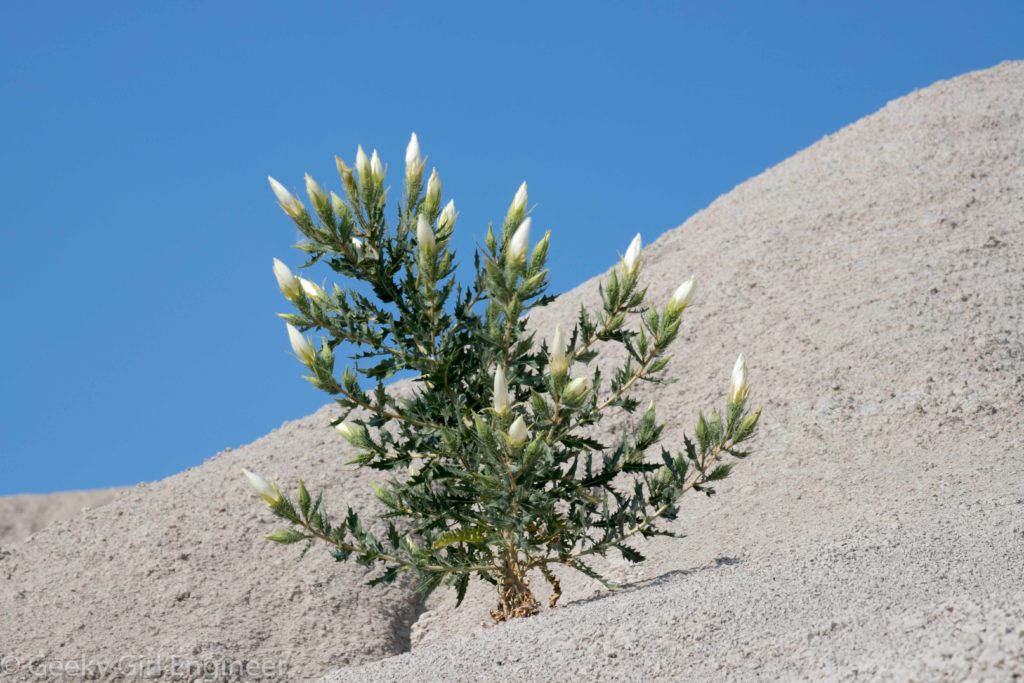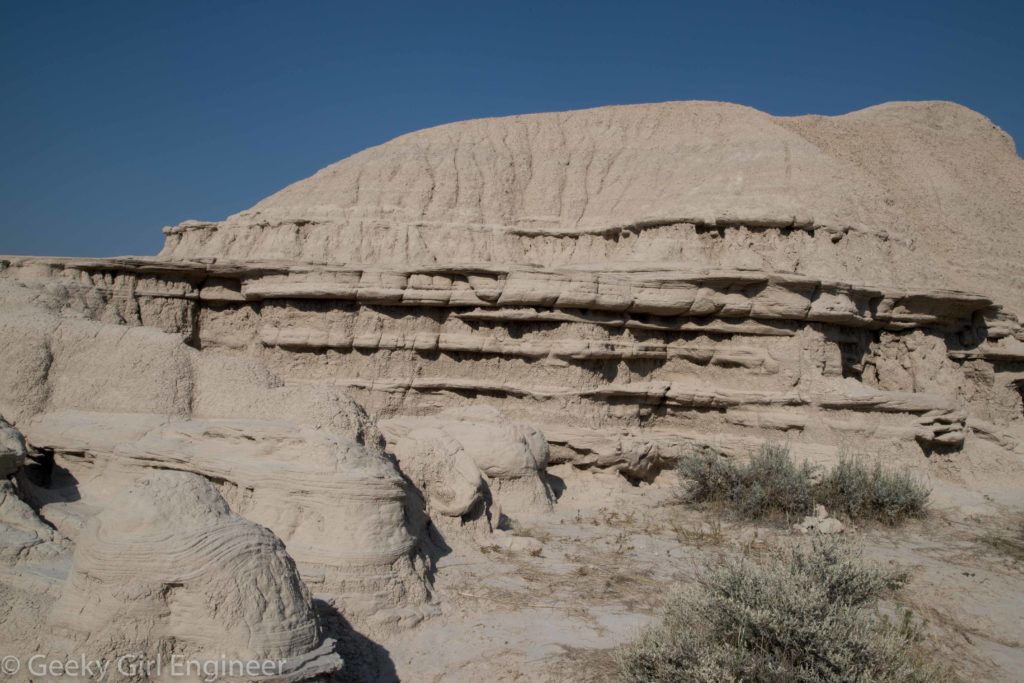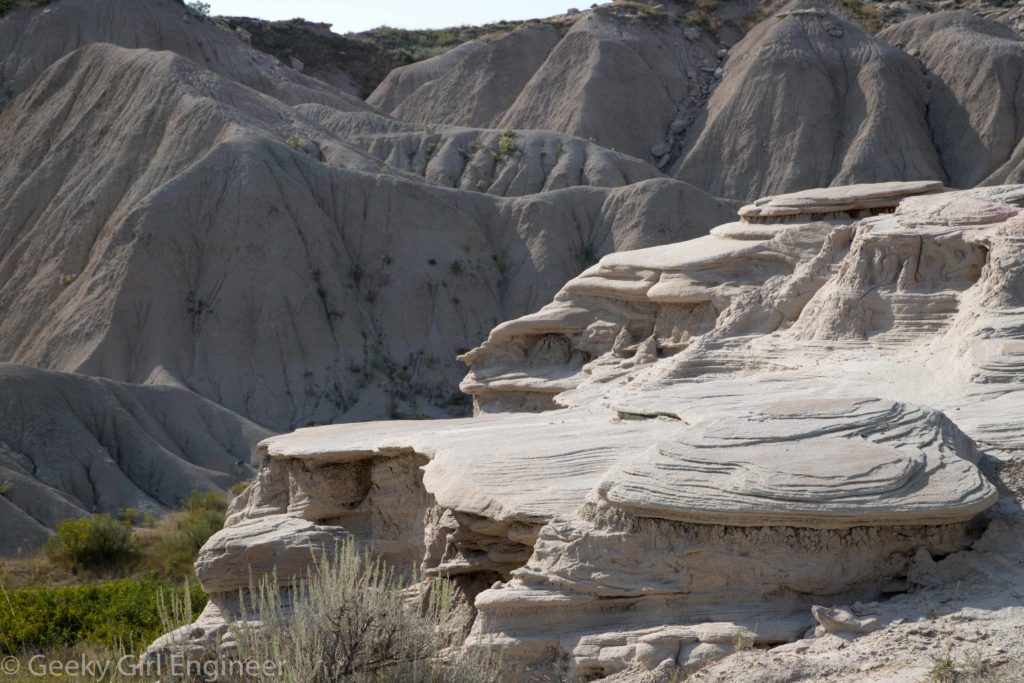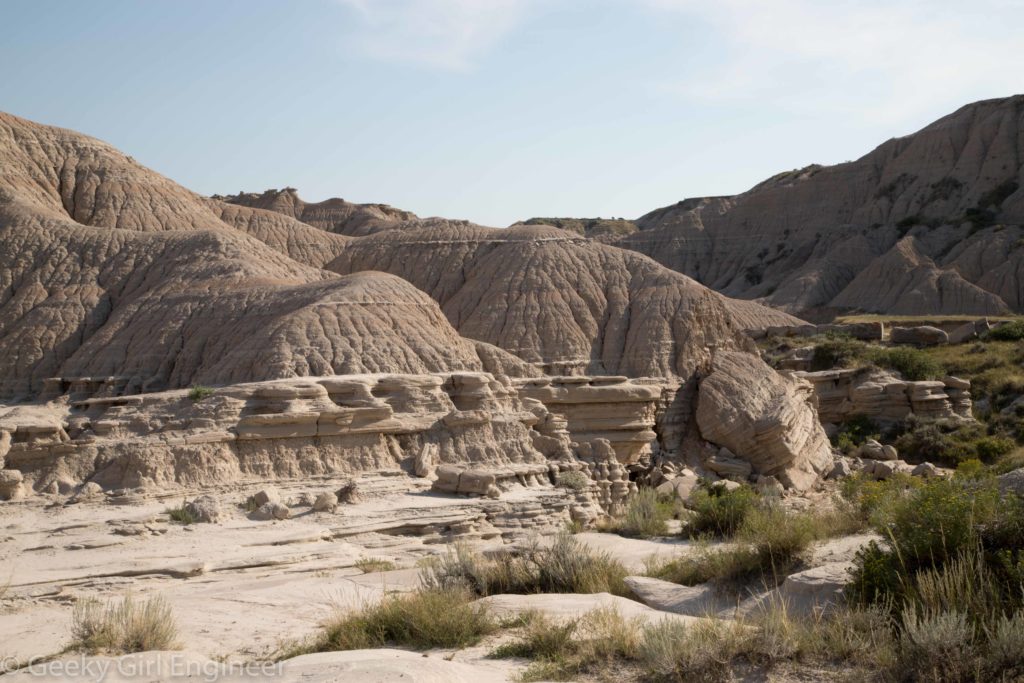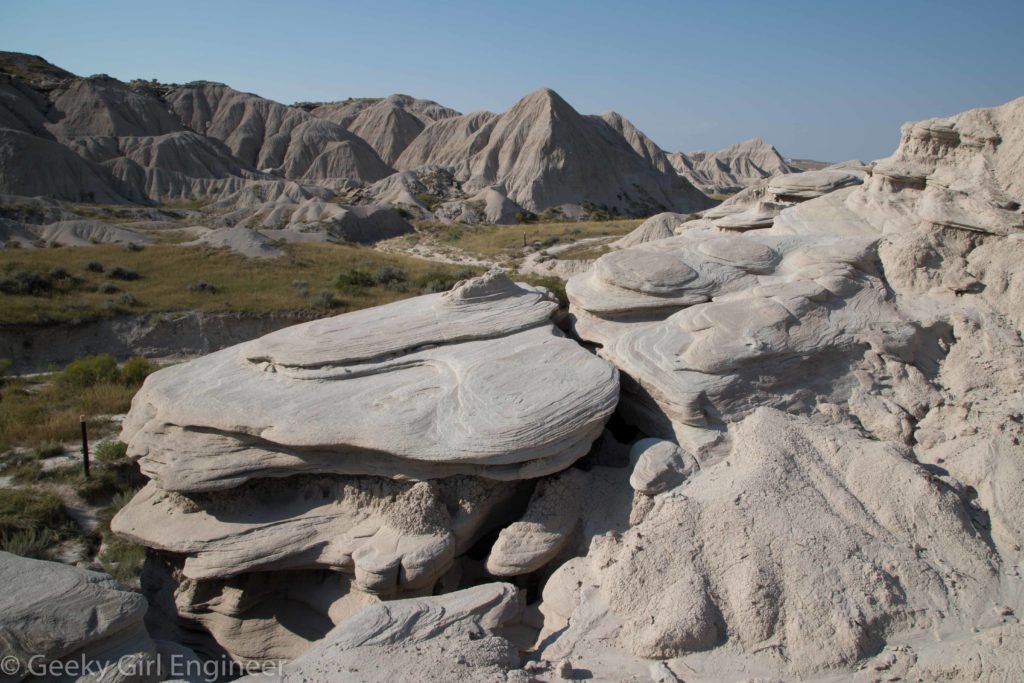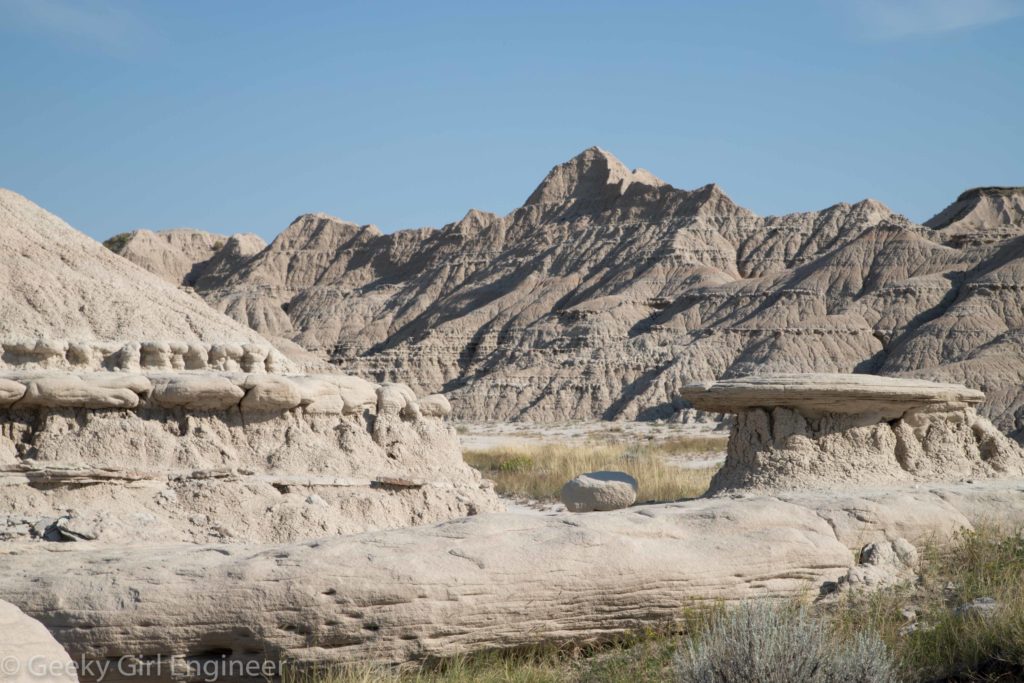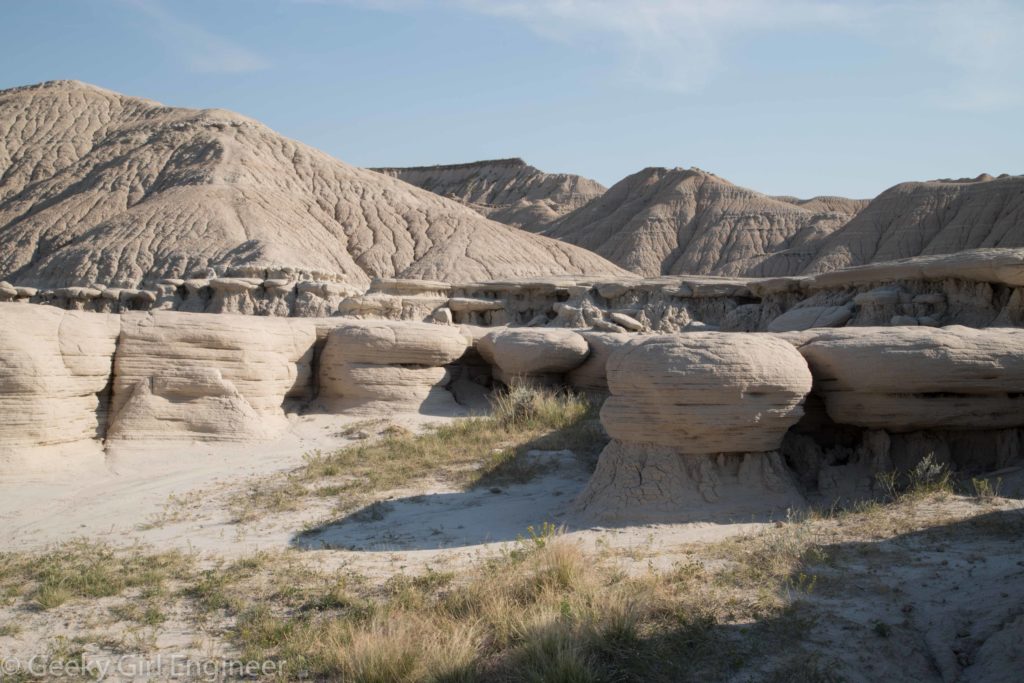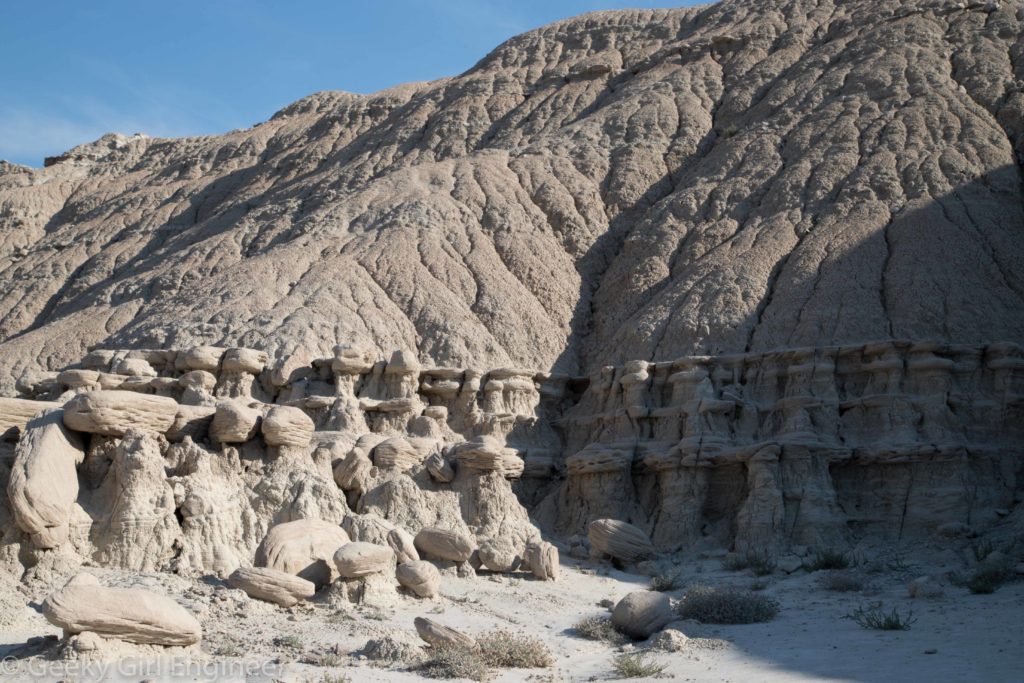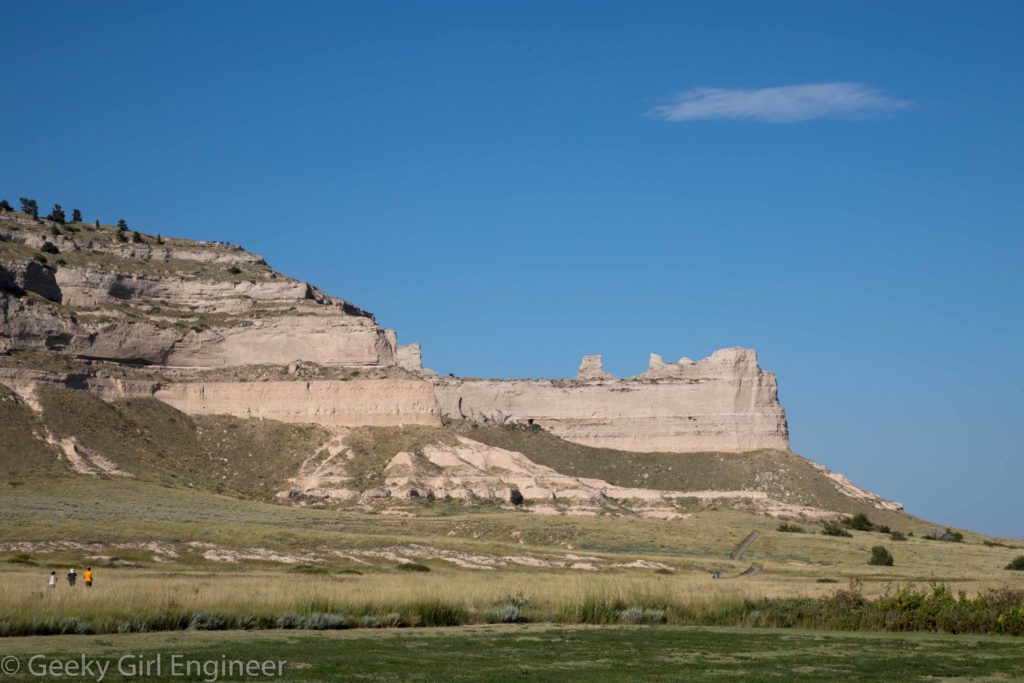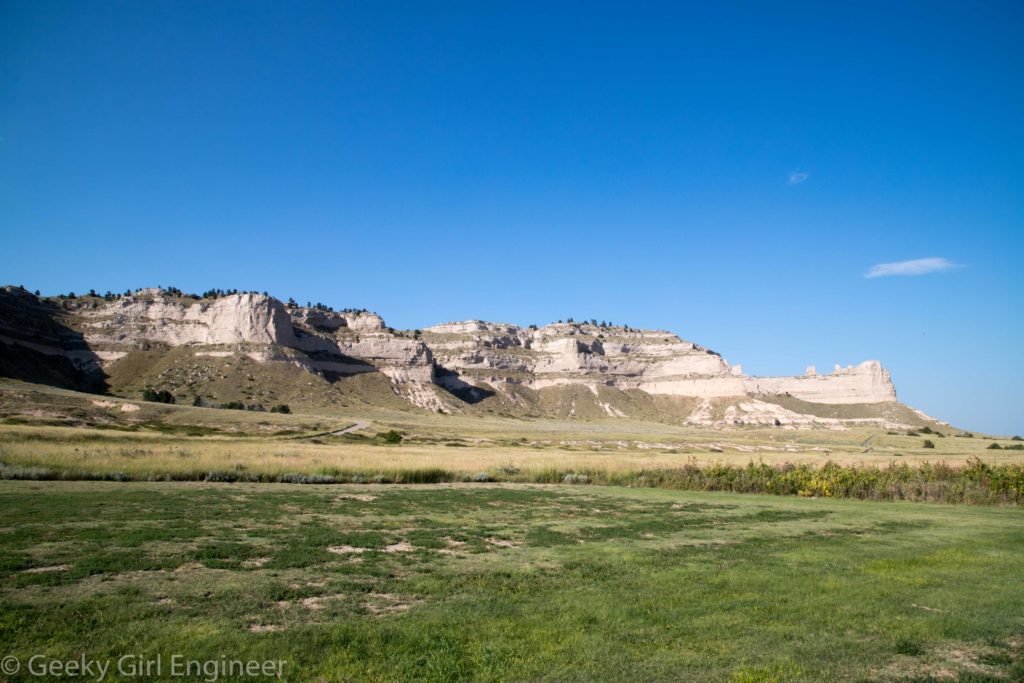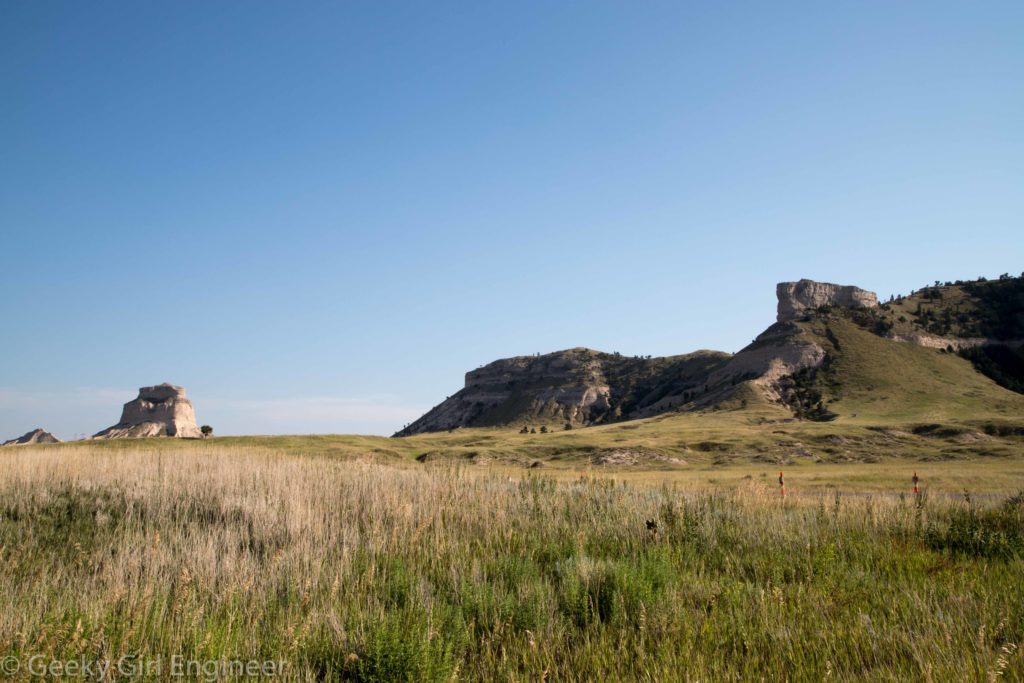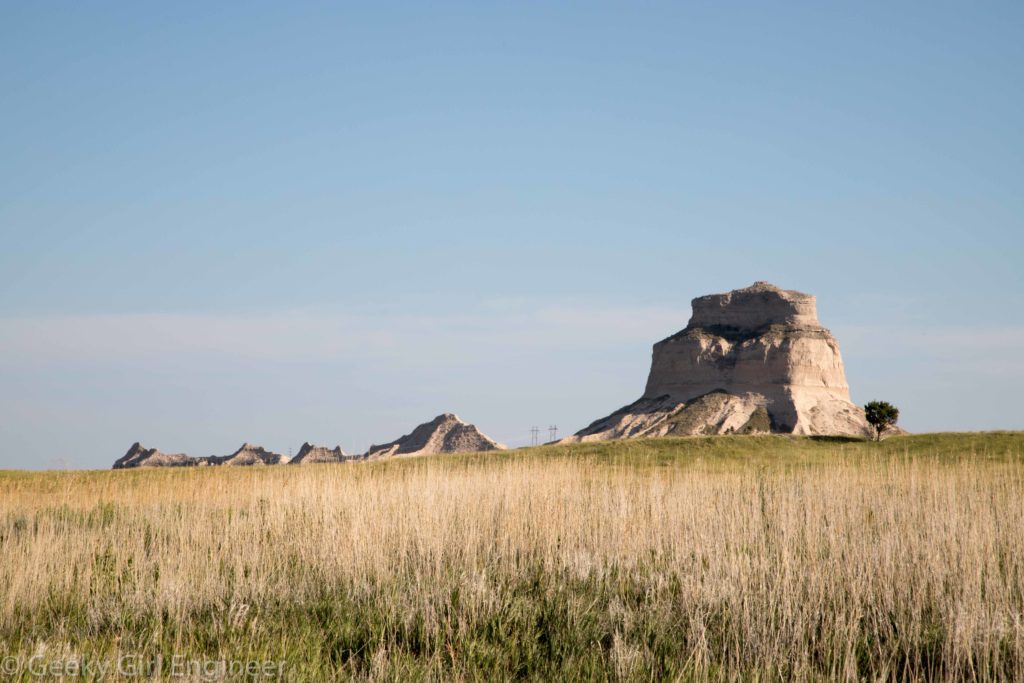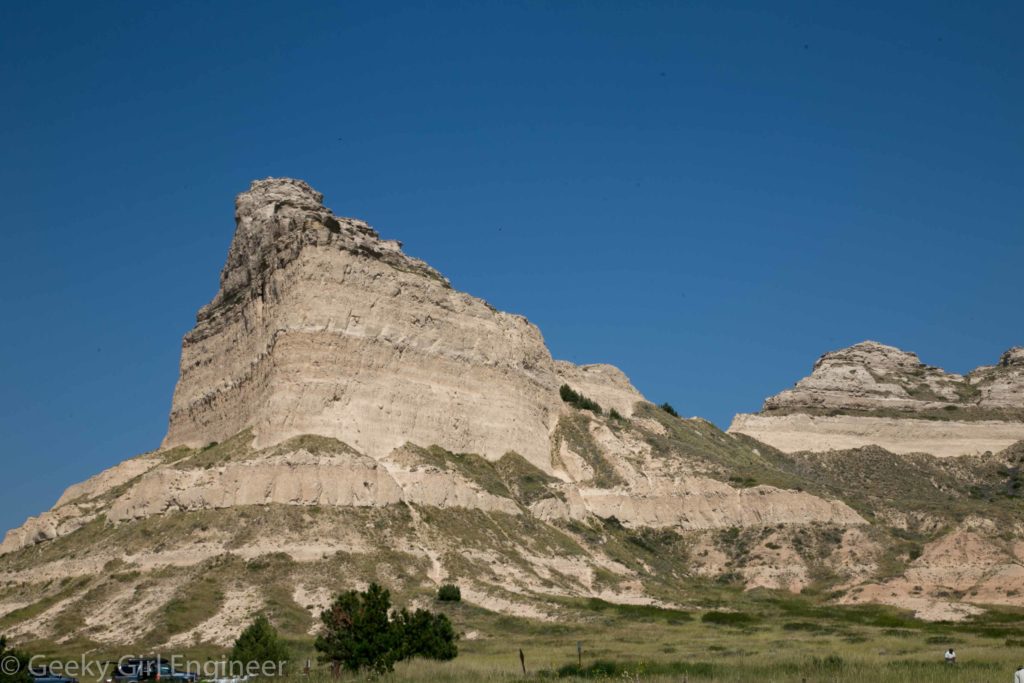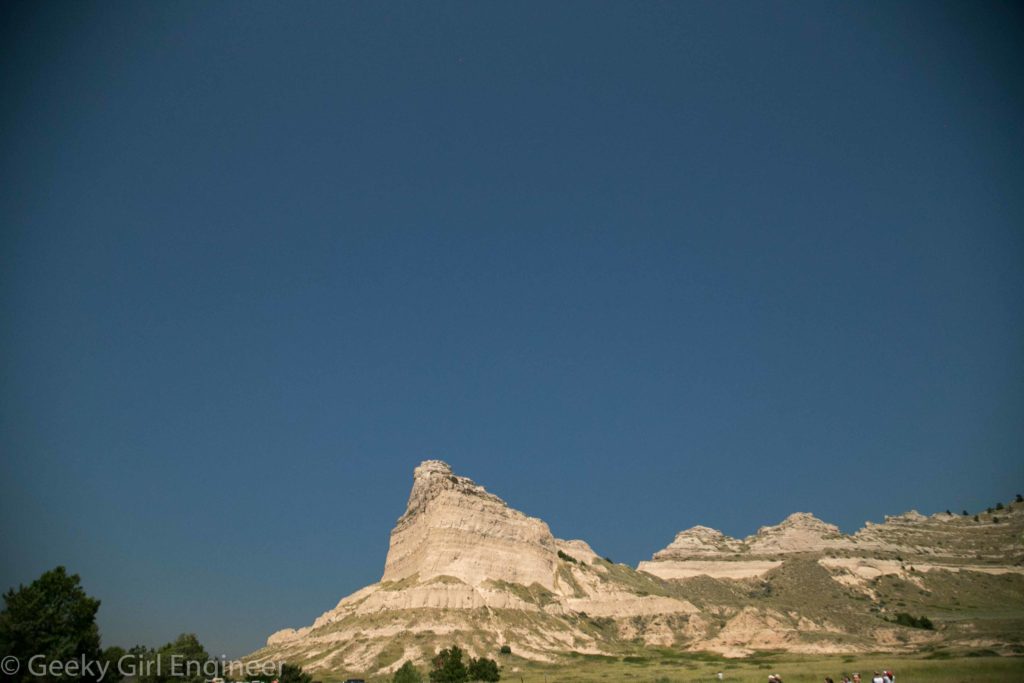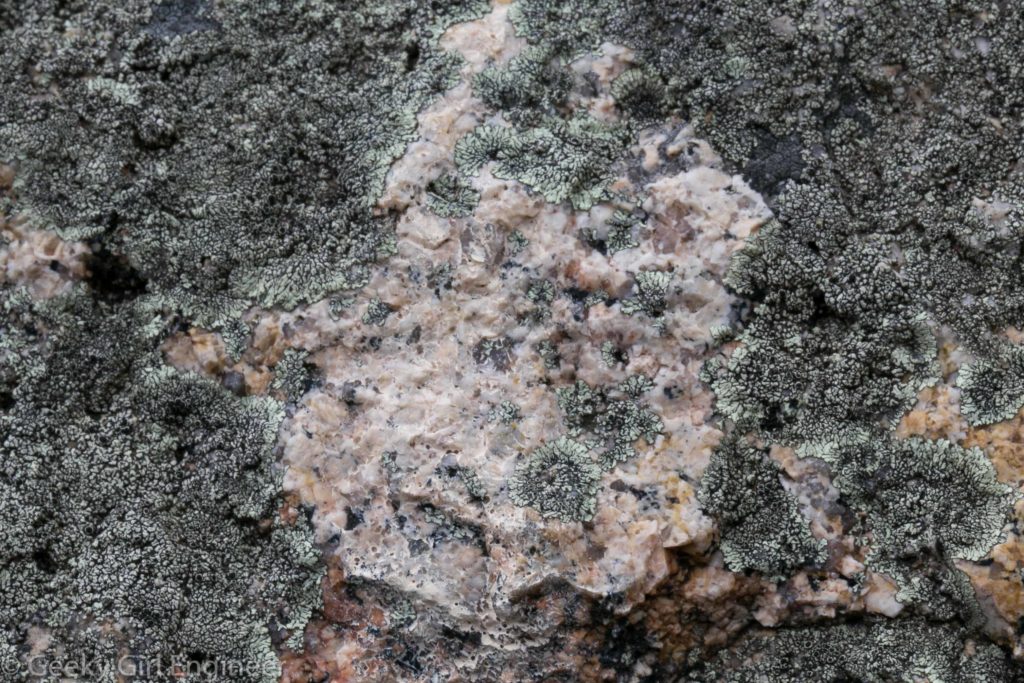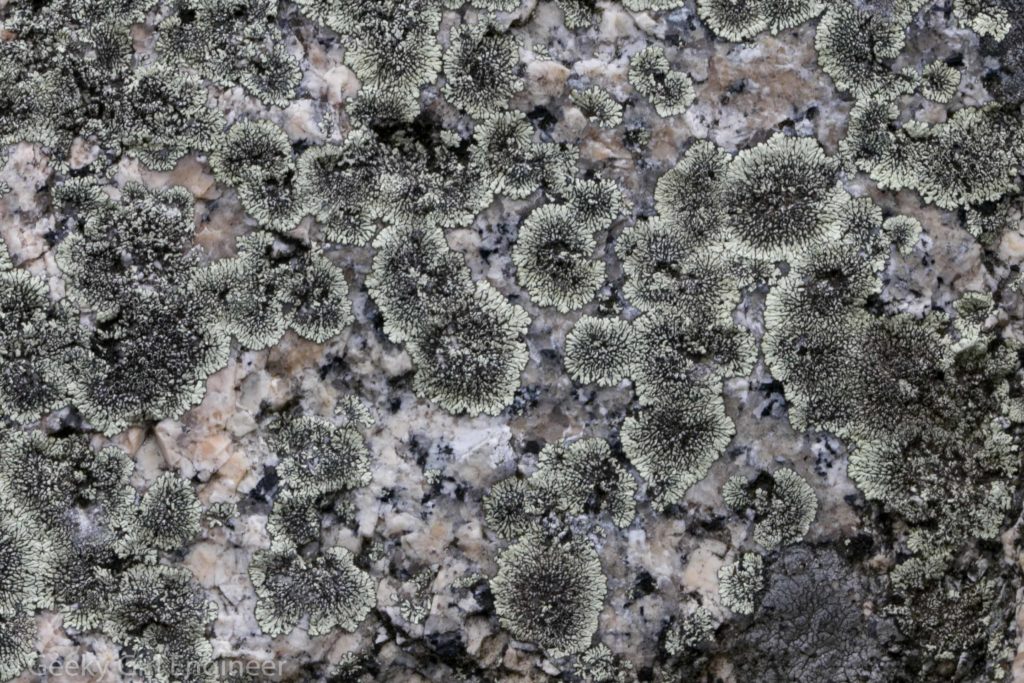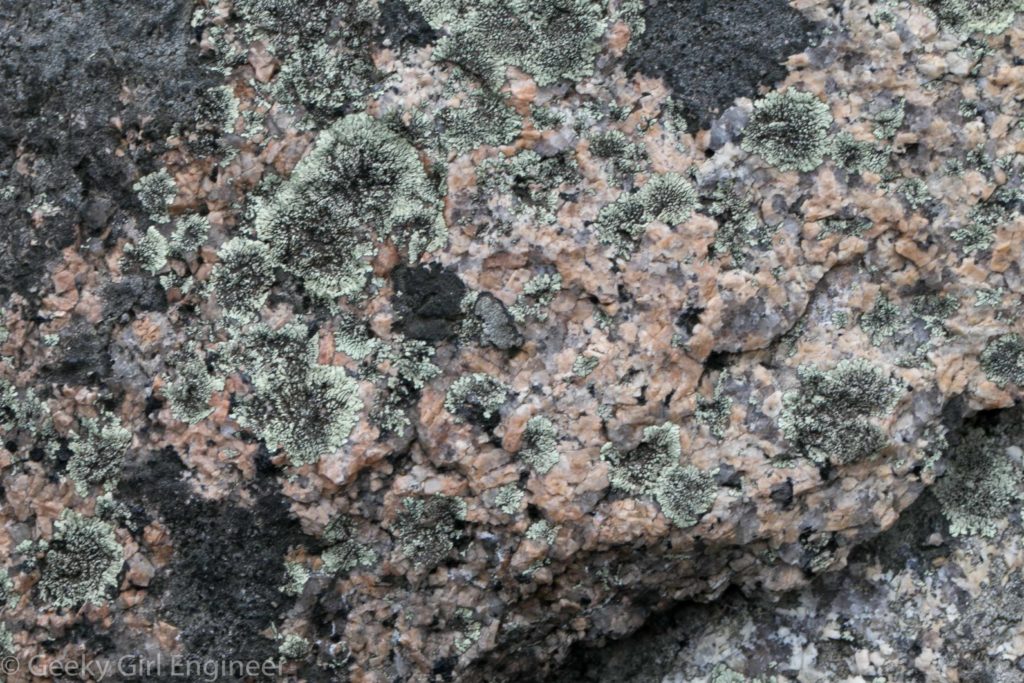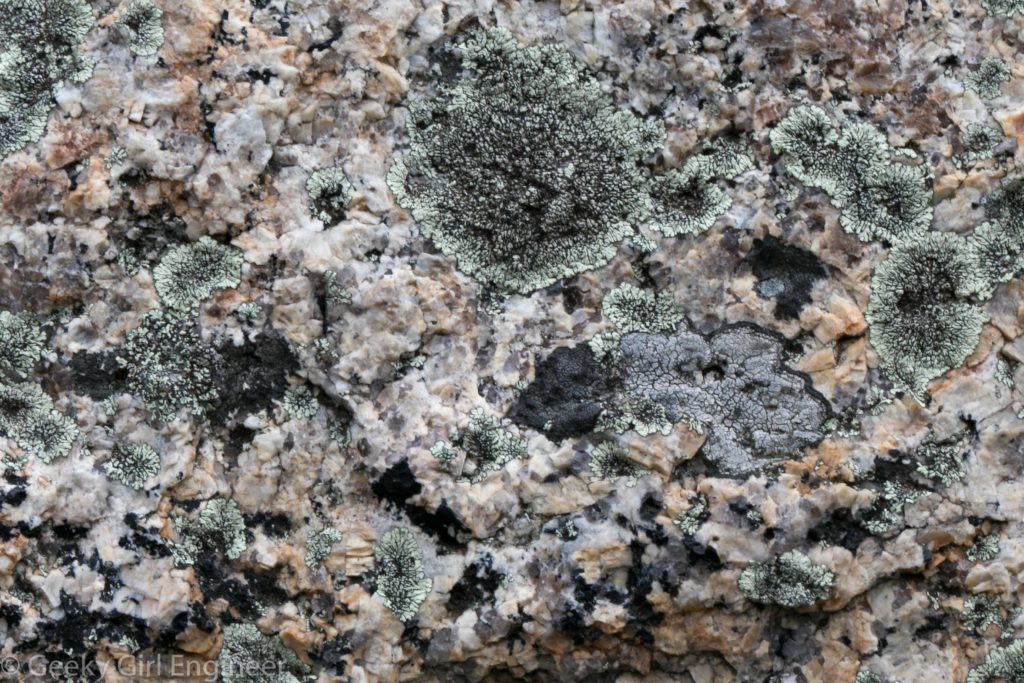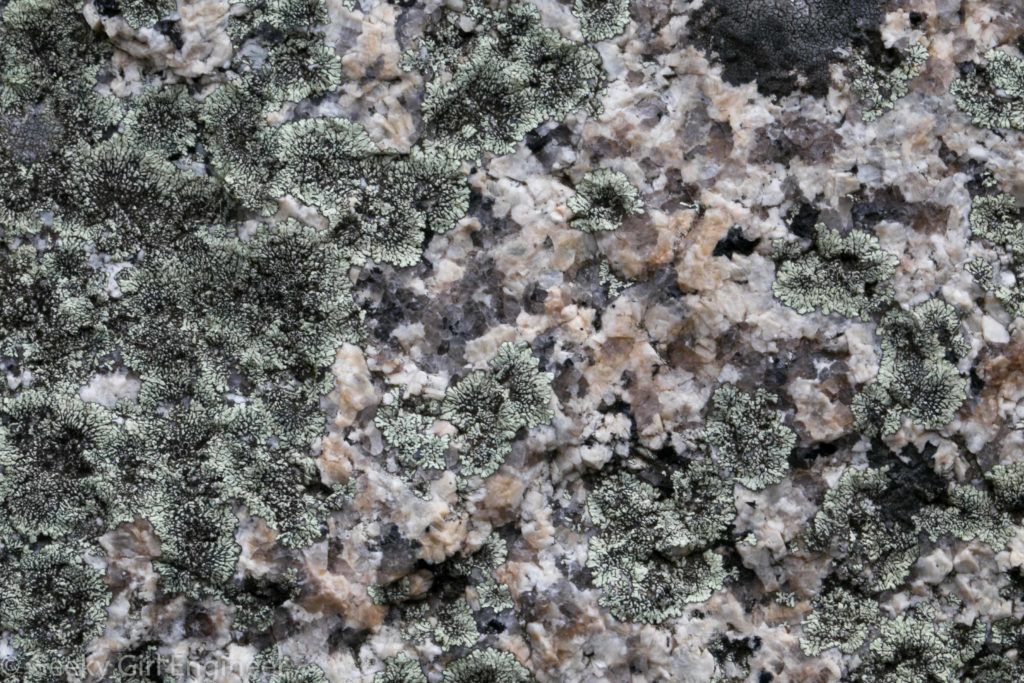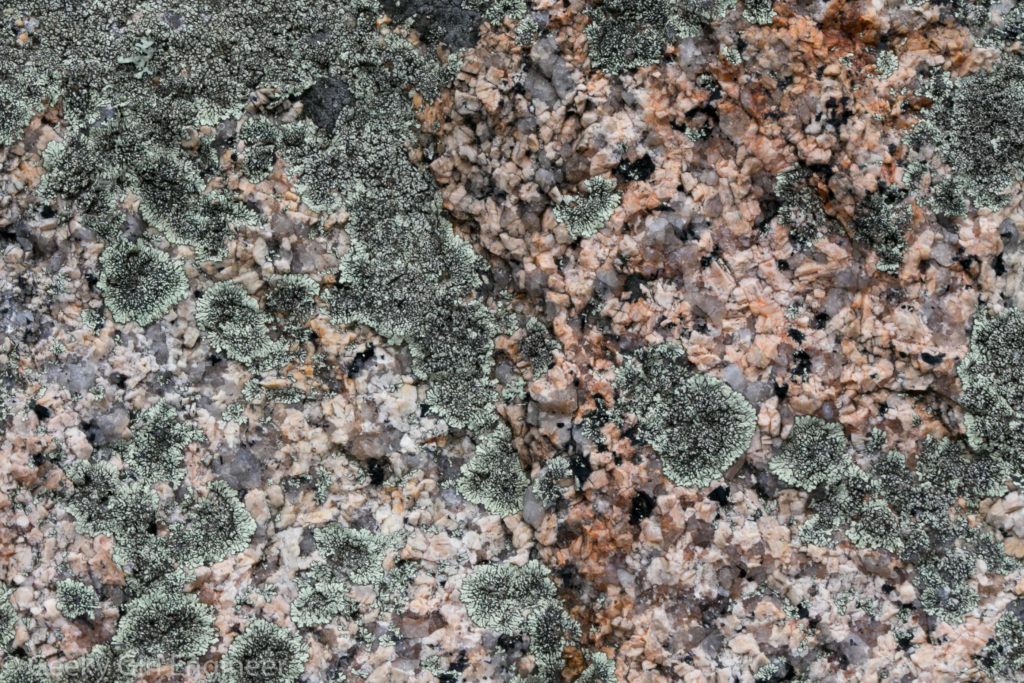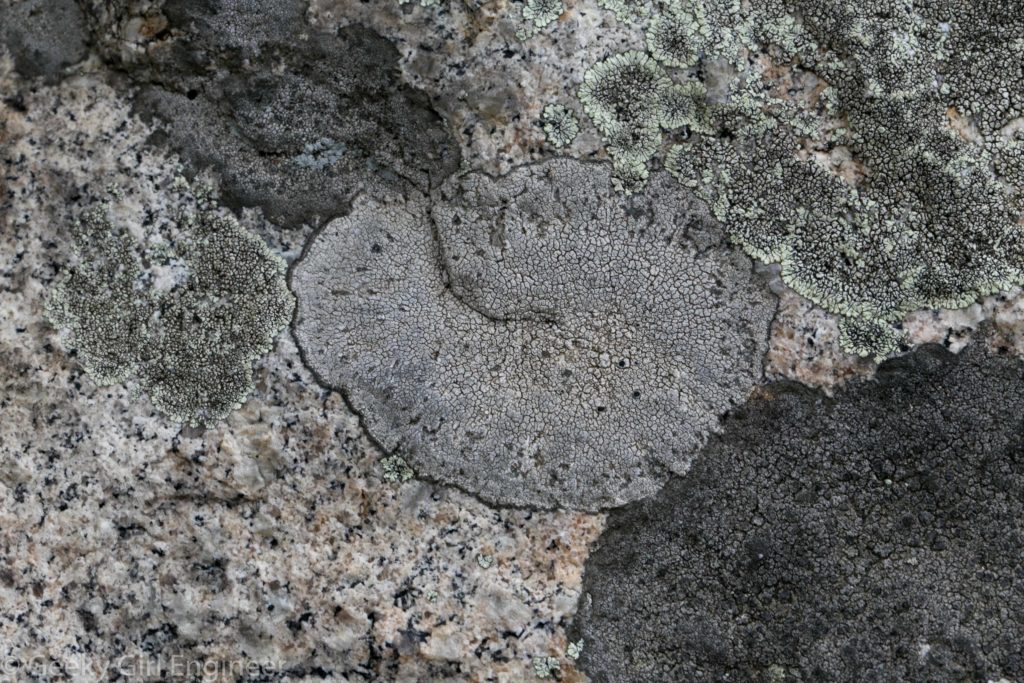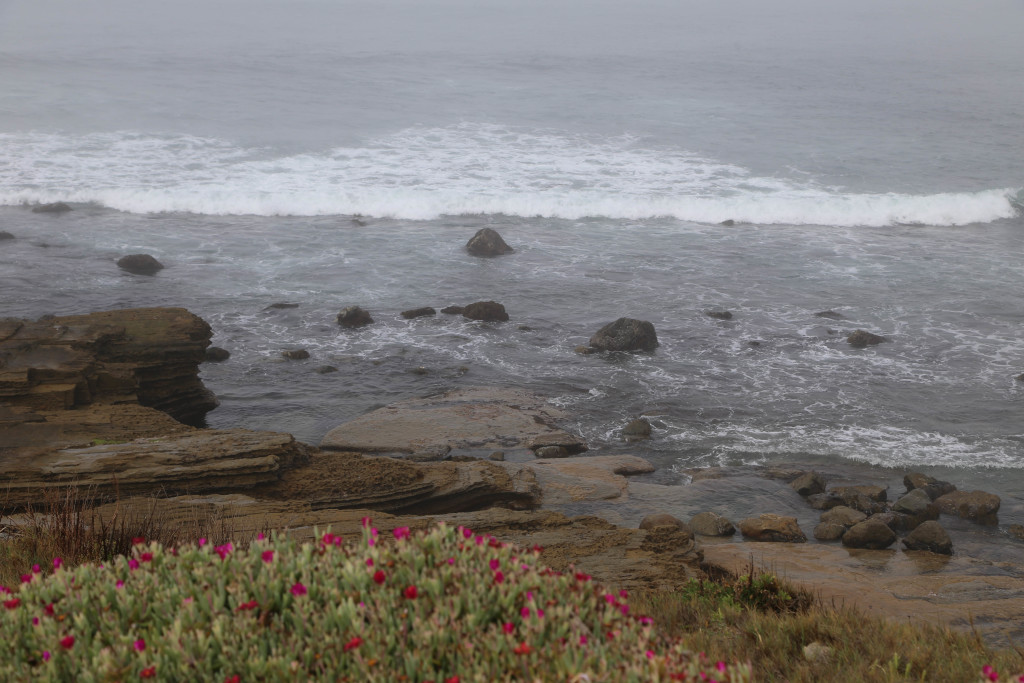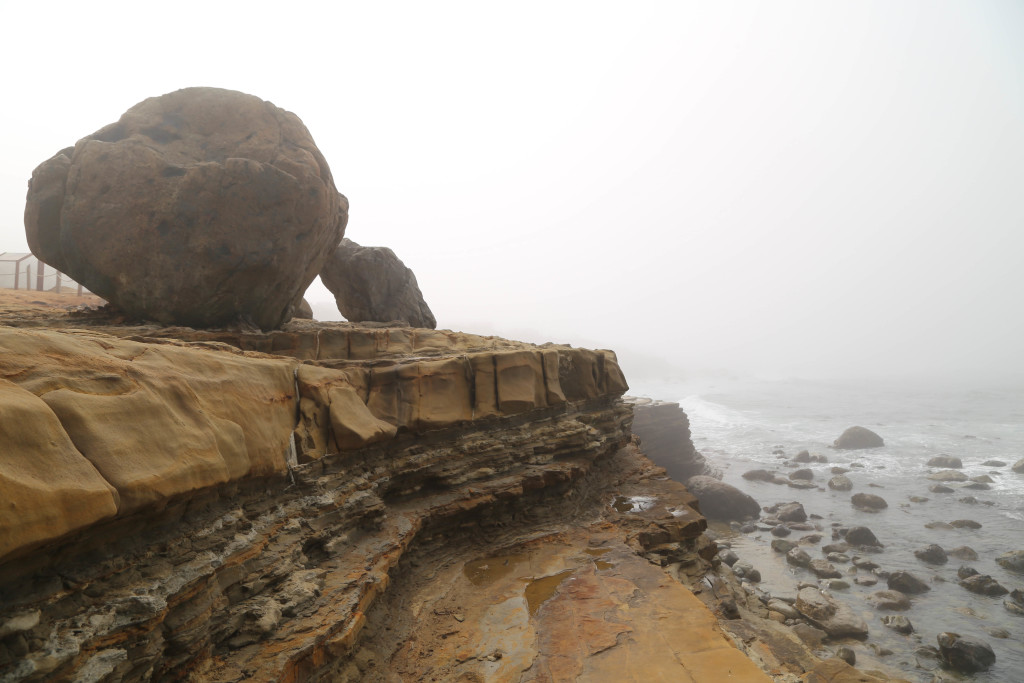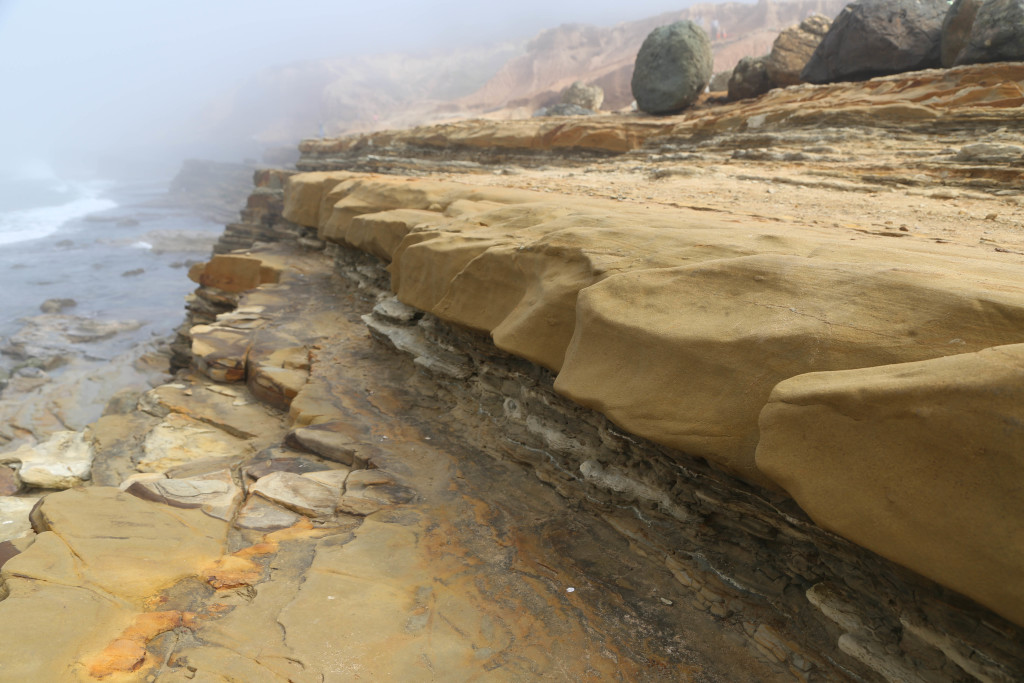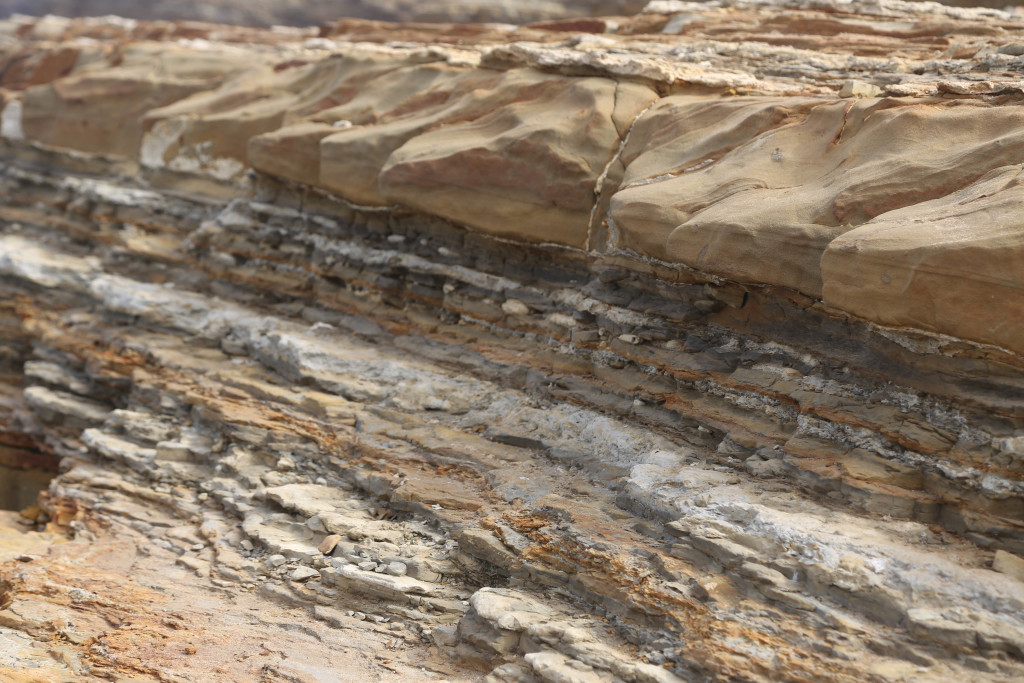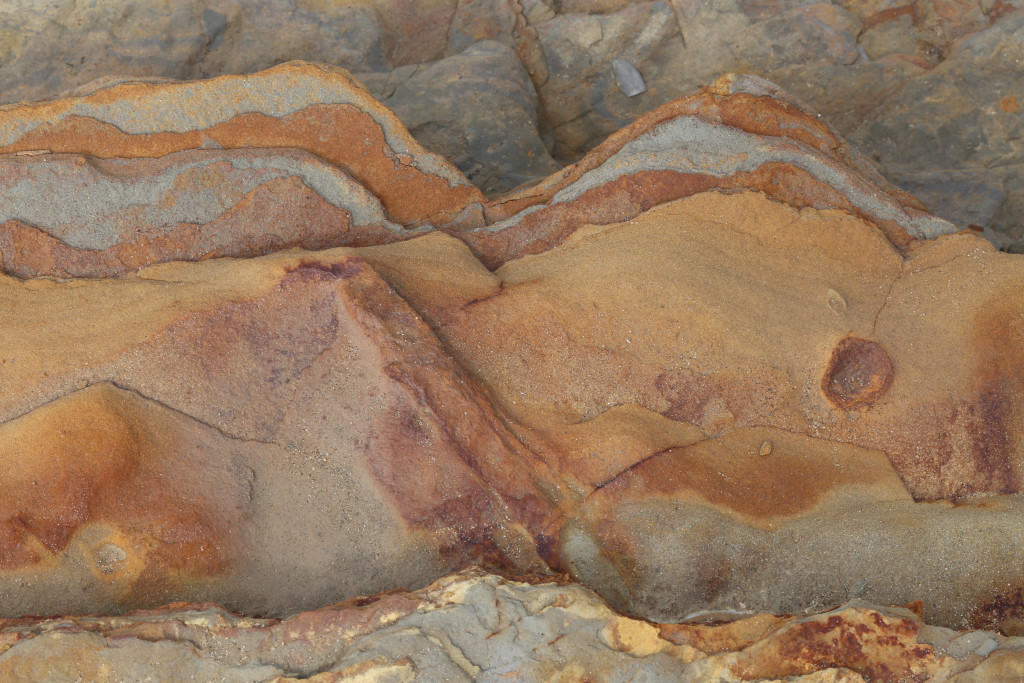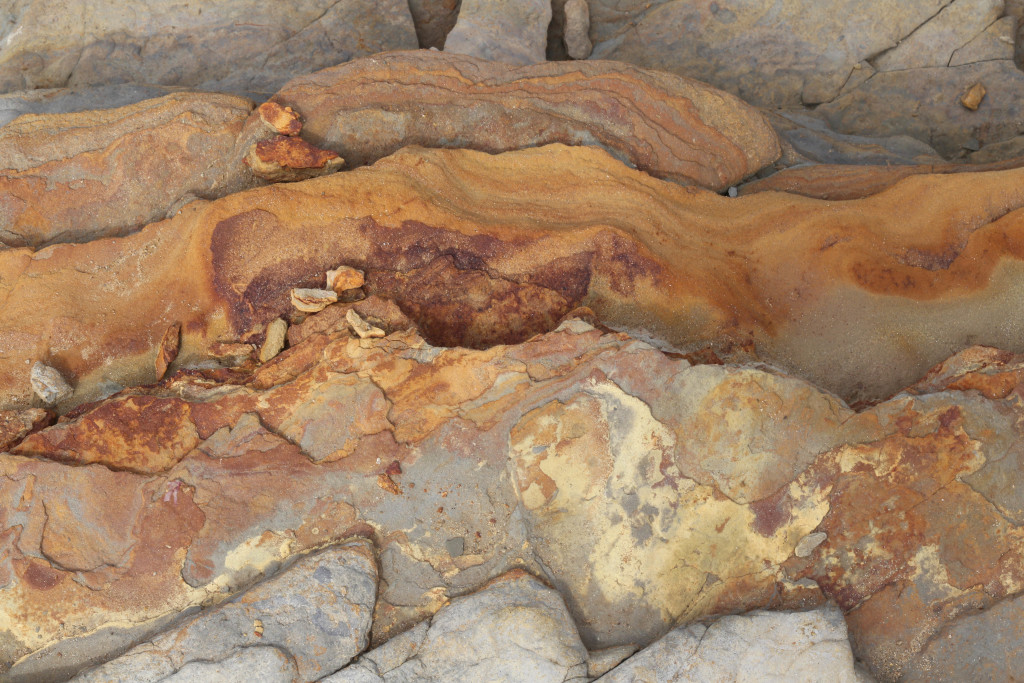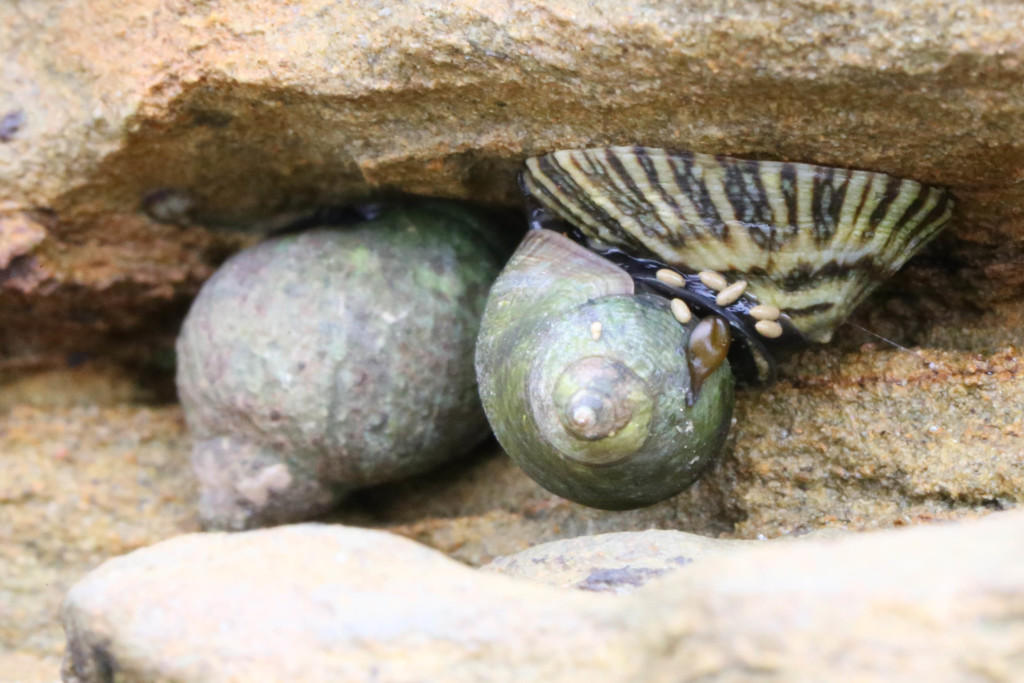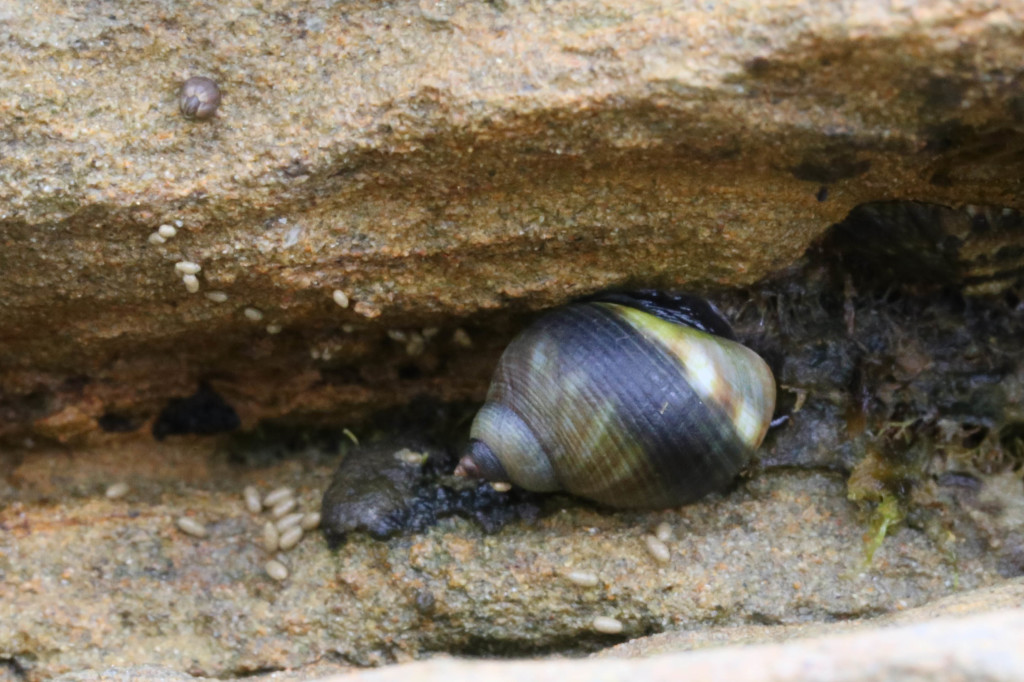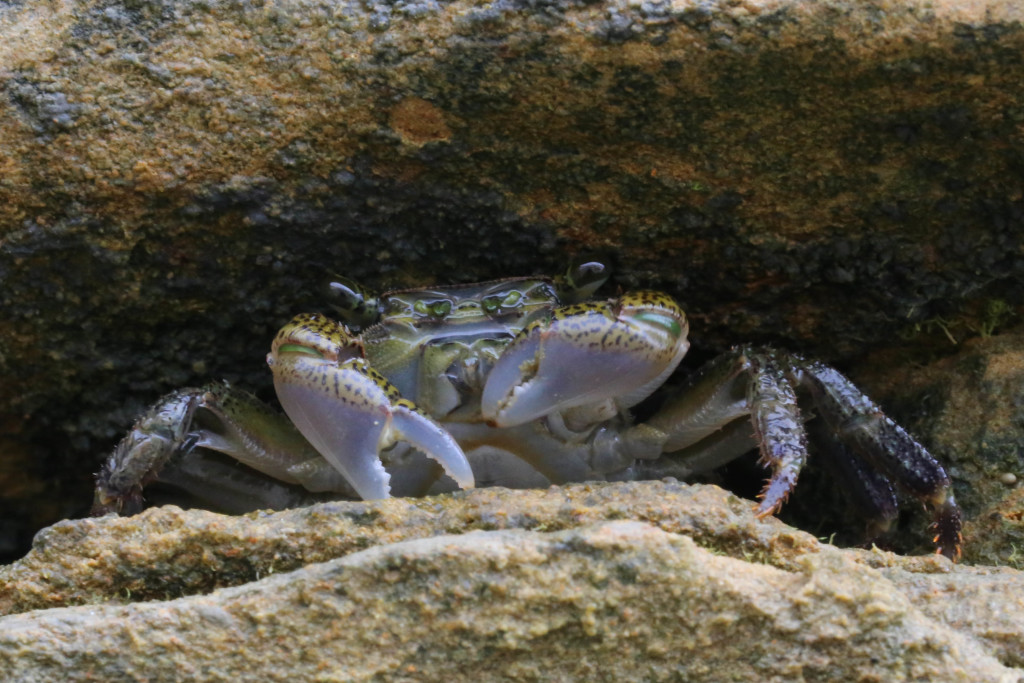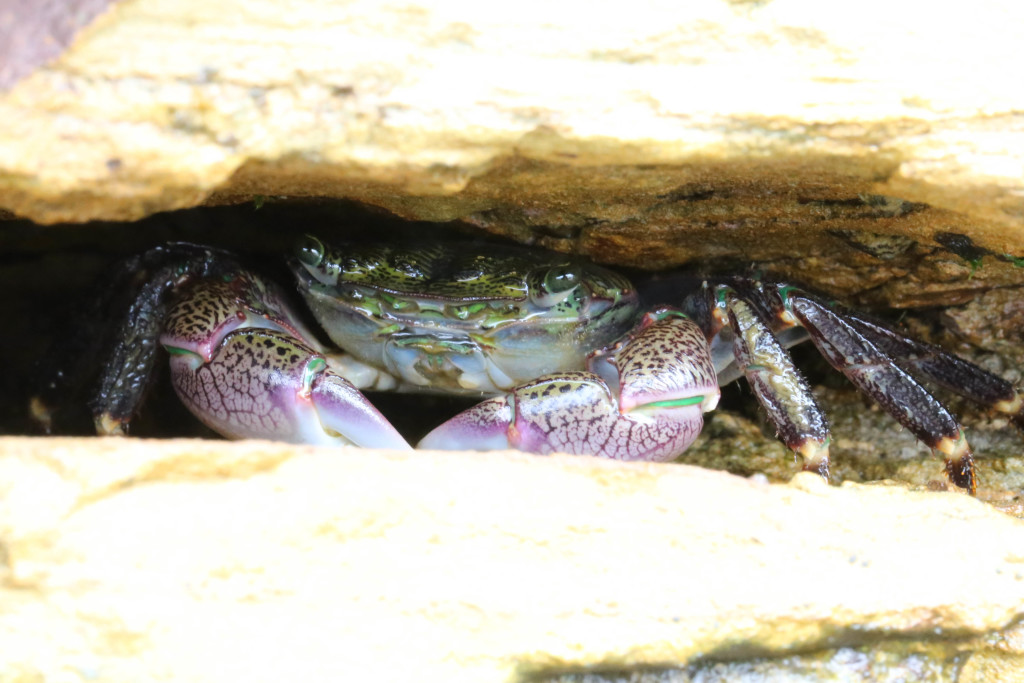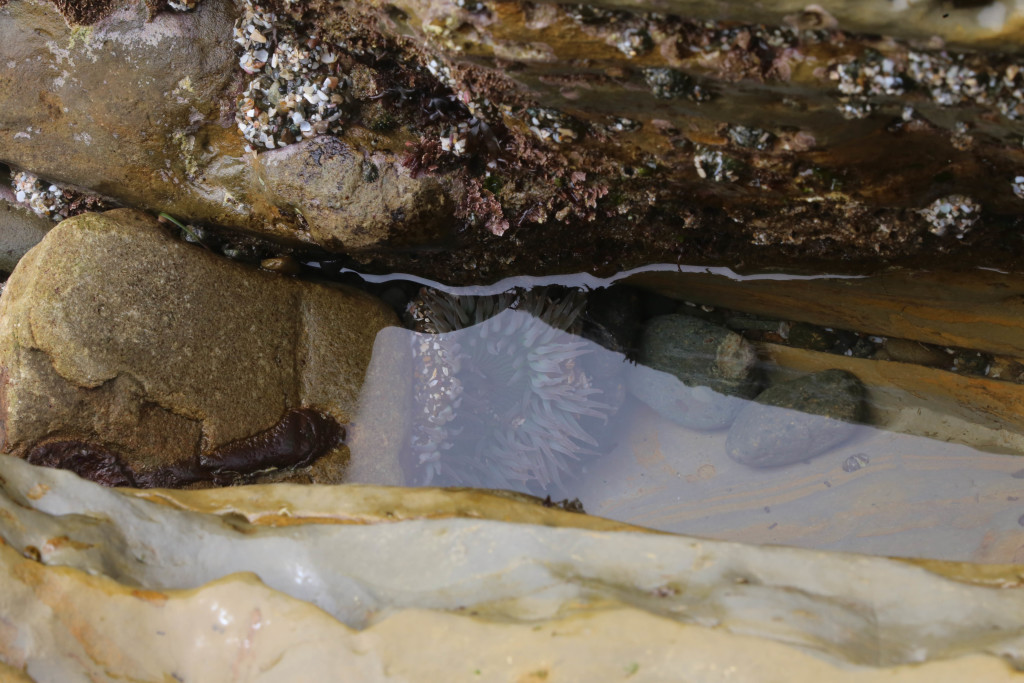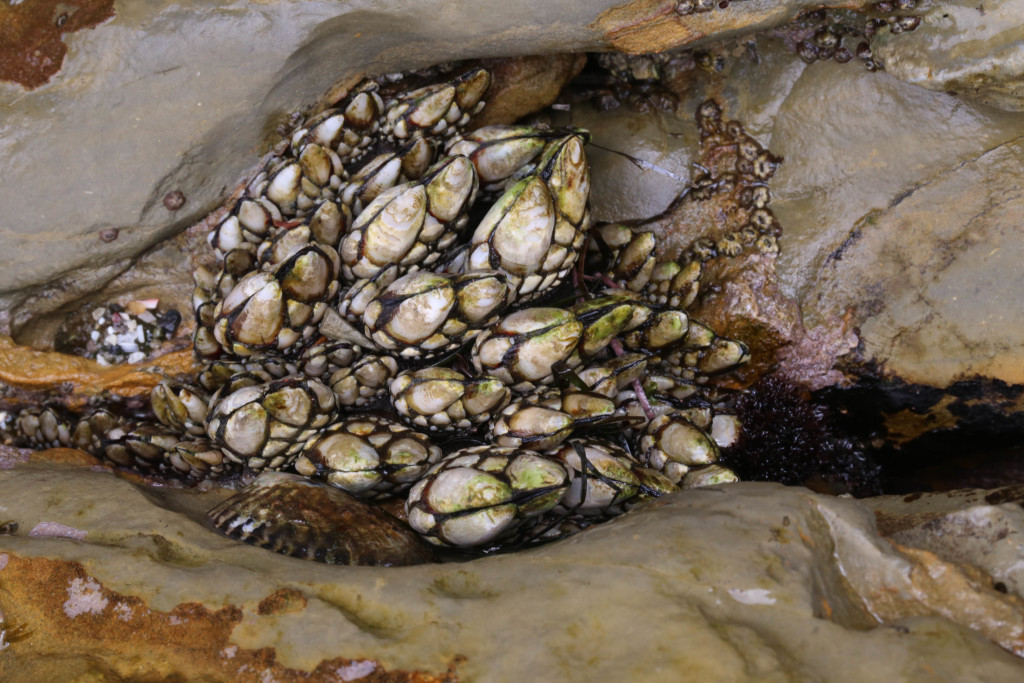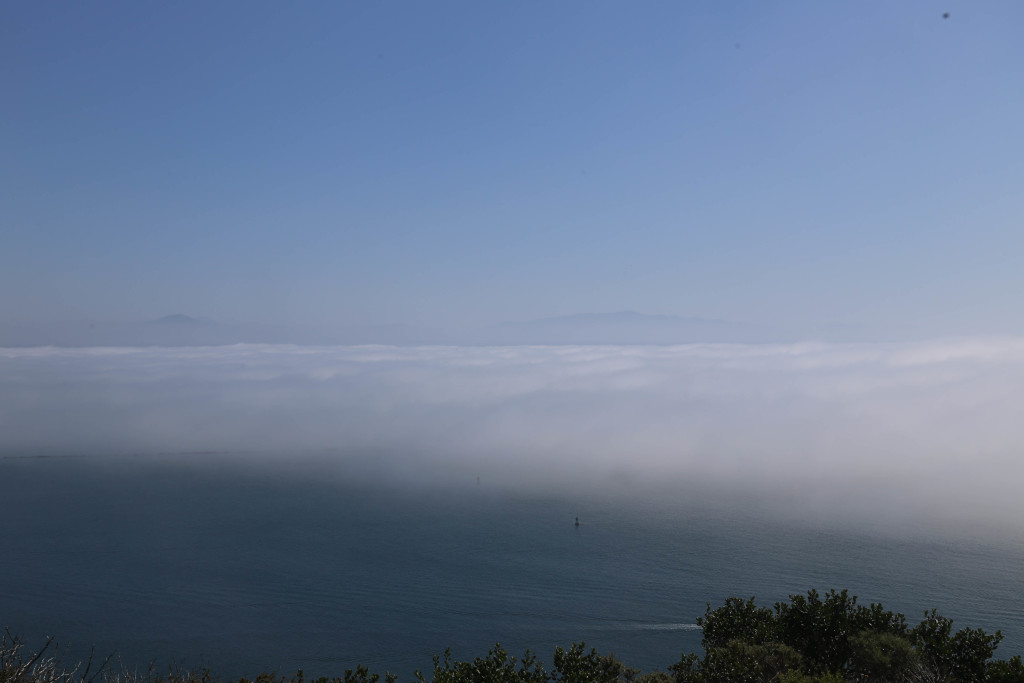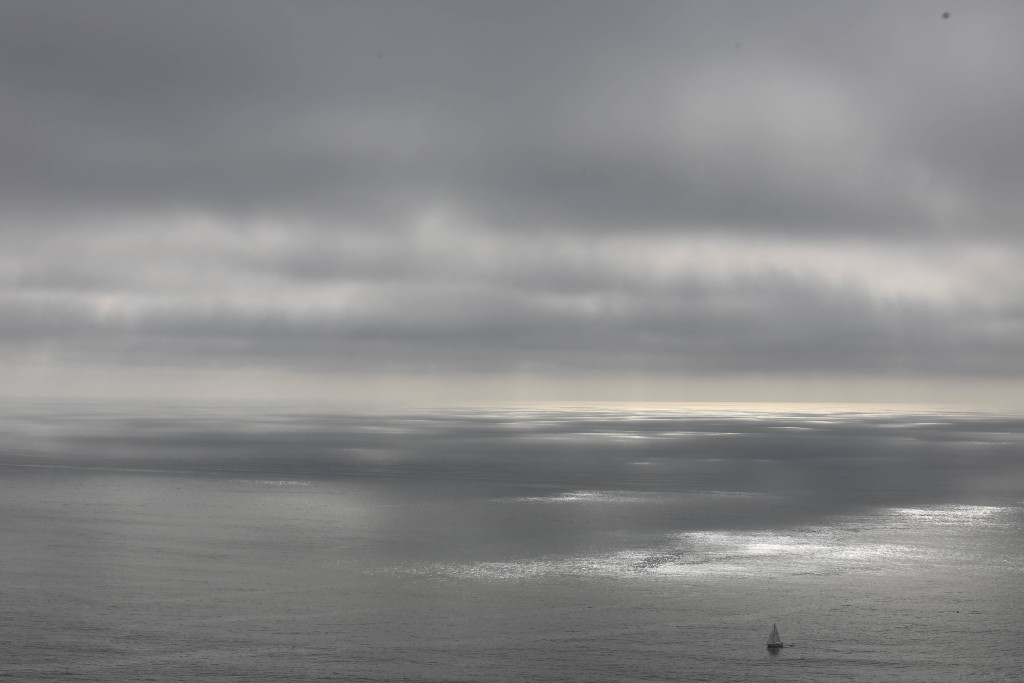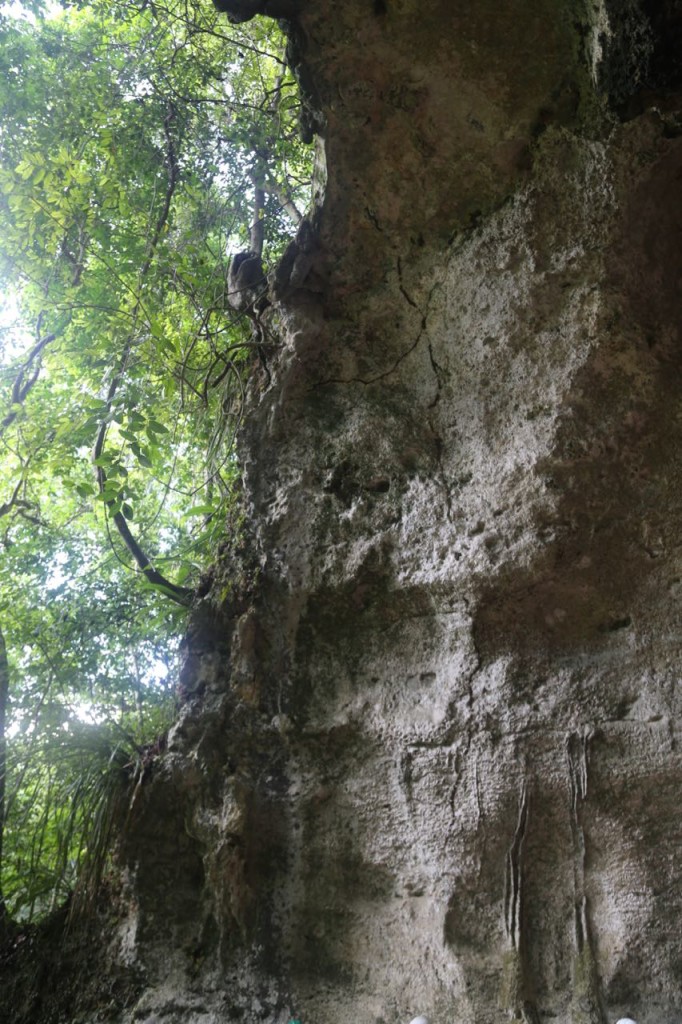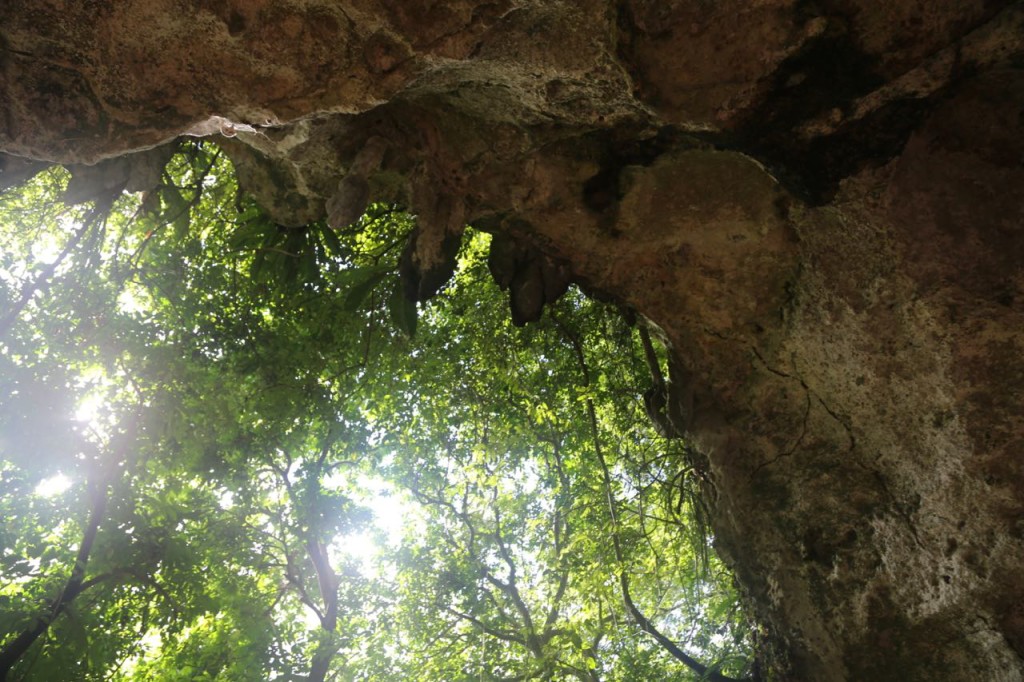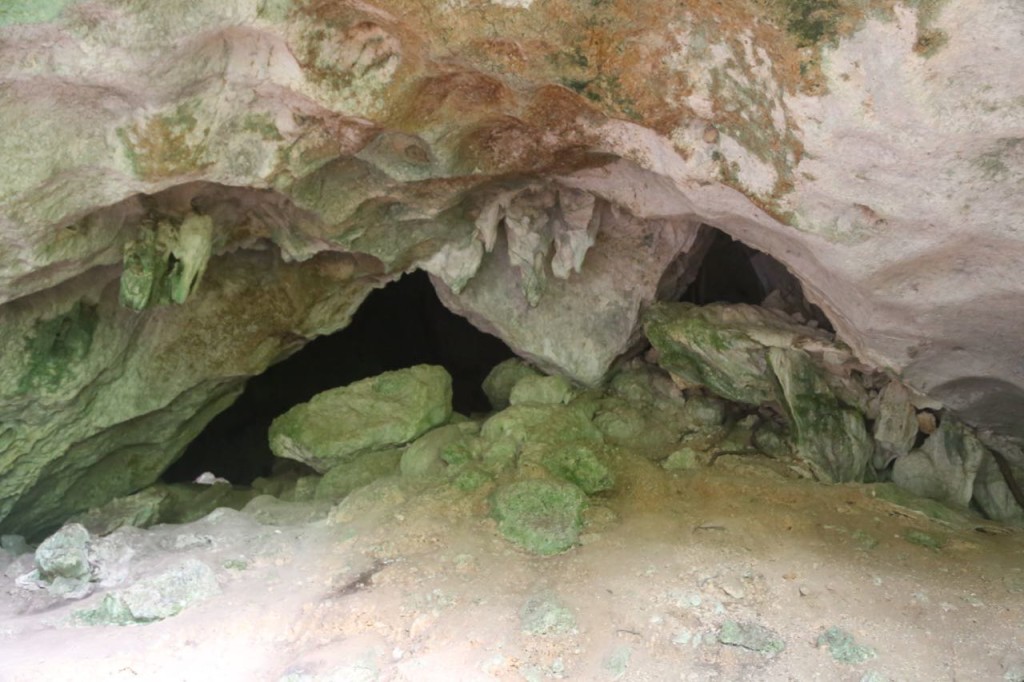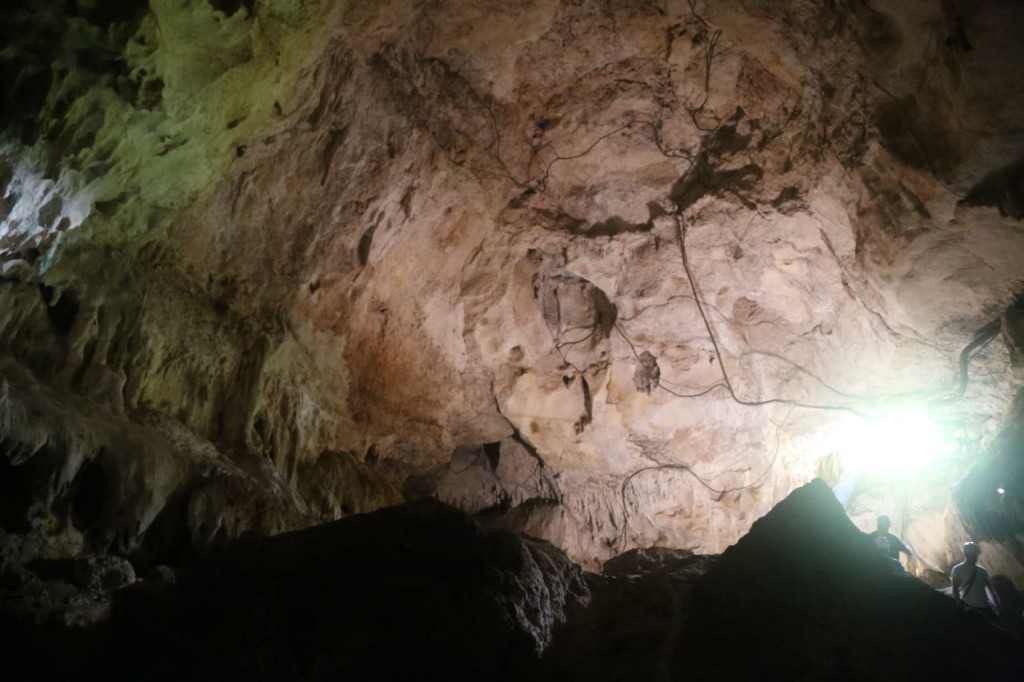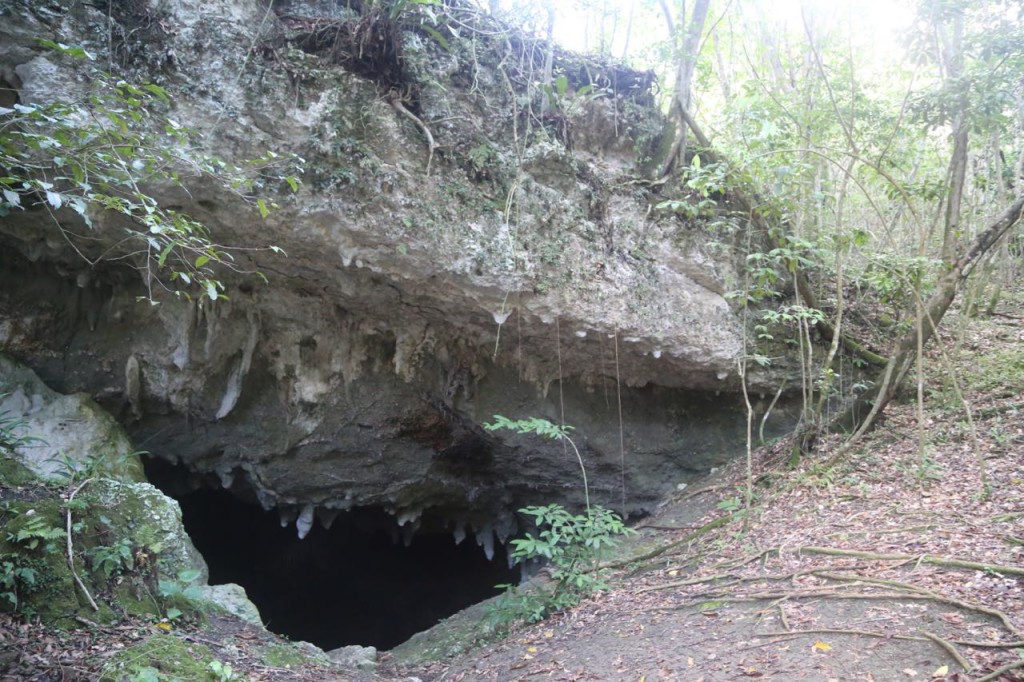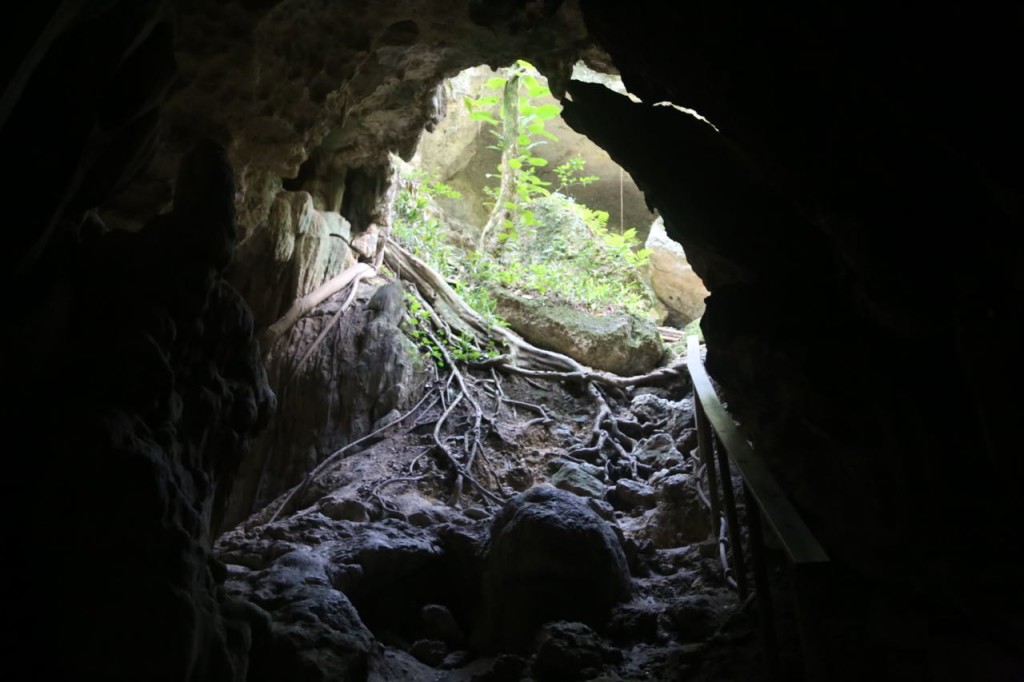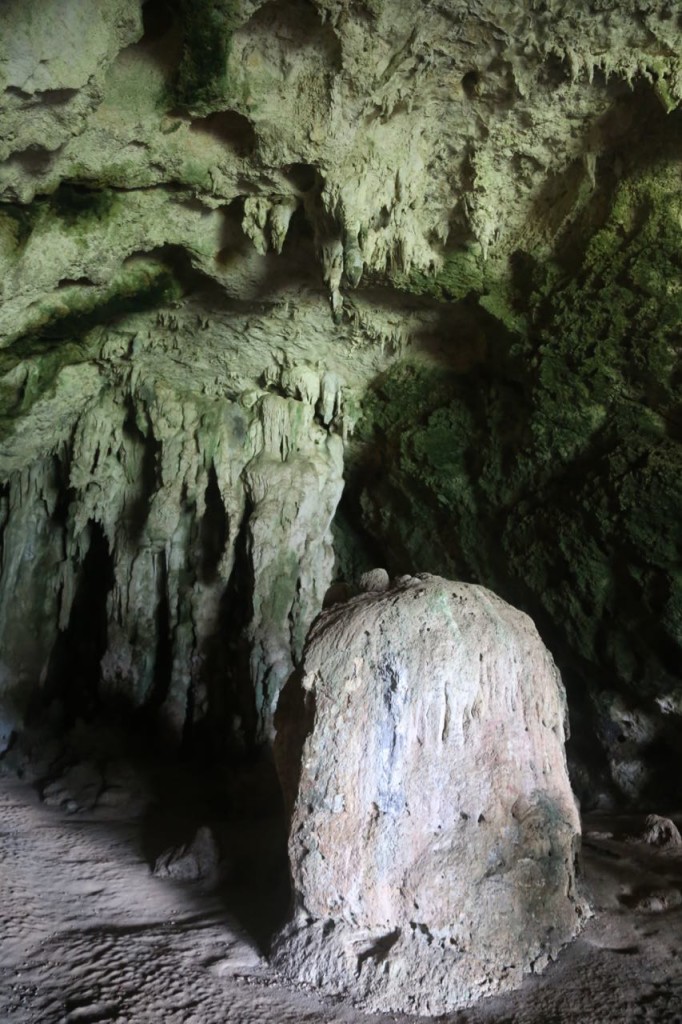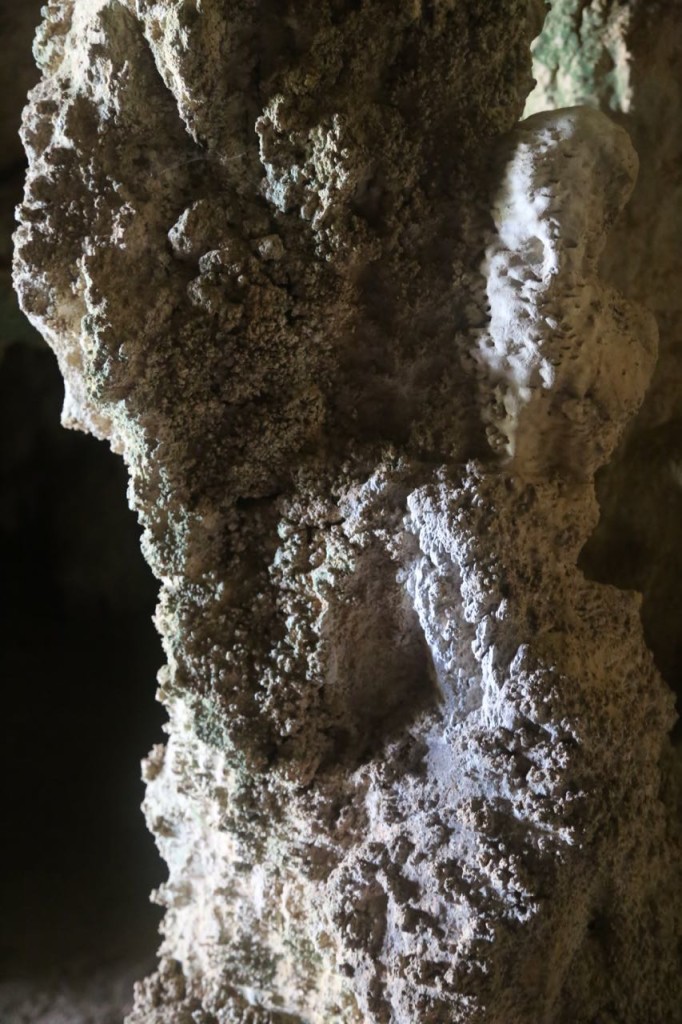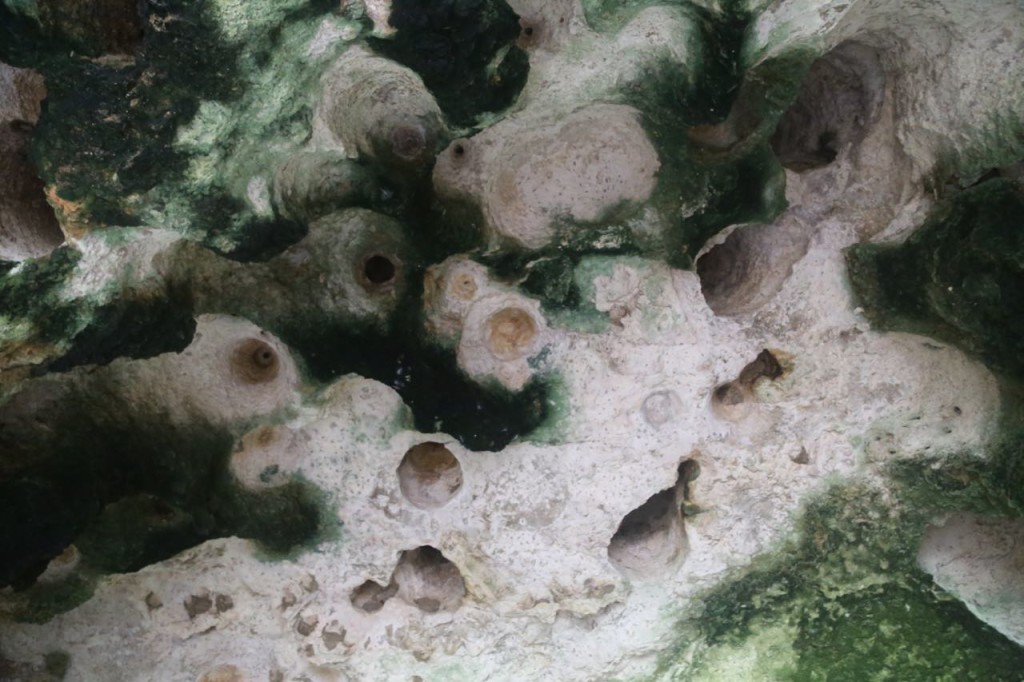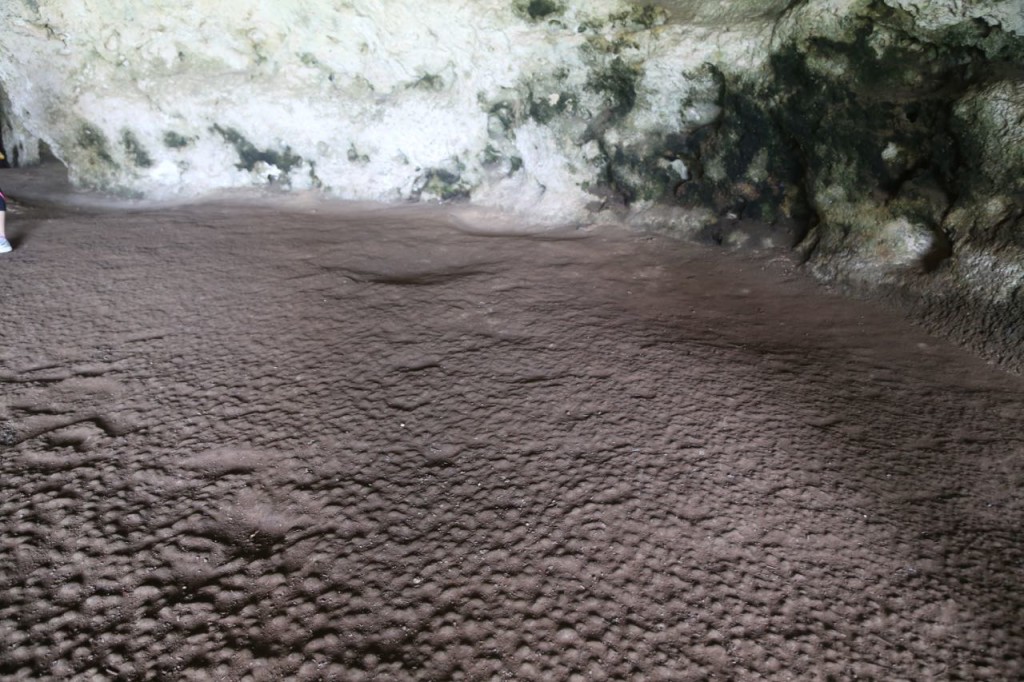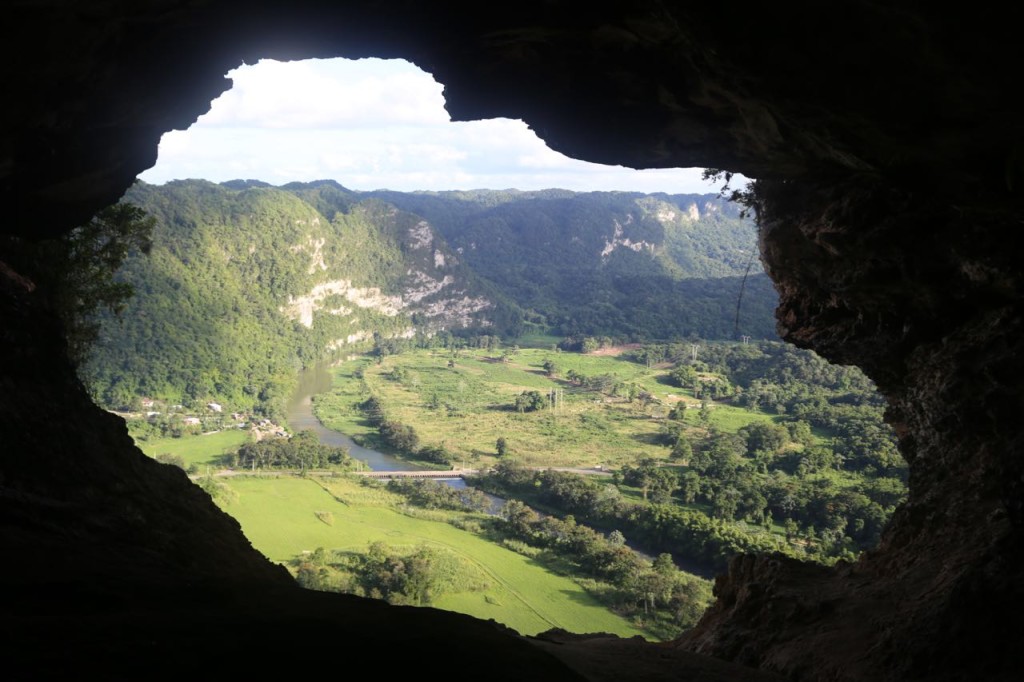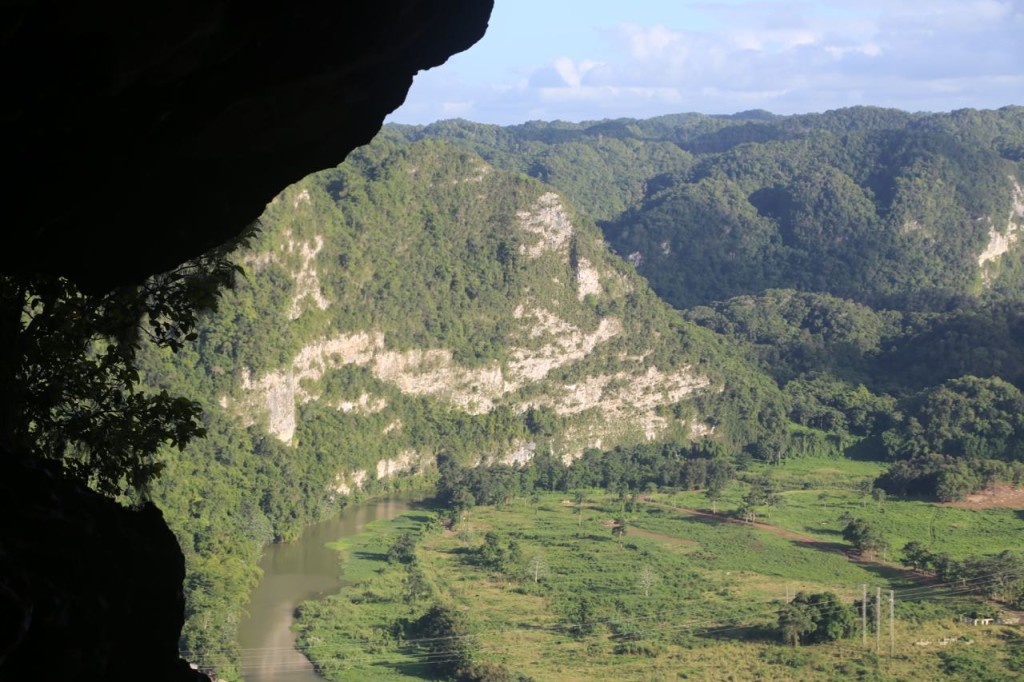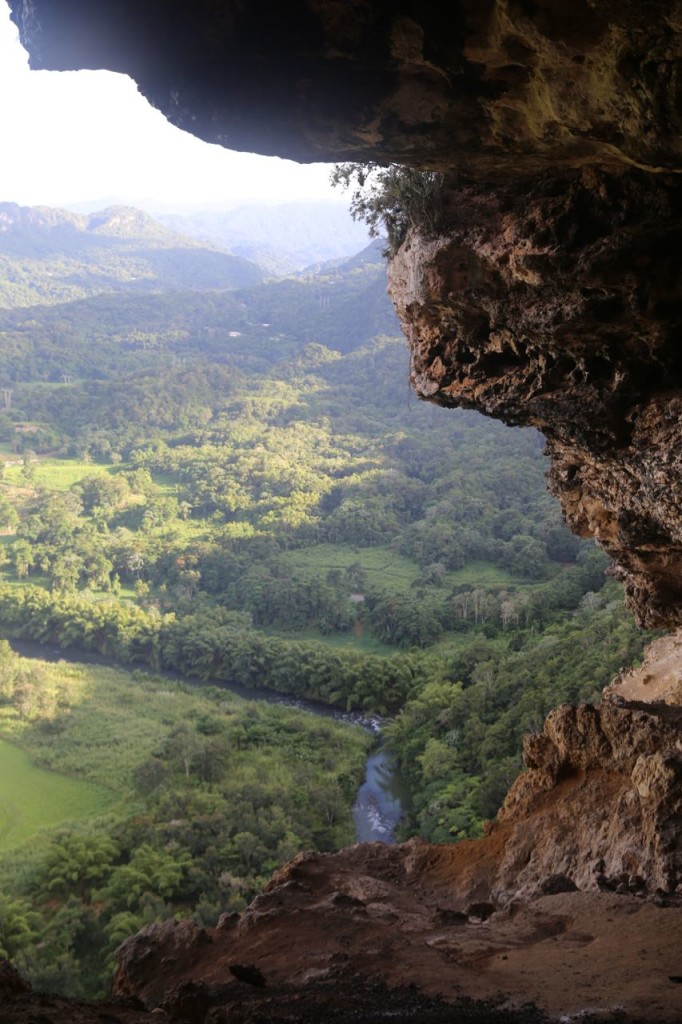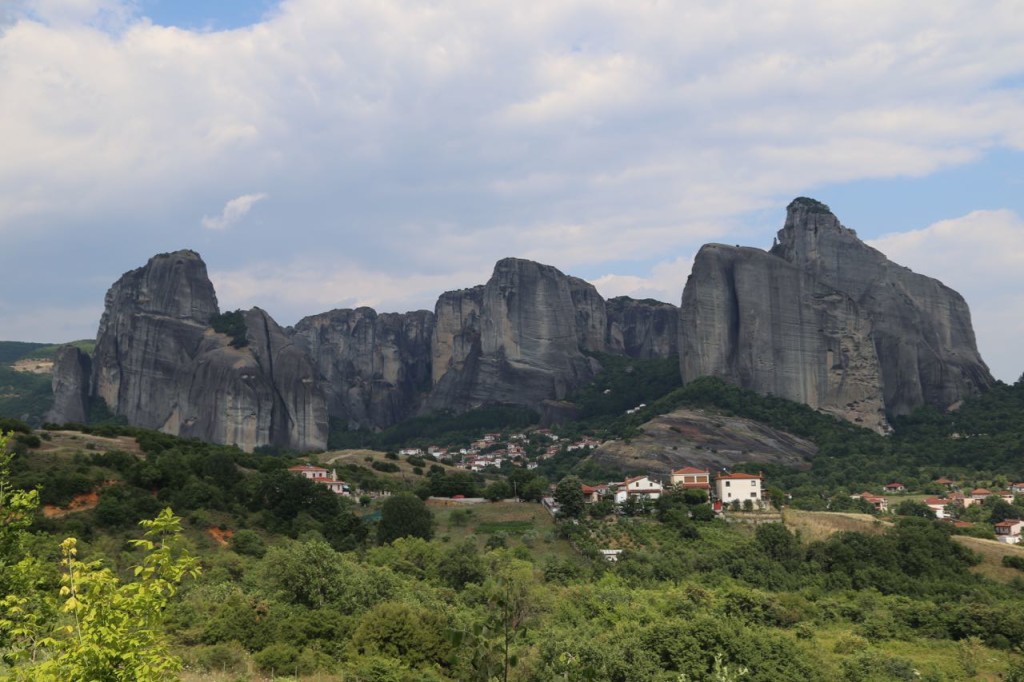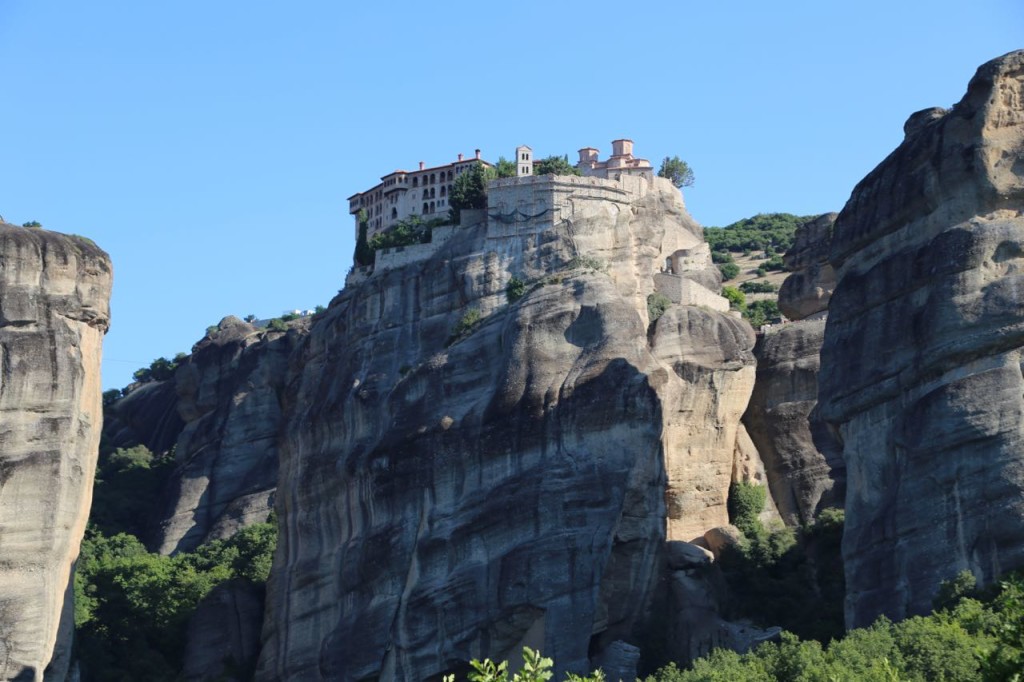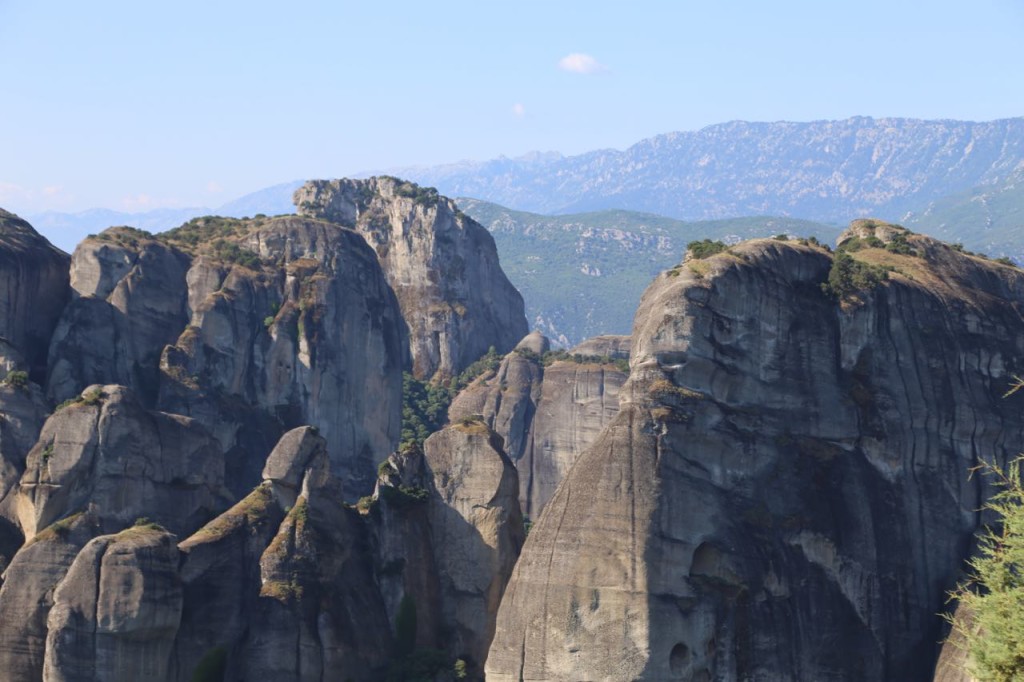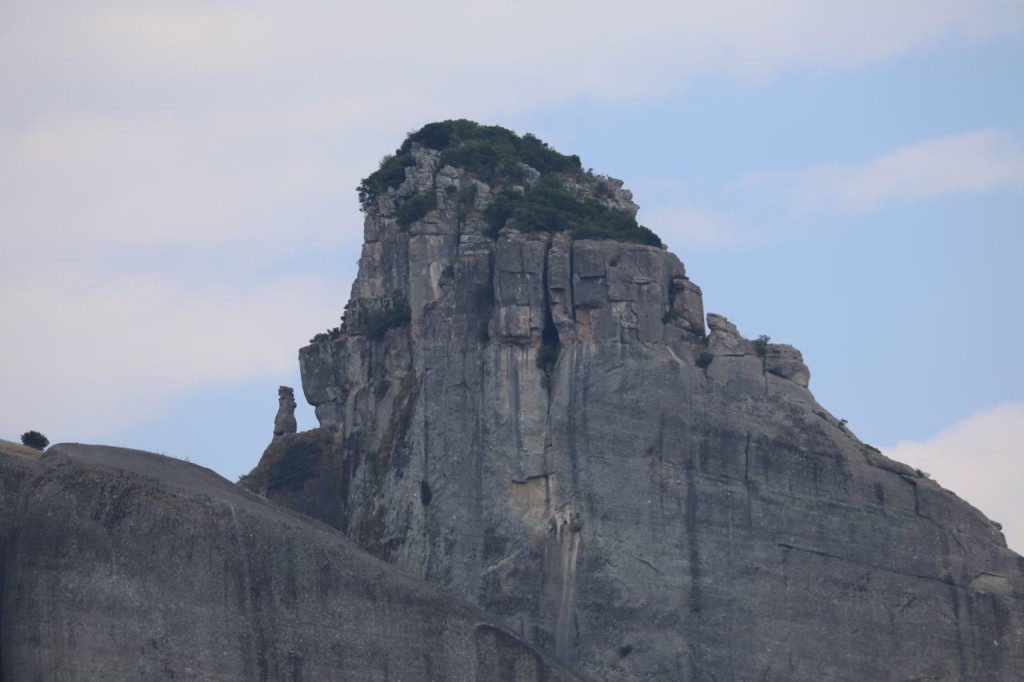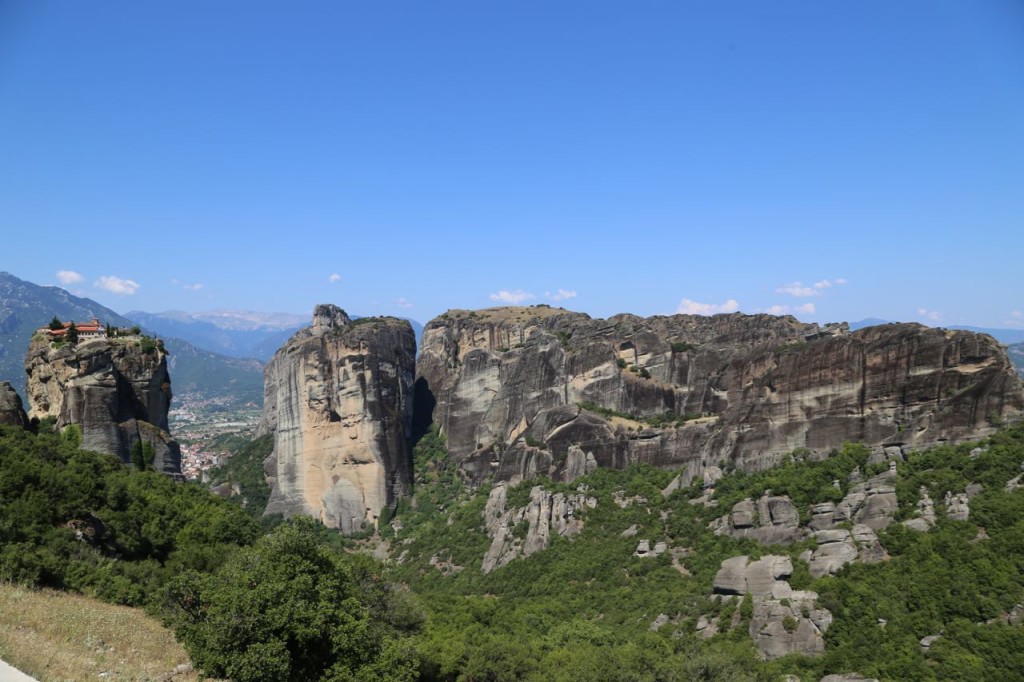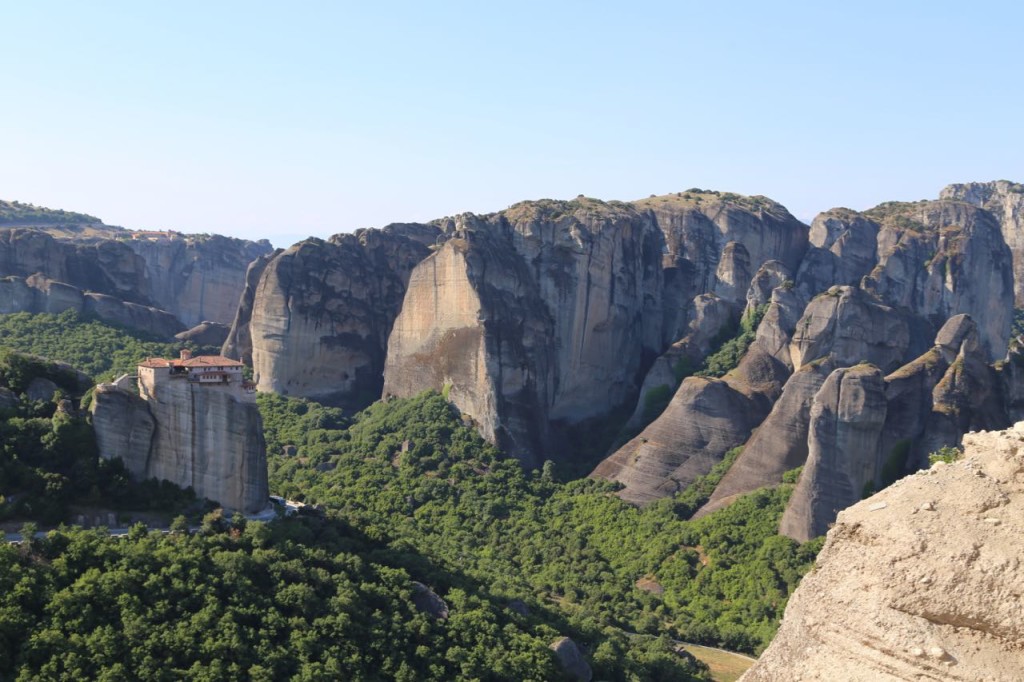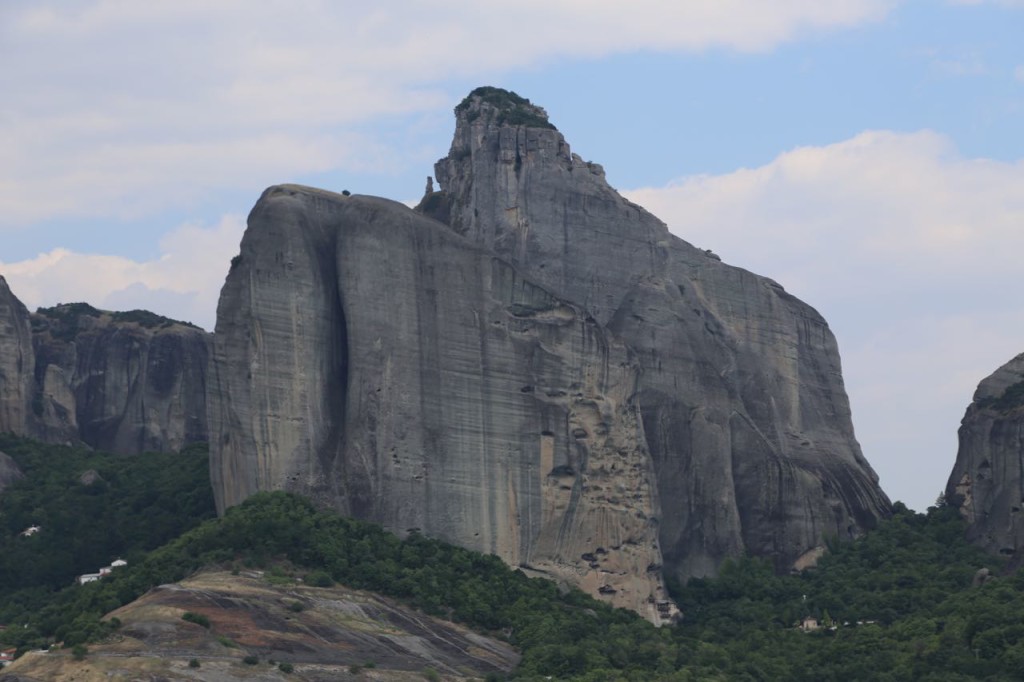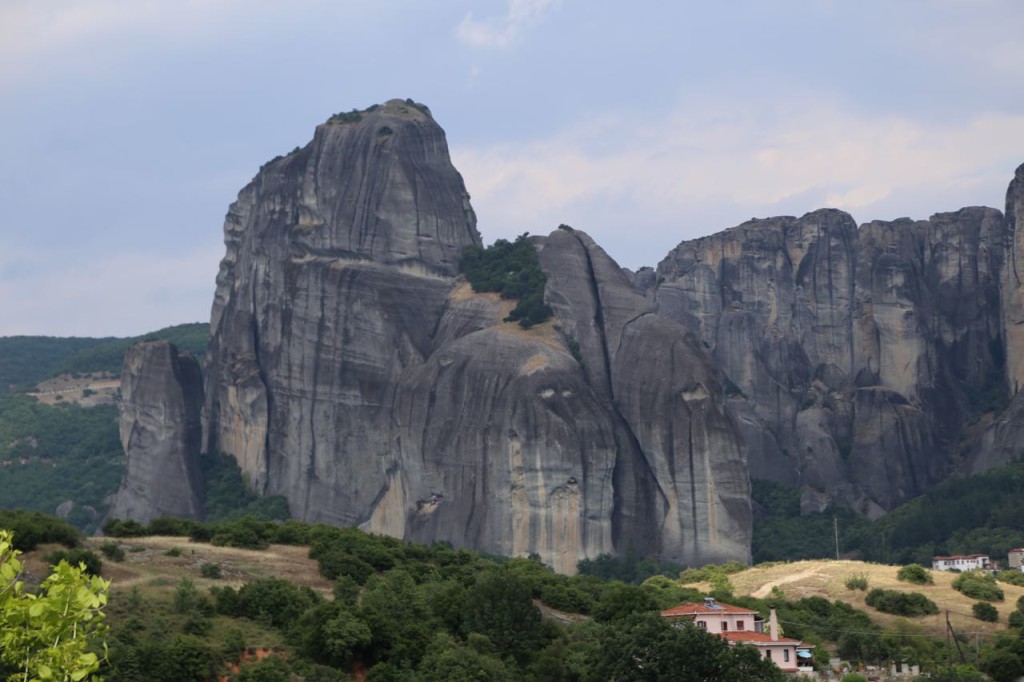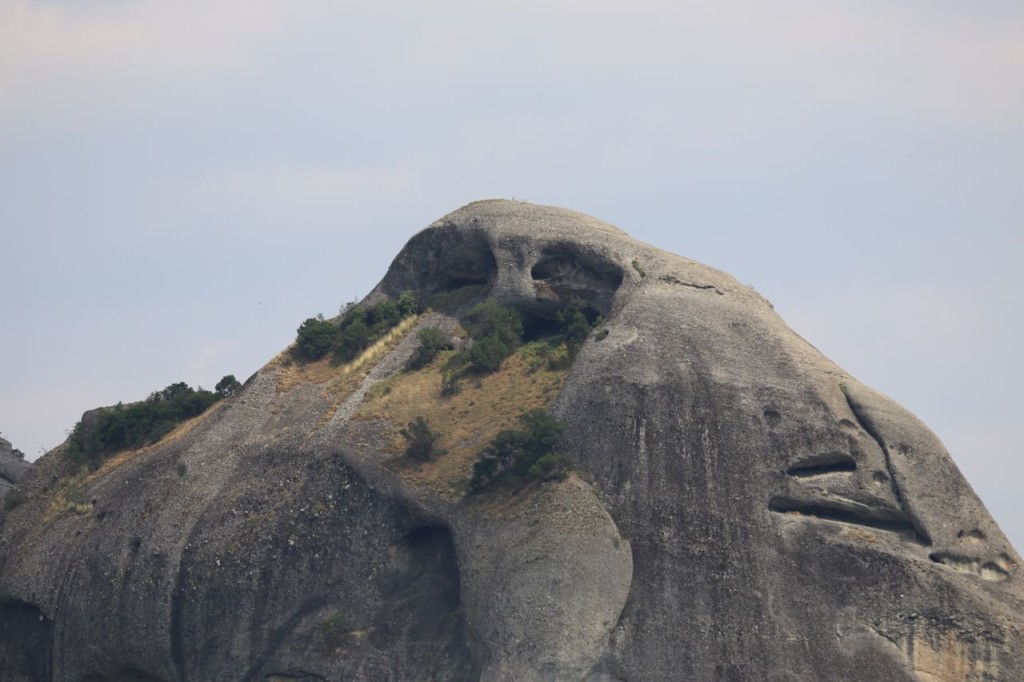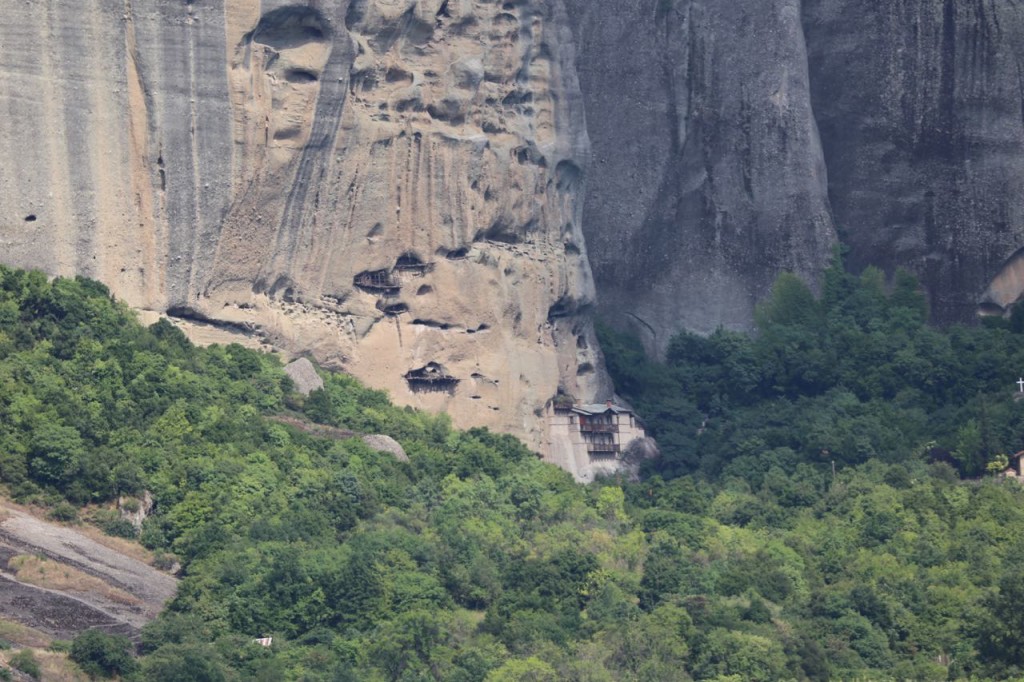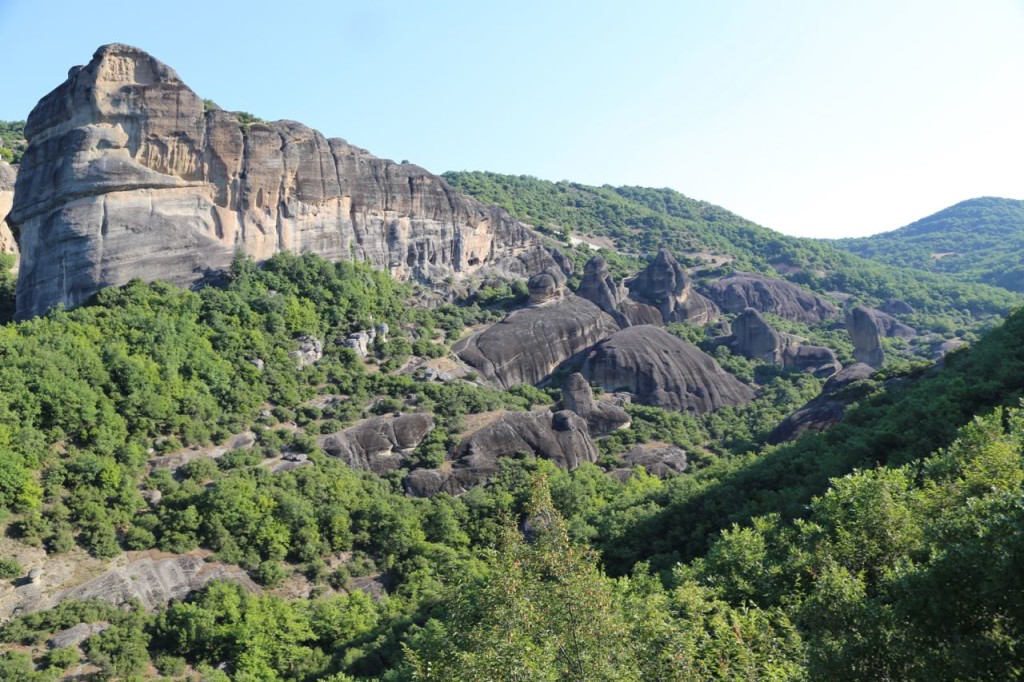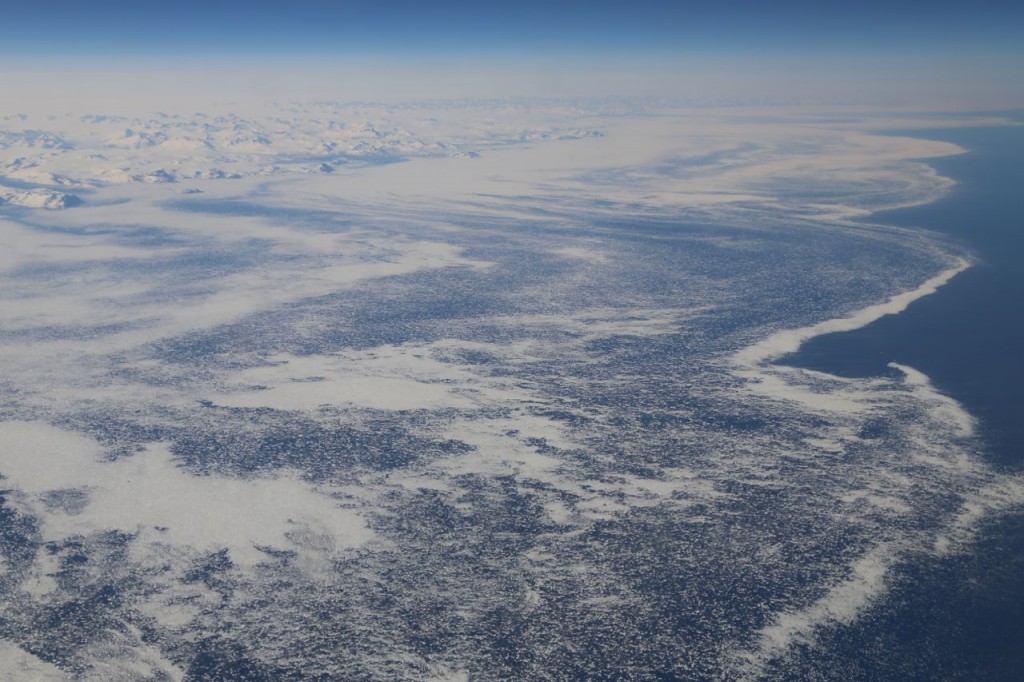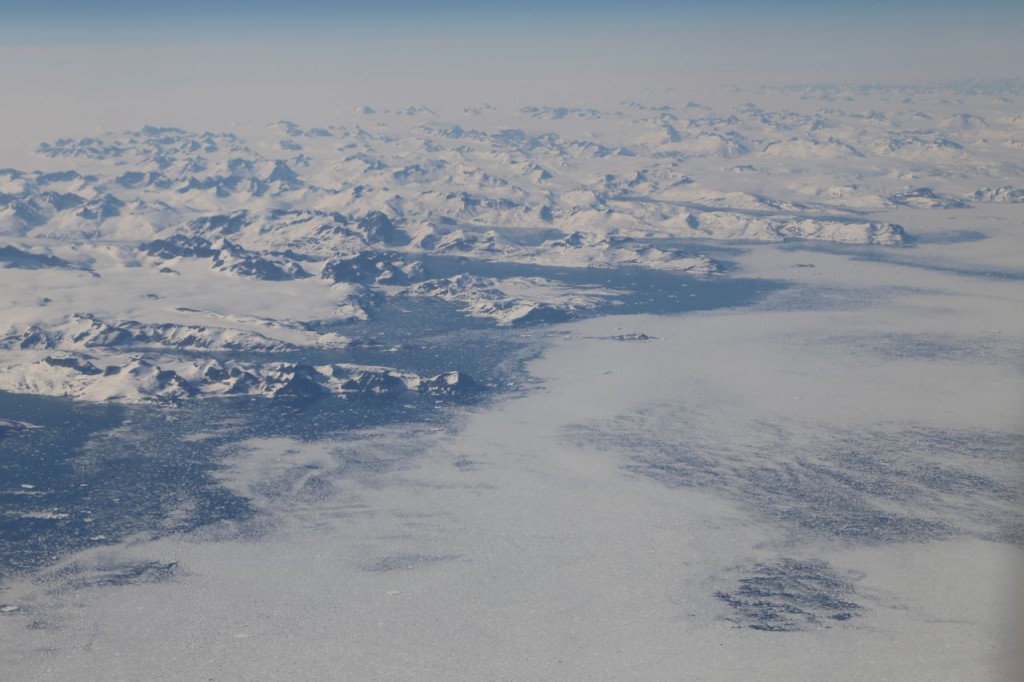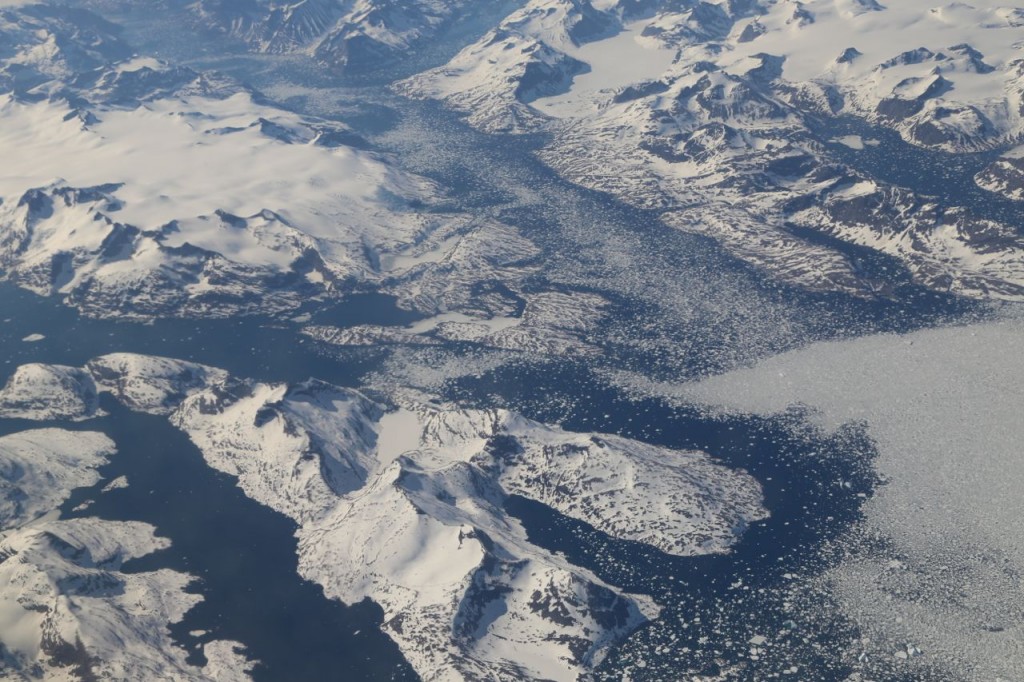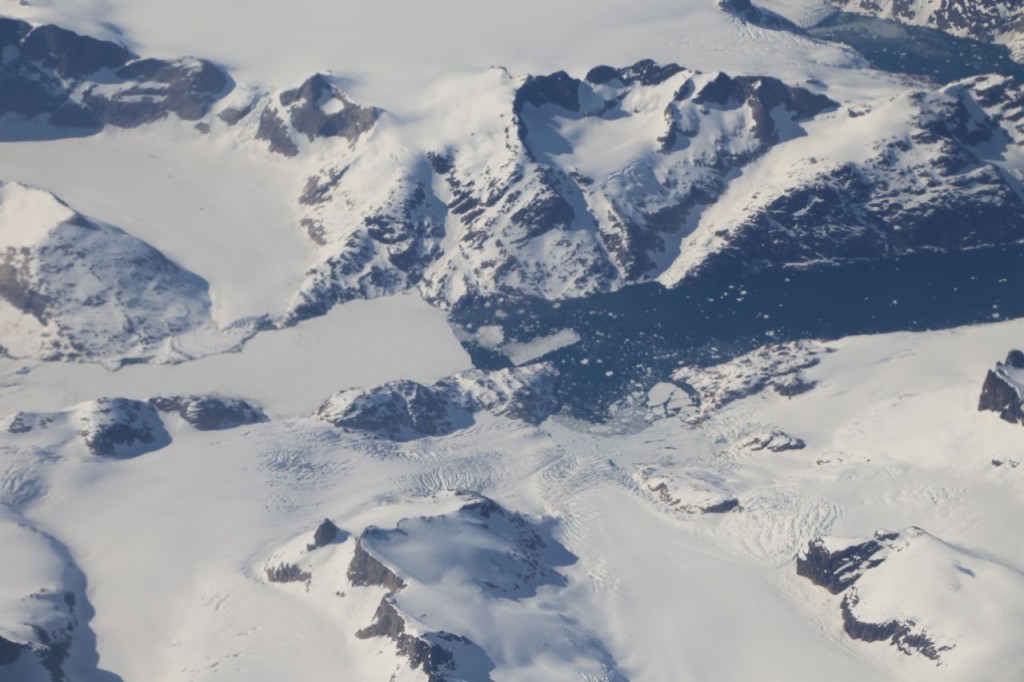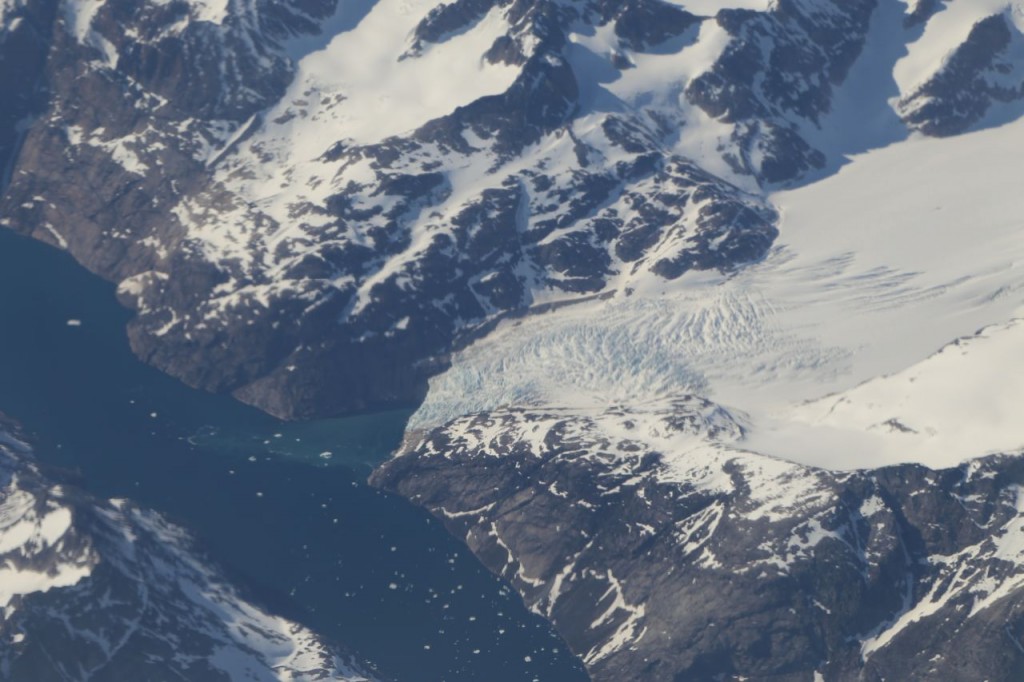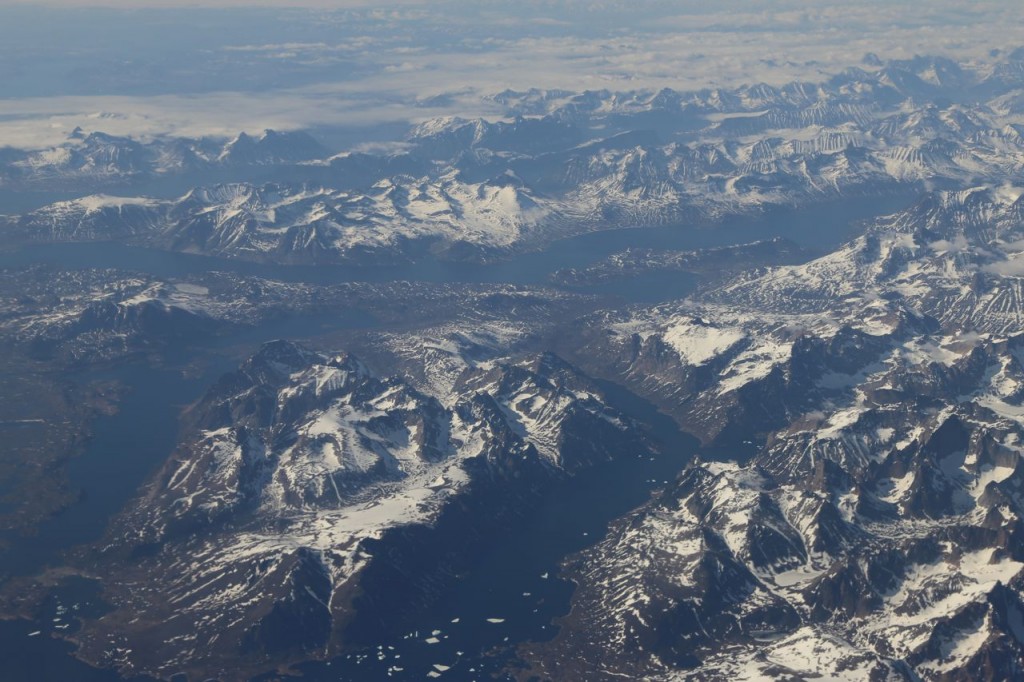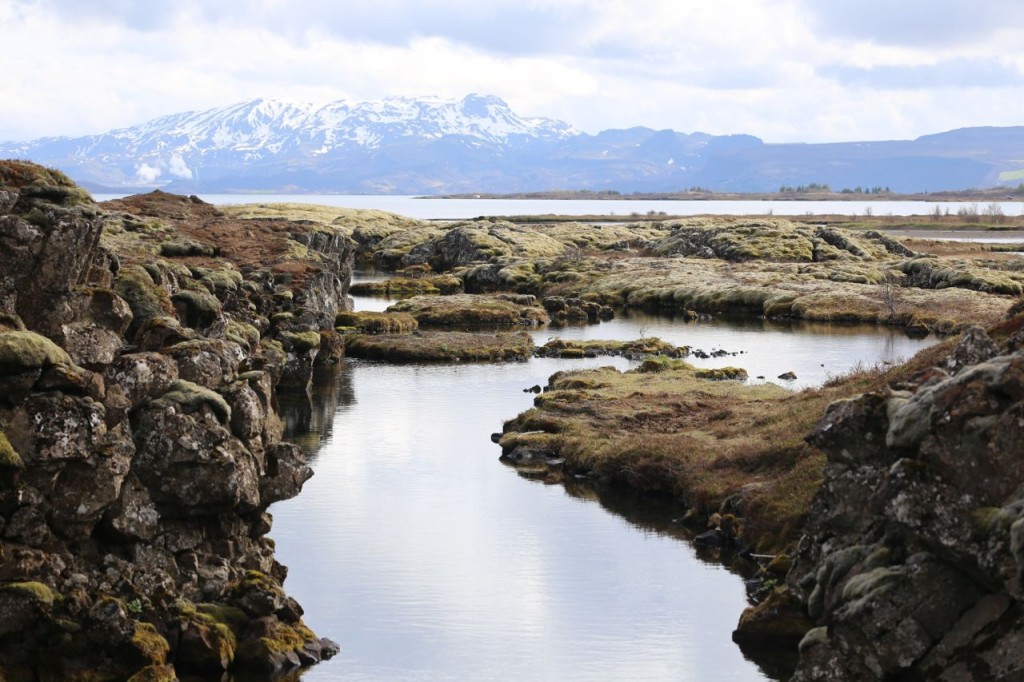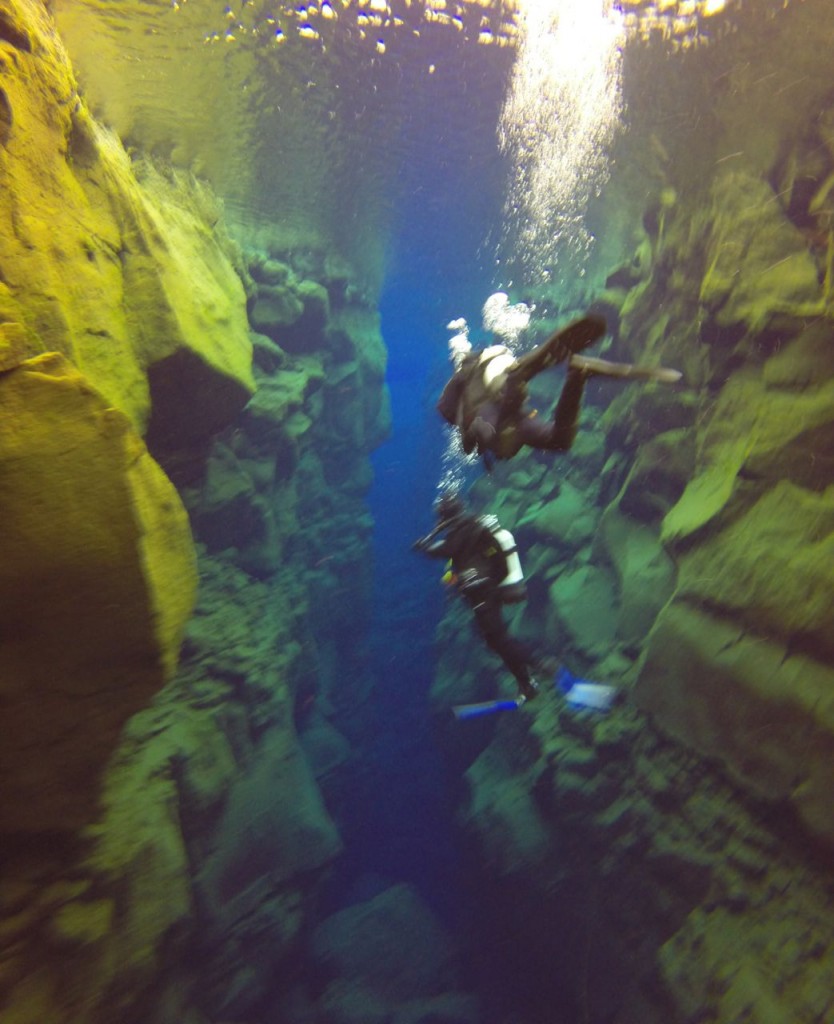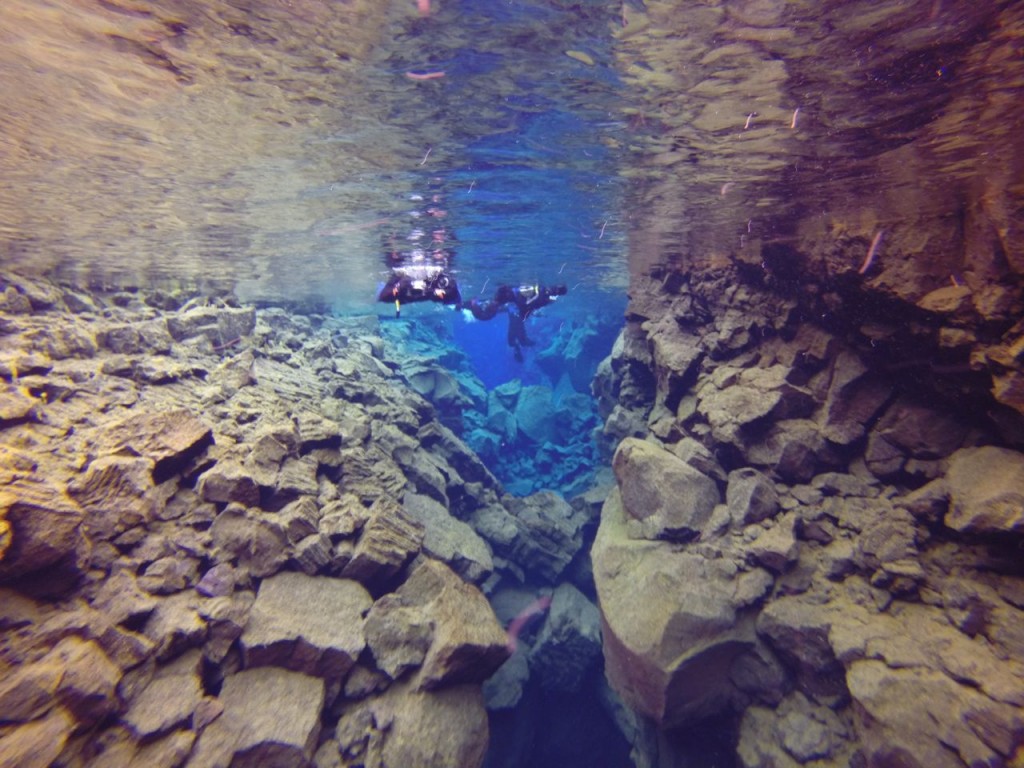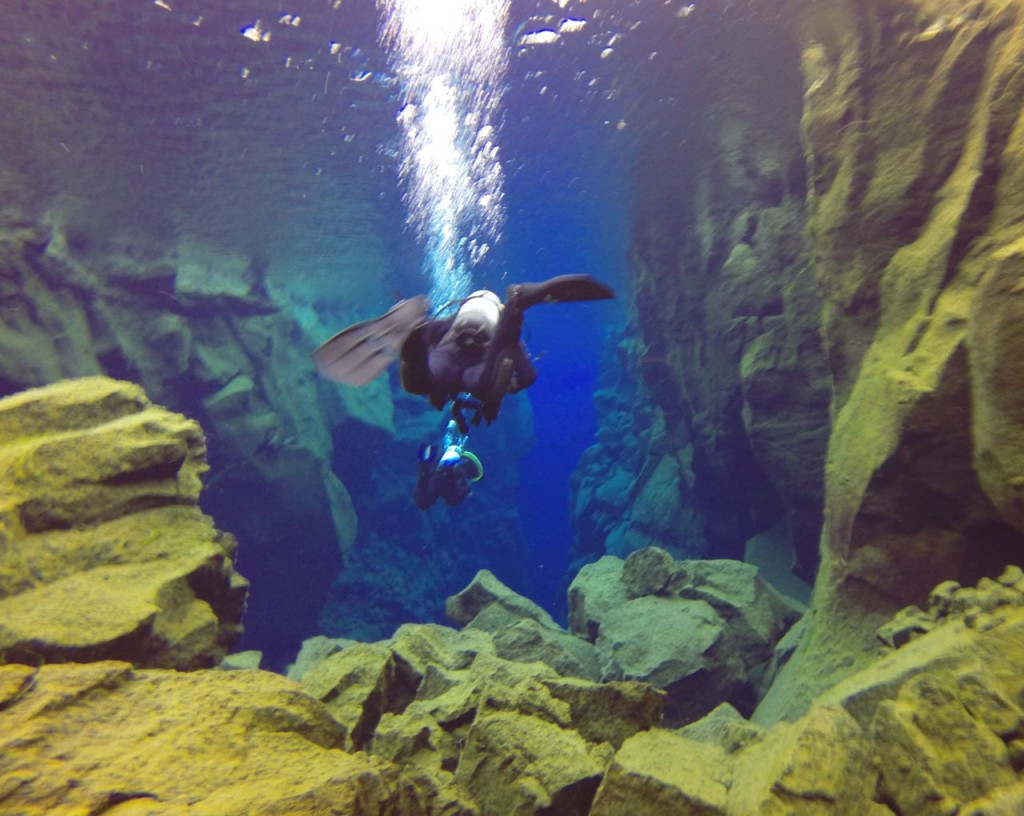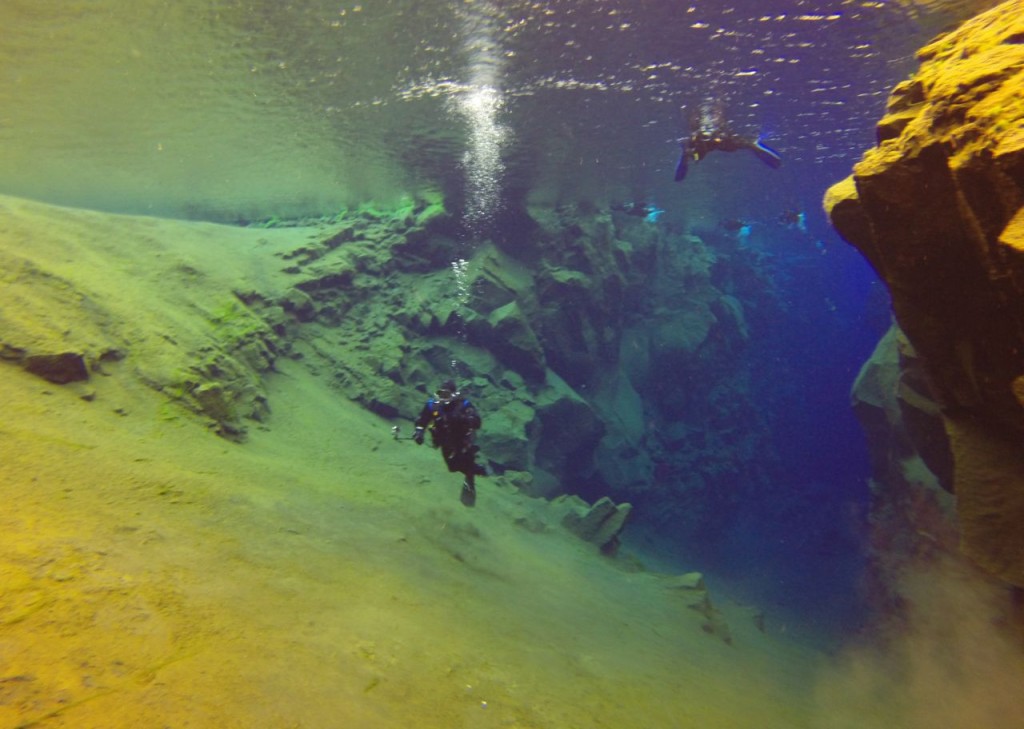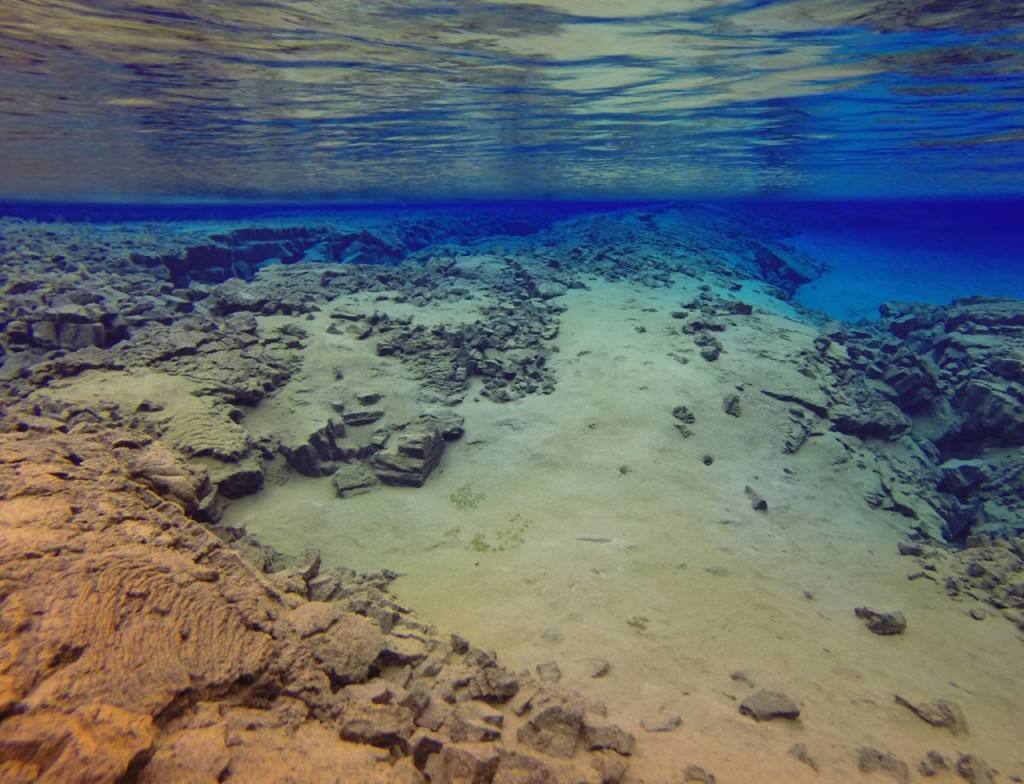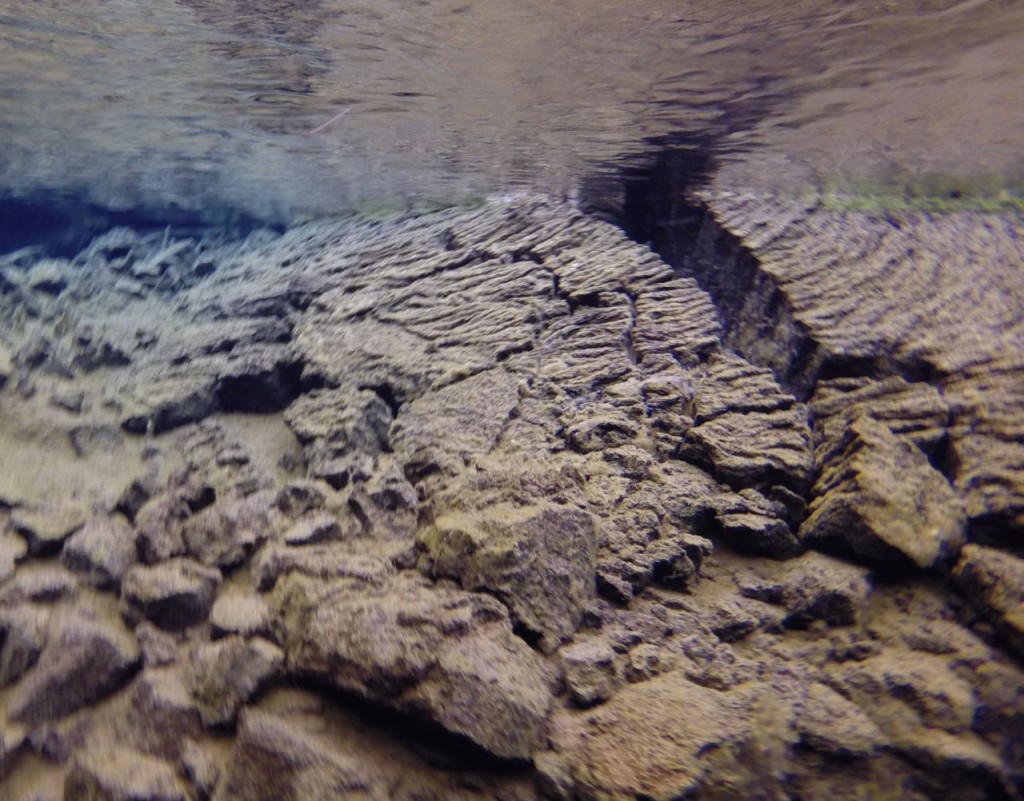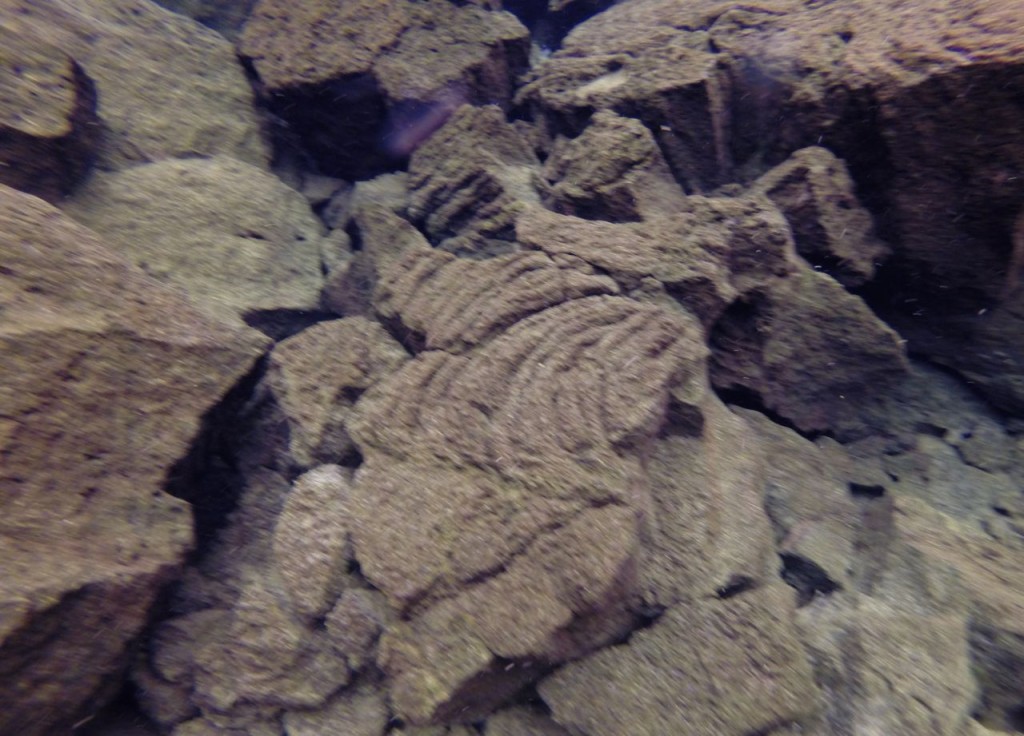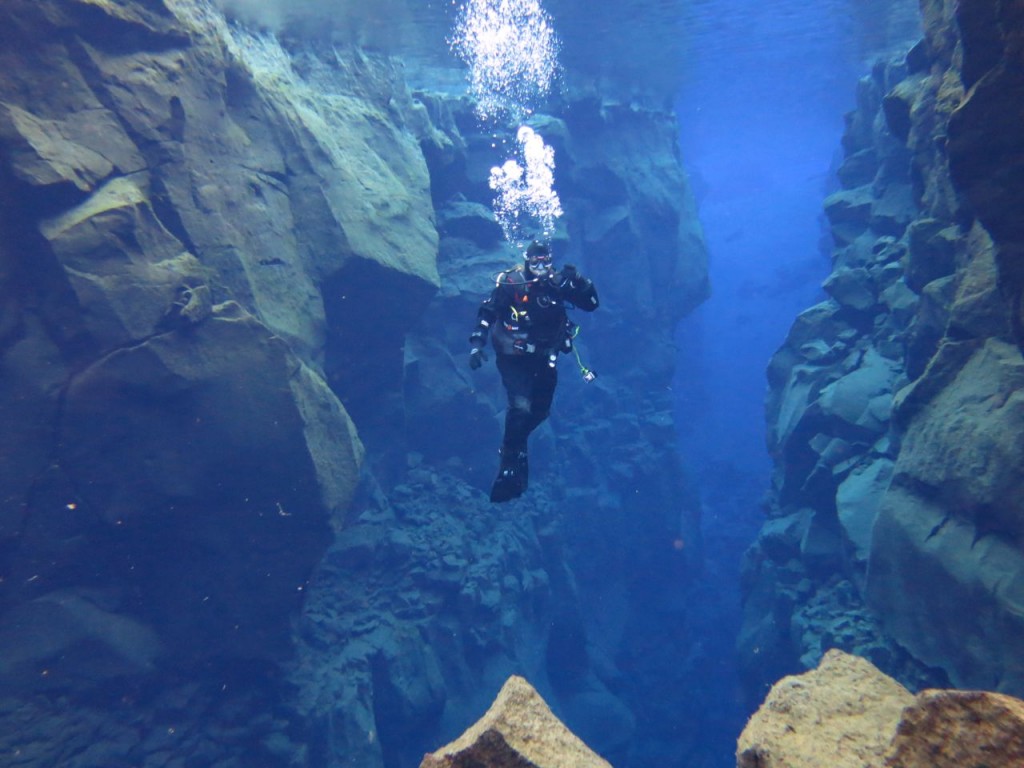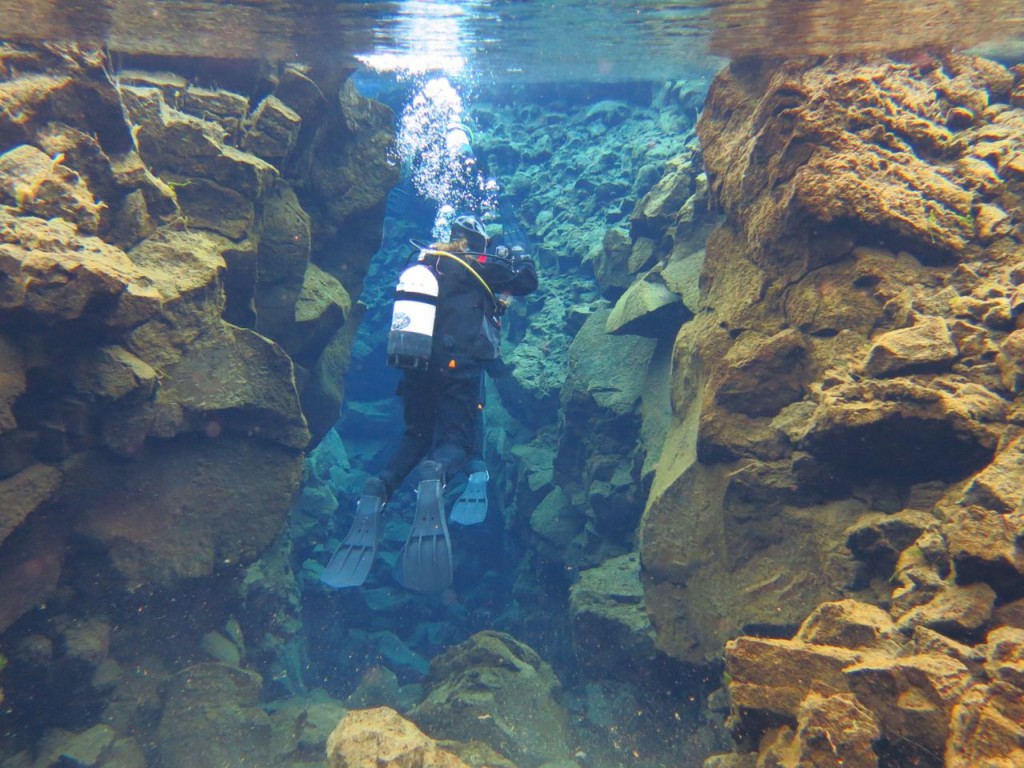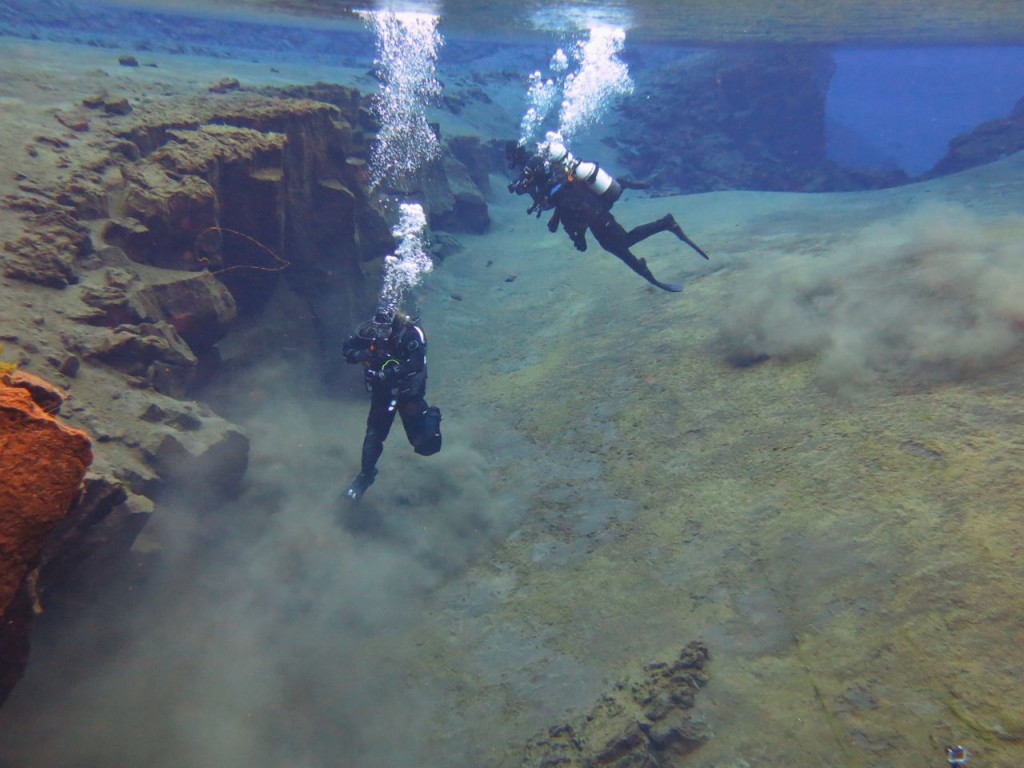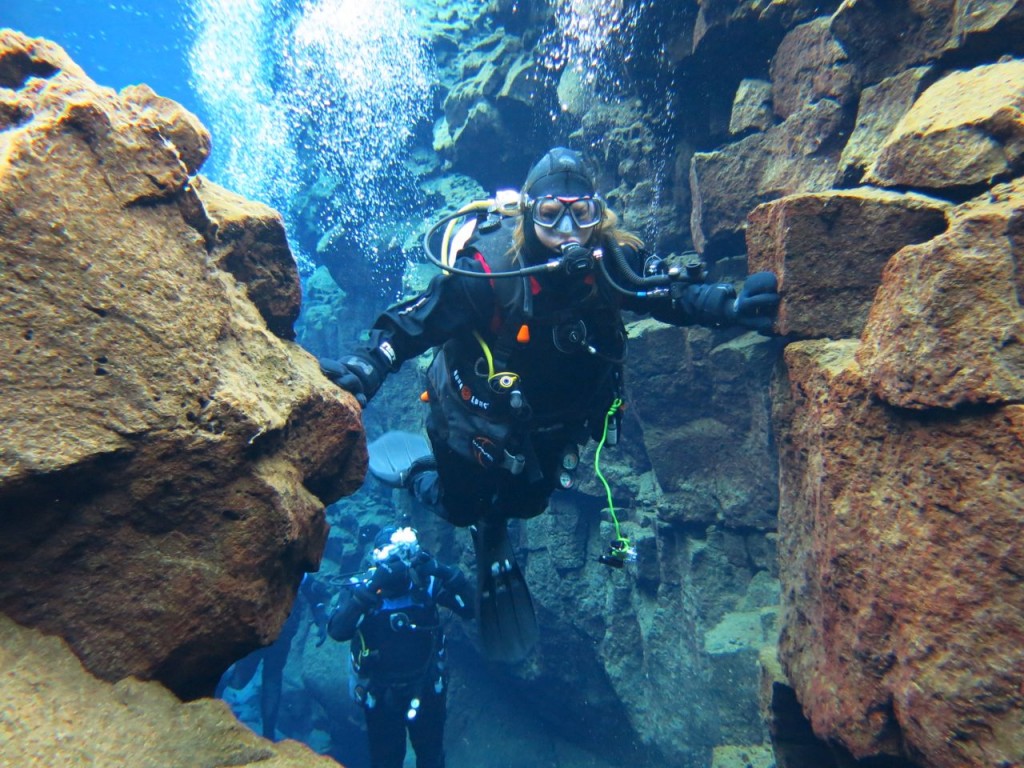For my trip out west, I wanted to visit many sites that were kind of in the middle of nowhere. Devil’s Tower fits in that category. I don’t think photos can do it justice. As I was driving to it, the road I was on curved, and then Devil’s Tower just appeared. That is what is so amazing about it. The area around it is pretty rolling countryside with some of the black hills, but then this columnar rock tower just appears. The trail to walk around it is a little over a mile, and even while walking that trail, I still was amazed by its size and how much it stuck out of the surrounding countryside. There are exhibits on the trail that give good visuals to describe how it formed. Still I find it awesome.
Tag Archives: Geology
Badlands National Park
After visiting Minuteman Missile National Historic Site, I then drove on to Badlands National Park, which is right across the freeway. Badlands is just gorgeous. The formations are dramatic. In many places you can clearly see the different sedimentation layers, including different coloring of the layers. The different coloring layers adds to the drama and beauty of the landscape. When I was there, it was a clear blue sky, which contrasted with the landscape coloring. It was fun to photograph. There were no bad angles, only trying to figure out the best way to capture the beauty, even though no photograph can.
Toadstool Geological Park
After the amazing event that was the total solar eclipse, I headed north to continue my trip. I stopped at Toadstool Geological Park along the way. The area is small badlands landscape with several formations said to resemble toadstools. It is a nice area to go do a little hiking, but it should be noted that to get there requires a long drive down a dirt road, which is not so nice.
Scottsbluff National Monument
I went to Scottsbluff National Monument yesterday mostly to do reconnaissance for the eclipse. That was were I wanted to view the eclipse, so I wanted to check out the area and find out details of parking and opening and such. The area is beautiful. I always though of Nebraska as flat plains, but the western side at least is not. The topography of Scottsbluff is lovely, interesting, and definitely not a flat plain. I did end up viewing the eclipse at there, so a few of the below photos are from yesterday and a few from today. The last one is right before totality.
Lichen on Granite
While in Stage Fort Park in Gloucester in Massachusetts’s northern shore, there were several huge granite boulders that were covered with lichen. It was thus therefore required for me to bring out my macro lens and take photos of it. I love lichen. I love granite. I love lichen on granite.
Cabrillo National Monument
While in Sand Diego, I visited Cabrillo National Monument. Actually I visited it twice. I went in the morning, and the entire area was covered with thick fog. I explored the tidal pool area and met some cute crabs, limpets, and snails. I then went to the peak area and tried to view San Diego underneath the clouds. It was kind of amazing to be on a peak about 400 feet above the ocean and look at a giant fog encompassing almost everything below. I then came back in the afternoon and was finally able to get some good views.
Cueva Ventana
I got to visit Cueva Ventana (Window Cave) today in Arecibo, Puerto Rico. The tour starts by walking by Pee Wee Cave, which only meets the bare minimum requirements of a cave. You don’t go in. There is no point or room really. There is a short walk through the forest, which when I visited meant getting to see among other things a bunch of giant snails on the trees. Then you walk through cave number two, which I don’t think they actually named. The middle portion of this cave is, well, cavernous, with huge ceilings and wide walls. However the walk through it is fairly short. Then you walk down an extremely steep path to get to the actual Cueva Ventana. There are bats living in there among the limestone columns. At the end of the cave is the Ventana. It has amazing views of the Arecibo River valley. The valley is gorgeous, and you can see the mountains beyond. The tour is worth the view alone. However the caves are really neat to see also, and I love bats, so getting to hear and see them was also a highlight. Sadly while there, you can see vandalism from years past, but tourism is now helping to support security and clean up for the site.
Greece: Meteora
Today we visited Meteora, an area in central Greece, of beautiful, amazing rock towers. They are composed of sedimentary rock, and the towers are for the most part bare rock. Portions of the towers have crevices that have been created from erosion. In the 9th century, monks sought refuge and solitude in the caves, and later, monasteries were built on top of several of the towers. Until the introduction of electricity, monks accessed the monasteries via ladders or a basket suspended via ropes, and evidently very strong will and stomachs. Now, those of us with not quite that strength, can visit the monasteries via roads and stairs.
Flying Over Greenland
My flight back home from Iceland flew over the southern tip of Greenland. It was an afternoon flight, and it was an almost cloudless sky. Luckily I had a window seat and my camera at my feet. Actual, it wasn’t luck. I always get a window seat if I can. Also, I trust neither the TSA nor any airline with my camera, so it is always carried on the plane. Greenland is gorgeous from above. Not so sure I want to visit though, maybe, for a short visit sometime. I’ve been to Antarctica, so perhaps I should venture to the arctic also.
Diving Silfra
Day 3 in Iceland was spent in the Golden Triangle, visiting Geysir, Gullfoss, Bruarfoss, and Þingvellir National Park. We ended the day at Þingvellir, which I later returned to at the end of our trip. While at Þingvellir that day, I dove Silfra, which is a part of Þingvallavatn (Thingvallavatn). Silfra has crystal clear water that sits between high rock walls. Those rock walls represent the spreading of the North American and Eurasian tectonic plates, and in one place, a diver can reach out and touch both plates, which makes for very fun and memorable photos. At the end of this post is a photo of me doing just that. The canyons are somewhat disconnected, and the route through Silfra consists of swimming between deep canyon walls then turning through very shallow portions, of less than a meter, then back to a deep canyon, then shallow, etc., until it ends with a wide open plane. There is very little life in Silfra, except some algae. Perhaps some animals are there, but I never saw any. This was one adventurous thing that I decided I had to do if I was going to Iceland, and I got my dry suit SCUBA certification just to do it because the water in Þingvallavatn stays 2-4°C year round. I dove that day with Dive.Is. All the photos below are my own, except the ones which feature me. I purchased those photos through Dive.Is.
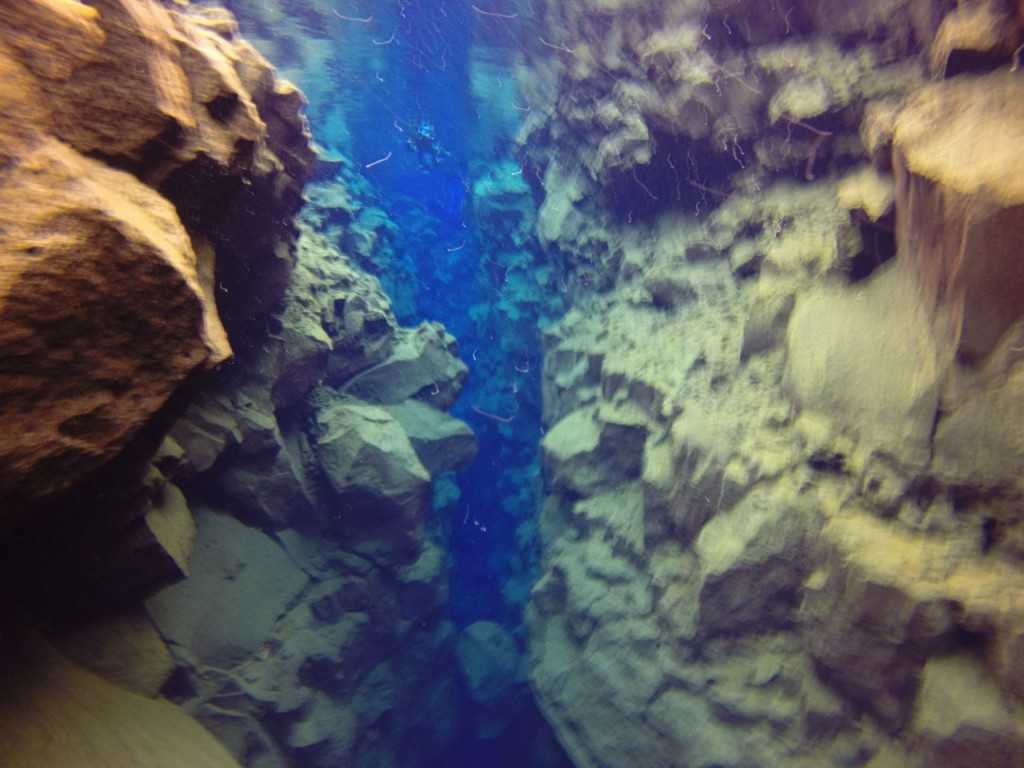
Canyon in Silfra. In the middle of the photo is the place where a diver can touch the North American and Eurasian tectonic plates.

Me taking a photo where a canyon ends. In the upper right is a diver exiting the canyon to another canyon through a shallow portion.

